Navire
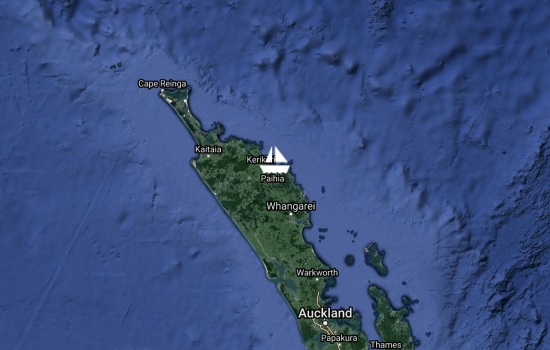
Avg: 8.4knts
24hr: 201.6nm
Home!!! Safely tied up on the customs dock at Opua. 10 day passage. Arrived in heavy rain and couldn't see New Zealand till we were entering the Bay of Islands. So good to those green hills. Hopefully we'll have our phones going tomorrow and access to internet. Time for a whisky.
Cheers Janet
Avg: 7knts
24hr: 168.8nm
10 hours to go. Will we beat the cold front forecasted for today? It's colder now, first time we have felt 20 degrees in a long time. Should be able to sight some time after dawn. Lentil curry for lunch. Maybe a whole night's sleep tonight.
I contacted a spiritualist by
Hi everyone, my name is Abbie
VISIT DR.BALOGUN FOR YOUR
HOW I GOT MY LOST LOVER BACK
HOW I GOT MY LOST LOVER BACK
Pages
Avg: 5.2knts
24hr: 124.5nm
Motor sailing across a grey lumpy sea trying to get in by Monday before forecasted headwinds off Northland coast. 260 miles to go. Pumpkin soup for lunch. Bring on fresh food, NZ food, avocadoes, good cheeses, sauvignon blanc, a bath, solid ground, kiwi accents...It's been two and a half years.
Make the most of the reaching
Prepare for starboard tack as
Avg: 4.6knts
24hr: 110.6nm
Heading south again after horrible 4 metre swells. Even managed to play music in the cockpit yesterday afternoon, David on guitar, Mark on fiddle and Anna on spoons. Omlettes for lunch. 330 miles to go.
Melbourne.. 16deg, SW10kt,
You guys doing great! Almost
Avg: 3.3knts
24hr: 78.1nm
Hove to last night in 40 knot headwinds and 3 metre swell. Wind easing a bit now but waiting for swell to reduce, and daylight. Lunch - Tinned ham and potato stew. 430 miles to go.
Keep moving. You'll be
Avg: 3.4knts
24hr: 80.5nm
Motoring to get easting. Can't wait to get home. Pasta with tomato.
Suggest staying on port tack
I hope the seas moderate and
Head for North Cape not East.
Motoring always such a come
Watching each update with
Avg: 6.2knts
24hr: 148.9nm
Pretty bouncy out here. Looking forward to lighter conditions in a couple of days time. 564 miles to go. Lamb shank braise and mash. Fridge crapped out again so canned food from here on in.
Glad all is well. Enjoy your
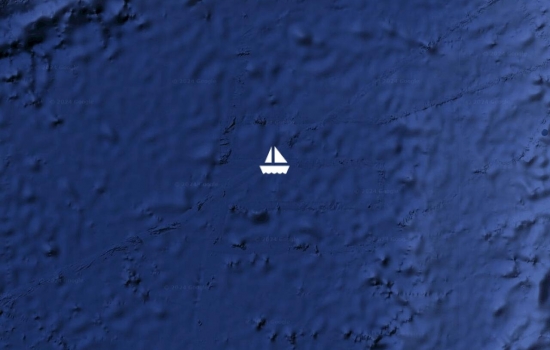
Avg: 5.7knts
24hr: 137.7nm
Brisk and bouncy. hard on the wind. 683 miles to go. Chili for lunch.
Your on the wind skills will
Avg: 6.2knts
24hr: 148.3nm
Seas have eased and Janet feeling much better after seasick day yesterday. 821 miles to go. Day 1 meal: rotisserie chicken and roast veg. Day 2 Lentil curry. Beautiful night with phosphorescent wake.
Avg: 6.3knts
24hr: 151.6nm
Excellent first 2 days. 4POB all is well.
Leaving Suva in less than an hour. Customs computer down yesterday so allowed to leave today with much better wind angle. And a less auspicious date, not that we are superstitious, however we are afraid of Murphy. 4POB. All is well except that Mark lost last night's card game.
I just hope you don't lose
Leaving Suva this afternoon bound for Opua. 4POB
Looking good for leaving Fiji tomorrow.
Safe and happy sailing! Lots
Still looking at departing FRi or saturday for nz
At Lami Bay near Suva. Passage weather conditions still ambiguous. Shall we, shan't we? Anna has arrived. Great company.
At Lami Bay near Suva. Passage weather ambiguous. Could be Monday or could be Thursday, or anywhere in between. Final preparations underway. Anna arrives today.
At lovely calm mooring field near Lami. Shopping all done, I start cooking all the passage meals today. Weather for passage next week looks uncertain.
Still off Suva Yacht Club as our kiwi band played music there last night along with a couple of talented Fijian men who joined in. Boat is all cluttered up with unstowed provisions.
Moving from wreck infested Suva Harbour to Lami Bay today. Fridge repair successful so far.
anchored in Suva, hoping to leave for NZ next week
Back in Suva. Preparations underway for passage to NZ, hopefully next week. We are provisioning, filling gas bottles, water tanks, and fuelling up. David is executing a few repairs and the fridge guys are here right now trying to fix our poor refrigeration system. So exciting to think we could be home in a few weeks. Or month or two! We have to wait for the right weather window in order to minimize the chance of encountering storms and big seas on passage. Between here and NZ there is a sort of pattern of a high pressure system, followed by a low, then another high, over a period of 5-6 days. If they behave and we leave at just the right time we could have a relatively benign 8-10 day trip. Relatively. Not as easy as it sounds. But we managed it on the way back from Tonga seven years ago so it is possible. I'll be posting our conditions on YIT regularly from now on so that Gulf Harbour Radio know our position and intentions and can broadcast weather forecasts for our intended passage. Wish us luck. Cheers Janet
Headed west from Kavala to Vunasea to track down one last family. Glorious sail and beautiful anchorage. Bright blue water and white sandy beaches. I'd forgotten its beauty. Here we made contact with Ala, Kuns, and Mere, part of the first family we met when we arrived at Kavala in 2015. How lovely it was to reconnect. After being fed glorious local food back at Solotavui, it was my turn to cook. Pretty low in provisions and despite pickings at local shops being pretty sparse, I knocked up a pretty impressive roast chicken dinner. The lovely John from DDU2 who has been accompanying us joined in. Now we head to Suva with only a week before we take the first good weather window. We have good internet till then so please send us messages/emails. Love to get news of home. X Janet Sent from my iPhone
After an overnight sail we arrived at Kadavu, our final island stop before heading to Suva. We came here two and a half years ago and stayed three weeks. Lots of yachts come here and I wasn't sure how well remembered we would be. But the huge grins and hugs of recognition soon dispelled that. So lovely to see our Solotavui friends again. Sent from my iPhone

We sadly said goodbye to Harry at Rukuruku Village. Its a wonderful thing to spend time with one's adult children. While we wait for fair winds to sail to Kadavu we are busy preparing Navire for the final passage back to NZ. Our winter woolies festoon the boat, the warm breeze (27C) removing the musty odour of two and a half years of storage. In the village we've enjoyed kava drinking, meeting school children, some excellent snorkelling just near the boat, and a truck trip to town to buy fresh produce.
xx Janet
Arrived at Makogi island yesterday, a days sail south from Savusavu. It feels good to be heading south, homewards. Savusavu was hectic and it's nice to be on an island again. Really loving having Harry on board. Here we will explore the ruins of a leper colony, and snorkel. Many of the houses that were here last time we came, have vanished, destroyed in a cyclone 18 months ago. Xx Janet Sent from my iPhone
Back in Savusavu after a stunning 10 days in Kioa, and with my dear son Harry on board for a couple of weeks. At Kioa we feasted, explored the island and were made wonderfully welcomed into to the families of our friends there. After a magnificent farewell feast we were very sad to to leave, knowing we may not ever get back there again. Here in Savusavu we were welcomed back like long lost friends. Fiji really is such a treat. Today is a big day as the fridge repair guys come. Please all cross your fingers for us. We could have cold drinks by the end of the day! Saturday we head south to Makogi. X Janet Sent from my iPhone
Avg: 97knts
24hr: 2328nm
Back at Kioa. On our second day here we were invited to a funeral feast. Wonderful Tuvaluan fare, most of it grown on this island. We are visiting our lovely Tuvaluan friend Kailopa but have got to know many other people over our last several visits and are know quite well known in the village. We arrived with fish to give away from a large mahimahi, over a metre, that we caught on the way from Savusavu.
We only have about seven more weeks of this long sojourn to go. Next weekend my younger son Harry arrives which I'm very excited about. With him we travel back to Savusavu then down to Ovalau. After Harry leaves we have three weeks in Kadavu visiting the village that we got to know when we first arrived in Fiji over two years ago. The beginning of October sees us back in Suva preparing for the journey back to NZ. David's daughter Anna arrives to join us for the passage, as does Mark Durand, a friend made in Majuro, also fiddle player in the first iteration of BilgeWater Band. Then back to dear NZ. Sounds bloody cold there! The other night the temperature dropped to 20 degrees and we had to put extra blankets on. Now I'm sweltering in 30.
Once back in NZ I'm looking for a job and we want to buy a car, the job preferably up north but will take short term stuff anywhere. We are after an economic stationwagon. If anyone has any leads on job or car let me know.
We are very much looking forward to seeing all of you when we get back.
xx Janet
Naquiqui Creek, near Remote Resort We called into this lovely little anchorage on the way to Kioa to shelter from a southerly and stayed a few days. Travelling with John, Kiwi bass player, solo sailor from Tauranga. Enjoyed kava with a local family.
Janet
We settled into Savusavu for nearly a month, seduced by the music. The place was full of kiwis, several of then musicians. We reformed Bilgewater Band with John on bass, Jack on acoustic, Brian on keyboard, and occasionally the marina manager Horace on lead guitar. We were actually in demand and played one or two gigs a week at the marinas. I travelled down to Suva for dental work and enjoyed the big city for a few days.
Janet
Natuvu After David having to dive on the anchor and untangle it from the coral (for teh second time at Viani Bay) we headed round to Natuvu (see us on map in the link above) for the last stop on Aidan and Lisa's holiday. Had a rather dramatic stop with the dinghy painter (we have two lines attached after losing a dingy in Tonga seven years ago, rather foolishly the second one is not a floating line) got wrapped around the prop as we were reversing to dig the anchor in. Ripped out a deck fitting and one in the dinghy. Up before dawn we saw Aidan and Lisa onto their bus back to Labassa and their plane to Nadi.
Checked out the news while in range and see its rather chilly in NZ with roads closed by snow. We've just had our coolest day in 18 months at 24 degrees C. How will I ever cope with NZ.
Cheers Janet
Back at Viani Bay. More good music with Bubbles and Swift Sure. Pretty windy so played lots of 500 and started job hunting for me on our return to NZ. Foraged in the bush and got papaya, lemons, chilliest and drinking coconuts. Aidan had his first scuba dive under instruction from Kyle on Bubbles. He and Lisa cooked us the best looking and tasting nachos for dinner last night. Heading around to Natuvu for Aidan and Lisa to get bus tomorrow. Cheers Janet Sent from my iPhone
Back at Kioa with Aidan and Lisa on board. Travelled in a Fijian long boat with big outboard to pick up kids at Natuvu. Visited Kailopa at the Village and had a meal with Tupou, our host on the west side. Great local food. We took the guitar and swapped songs with the family. After another helping fabulous local fare at Kailopa's we head back to Viani Bay to hopefully get some diving for the kids. Janet Sent from my iPhone
how are you going to abandon
Sailed from Savusavu to Viani Bay. 8 hours. Started off a bit breezy and lumpy but had to motor by the end of the day. We were greeted like old friends by Swift Sure and Blowing Bubbles. The social life was all on. Drinks on the beach, and two great music sessions on various catermerans. Went snorkeling on the reef. Viani Bay has good shelter except for southerlies, and good internet. Janet Sent from my iPhone
I love Savusavu. It's humming. Dozens of yachts moored here from all over the world. I've indulged my self in the vege market, a lovely music session with American boat Swift Sure, fast internet and cheap eating out. The next few days we deal with the mundane issues of repairing the fridge (again), tax return, provisioning etc. Then back to Kioa to meet up with David's son Aidan and a friend who will visit for a week. Janet Sent from my iPhone
Dear David,
Hey guys, I'm so excited to
Spent a couple of days in Viani Bay on our way back to Savusavu. Met Canadian boat Blowing Bubbles and had two wonderful afternoon music sessions with them. Back in internet range and loving it. Cheers Janet Sent from my iPhone
Visiting our dear friend Kailopa at Kioa. Enjoying quiet anchorage in the lee of the island. Although yesterday at 0730 we were boarded by the NZ navy and Fiji customs. Eight of them arrived in a zodiac to check if we were in Fiji legally and had our cruising permit. Fortunately that was all in order. We walk over the hill to the village most days but mostly hanging out on the boat. We said goodbye to dear cousin Douglas who has been with us since Wallis. A very enjoyable crew member. Today we hope to watch Fiji play Italy (rugby).
Back to Savusavu next week.
Good they (RNZN) did not
sounds like a great diving day in Vianni Bay
Fiji is glorious, it's vibrant and lush and colourful. We arrived in Savusavu early Tuesday morning, after a three day passage from Wallis, tired but so so pleased to be back in familiar territory. At dawn we gratefully tied up to our mooring, and despite my having been awake since 11.30 the previous night we went exploring. The town was bustling, so energetic after sleepy Wallis.
I stood in the market and soaked up the greenness. We've been in a fresh produce desert for a year and a half. I loaded up with fresh pineapple, pink papaya, mouth tingling passionfruit, and salad goodies.
I propped myself up in the marina shower and sluiced my salty, sweaty body with sweet soft fresh water, my first land shower in months. Bliss. Every day has brought more delights. Lots of good company. The inlet is full with dozens of boats from all over the world, including kiwis. Eating out is cheap and tasty. Found a stainless steel welder for our leaking diesel tank, (late one night on passage discovered the full 110 liter tank was leaking - story to come in blog). And a fridge repair man who comes Monday to see if can revive our much needed refrigeration system. Massage, haircut....
We think we'll hang around up this end of Fiji for a couple of months, visiting various destinations from here. And oh yes... we have good fast internet - on the boat. Just luxury. Thanks for all your messages on passage, they are treasured. Cheers Janet
Avg: 6.7knts
24hr: 160.3nm
Hove to outside Savusavu waiting for dawn
Avg: 66.9knts
24hr: 1605nm
ETA Savusavu early morning May 30. Fast tradewind sailing.
Avg: 820.5knts
24hr: 19692.6nm
Leaving Wallis for Savusavu Fiji
Happy safe travels. Xxx
leaving Wallis today at 1400 to head for Savusavu Fiji
The Lark still anchored beside them. Good company
tanks full!
Three boats inWallis now. The Lark arrived yesterday and there is also a norwegian boat.
hard to hear on the radio today
En route from Johannesburg to
great folk. They hiked yesterday and got a lot of rides. And they are enjoying the cheese.
will go ashore today for internet use
a much better day after 3 days of torrential rain an d winds and thunder. It went n to SE to N but Ellas influence is now much diminished. David has a wonderful signal at the moment and really easy to copy him. Apologies for not reporting for the last couple of days but Patricia has been quickly leaving the radio room for the hospital.
Wallis
Great to see you are in Uvea
sounds like they are enjoying the friendly folk of Wallis
You made it! Well done
will be checking in today
We made it. We arrived off the island of Wallis at dawn, the sea so rough that is was debatable if we'd get in to the lagoon through the passage through the reef. We hoved to for a couple of hours and tried at low tide successfully steering through the narrow break in the coral. We wove through the coral filled lagoon and dropped anchor in a sheltered bay. 11 days, 1500 miles, our longest passage yet.
David Delighted to be at anchor. Ahhhhhhh, flat water. So gorgeous. Lush green hills. Well kept houses. Within minutes we ha Janet Big thanks to Gulf Harbour Radio in NZ and yachts Seal and Swift Sure who were monitoring our position each day, also GHR gave us daily weather reports. Looking forward to getting 11 days email. More news once we have rested up Cheers Janet
Avg: 5.3knts
24hr: 126.8nm
13 miles to go to waypoint at Wallis, then hope to go in pass at slack water in the morning
Good progress guys! You will
You are taking on things that
Avg: 5.8knts
24hr: 140.2nm
motoring. 130 miles to go. Saw a ship. Big event at sea. Arrive day after tomorrow!
Avg: 5knts
24hr: 120.1nm
motoring
Avg: 5.1knts
24hr: 122.2nm
motoring
Sounds blissful! Following
Sounds blissful! Following
Avg: 3.7knts
24hr: 88.1nm
hove to
We'll on your way. Bit
Avg: 4.7knts
24hr: 112nm
516 TO GO
So enjoying your trip with
Avg: 6.2knts
24hr: 149.2nm
motoring
Avg: 3.4knts
24hr: 82.3nm
ghosted along all day at 2.5 knots under spinnaker. Lovely. Now motoring.
The decision to fire up the
Avg: 5.5knts
24hr: 131.7nm
The fair breeze blew The white foam flew The furrow followed free We were the first that ever burst Into that silent sea Down dropped the breeze The sails dropped down 'Twas sad as sad could be And we did speak only to break The silence of the sea Not so dramatic nor so complete as Coleridge tells it but the doldrums nonetheless. We did burst, with white foam, into that silent sea and ran thus for 700 miles, flying along. Now if we break 4 knots there is celebration. We motored some today on a flat sea, until a zephyr put shape in the sails, held and built, built to an astonishing 6 knots of speed but then died away. Then returned and died again. Right now we are barelling along at 4.5 knots. A stunning crescent moon in the black sky dancing silver coins on the sea, a sparkling path right to our ship. Magic.
Avg: 5.9knts
24hr: 142.1nm
Greetings from the South Pacific. We're over the equator. All well. Janet slowly finding her sea legs. Cheers David
Avg: 6.2knts
24hr: 148.1nm
Greetings from the equator, nearly. Another starry night and sunny day. We're making good progress, more than a quarter of the way to Wallis, but expect our pace to slow gradually. All good. Cheers David Click on the link below to see where we are.
Avg: 137.5knts
24hr: 3300.9nm
Day 3 and trucking along well. Closing in on latitude of Tarawa, Kiribati. Janet suffering sea sickness. Luckily I'm doing fine. Great weather - sunny days, starry nights. No moon for a few more days. No squalls apart from one leaving Majuro. Long may it last.
Cheers David
We are underway. Its been pretty windy, up to 30 knots easterly last night. I'm still seasick so will write more when feeling better.
Click on the link to see where are.
Janet
position 07 06.182n 171 22.427e The preparation goes on. We found out we could stay 14 days beyond our visa expiry which we were delighted about. We can now leave late enough to avoid the hurricane season down south. 11 days to go Despite careful planning it always seems to take longer to get ready than I expect. Provisioning is largely done but now the freezer is failing. Things really deteriorate in the heat up here and I'm having to virtually rebuild our Bimini. David has been up the mast checking the rigging and lubing the sail tracks, now his head is in the engine bay changing filters and oil. Plus a round of farewells including celebrating David's 67th birthday.
Stay in touch while we are at sea. We have a way of accessing email at sea but make them short with no pictures or attachments.
On the way home! Janet Sent from my iPhone
position 07 06.182n 171 22.427e Hello dear friends, Suddenly, after lingering here for over a year it is only weeks till we sail south. I feel ready to move on again. And David nearly ready to move on. He put his back out and was in serious pain for a couple of weeks poor man. But in recovery now and is back into boat preparation. I'm enjoying provisioning and readying the boat for travel. The last of our orders from the US is winging its way here, final goodies till we get back to NZ. We've had good times and sad times with our freinds here. One of our number drowned snorkelling a few weeks ago, and David got to help with a burial at sea. More on that in a later blog post. Social life has been wonderful. It really does take time to develop a community. Its one of the things I'm really looking forward to doing back in NZ. Putting down roots. And of the edible kind too. We often talk about what we will grow at Rawene and have been trawling gardening books.
In just a couple of months we'll be in the South Pacific, hopefully Wallis Island, a little piece of France, with cooler temperatures, lush bush, hills, and best of all French cheese and wine. Then Fiji.
I just put up a post recently on running aground and noone said a thing! Surely despite us surviving to tell the tale you would send some "shock, horror" emails! Is there anybody out there? I'm not doing very well catching the blog up. I want to get the northbound posts up to Majuro then get posting on time on our way south, and intersperse our travel posts with stories about our time here in Majuro.
So now back to work, I am sewing a new strip along the edge of our headsail. A new skill for me. I hope my stiching is straight enough.
Cheers Janet
Feb 13 The offshore preparation has started in earnest. David is sanding our tatty cockpit in preparation for applying non-slip paint, essential at sea for wet conditions. I have just finished sewing a windchute and will soon start on sail repair and restitching the bimini (shelter over cockpit.) I'm starting to think about what provisions to get, ordering stuff from US, immigration, checking safety equipment and electronics, and taxes and insurances (it seems these often fall due when we are at sea!).
I've just put up a post on YIT about a storm we encountered in Tuvalu - check it out, and some Fiji food posts on my culinary blog at http://cookingclubwellington1.wordpress.com/=20 Great job on sending us messages and emails - so good to hear from home.
Cheers Janet
David and I have enjoyed
Love reading about your
Three months till we head south! We have internet again and a friend on shore kindly lets us sit on her deck with our laptops and use her FAST internet connection. So now I can post regularly.
We love your comments on the blog. Keep sending them. I have had a few technical hitches on the blog - mostly user error but our ever patient blog master has guided me to the light and hopefully you shouldn't get any more 'access denied' messages. I'm working with him to try and get the blog icons to show on the Google map, and he's advised me to make the pictures bigger. So watch this space - the next story will be about a storm we weathered behind a one metre high island in Tuvalu. And there is a coral encounter to come.
January started with 22 days of no internet. Talk about cutting off your right arm! David wrote a song about it which always brings the house down.
Our timing was sublime and one day after the internet came back we both came down with a nasty flu for two weeks, leaving us boat bound and .... with no internet! But now we are out and about, good yachtie social life happening again, and are getting prepared for our 1500 mile journey to Wallis Island, a passage of about three weeks.
Send news from home.
xx Janet
Love your blogs. Enjoying
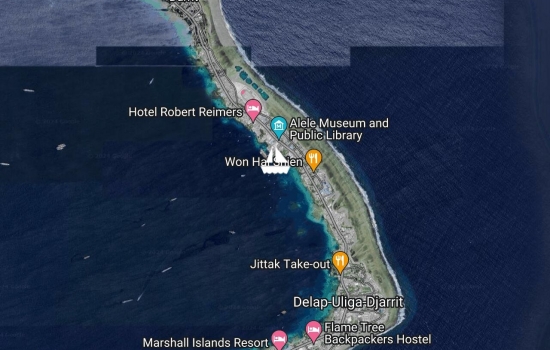
You know you are in a third world country when you have no internet for nearly a month. The undersea internet cable is damaged. It was going to take a week to repair. We can live without it for seven days we thought, but today, 14 days later, we get a radio message to say it will be January 18. And some, I imagine. No email, no Facebook, no bank site access, can't pay our tax, and definitely no posting blogs on YIT. I'm posting this via our single-side-band radio which sends text emails only. Fortunately the Telecommunications people are channelling satellite bandwidth to the banking system so I can use my credit card otherwise we'd be eating beans three meals a day.
Aside from feeling like my umbilical chord has been severed, 2017 is okay. After all we are coming home this year. Home to familiar things. Good food, old friends, family, cooler temperatures, English language with all its nuances,and INTERNET! NZ is a great country.
Happy New Year to you all.
Janet
Hi Janet
Happy New year you two! Ah,
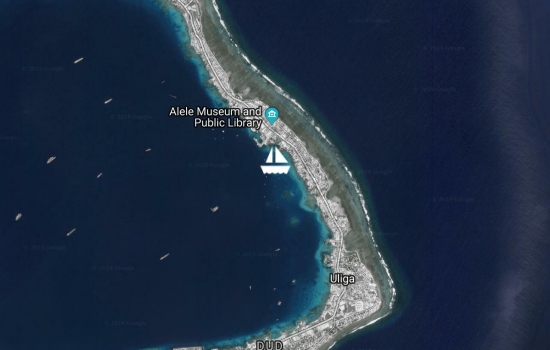
Church crawl IGNORE THIS IF YOU ALREADY RECEIVED IT. I AM RESENDING IT AS IT DID NOT SHOW UP ON THE SITE 12 months. We've been here nearly 12 months! Time to move on. But we can't leave yet as we have to wait out the South Pacific Hurricane season. Cast off time will be April or May 2017 when we head back to Fiji for five months, and then back to dear New Zealand in November. After living in this country, a harsh dysfunctional mix of the first and third worlds, albeit with some gorgeous tropical aspects and lovely people, local and expat alike, I have a seriously heightened appreciation for what a good country NZ is. While its been an interesting year we long to go come south again. South to cooler temperatures, to more familiar South Pacific cultures, to abundant local produce and interesting food cultures, then eventually to freinds, family and the familiarity of home. Often this year we have indulged in long conversations about living in Rawene, growing vegetables, and establishing a community there. Another dream that sustains me when I get sick of the heat and faultiness of this place is our plan to drive down to Wellington very shortly after we arrive in NZ , spending Christmas 2017 in Wellington and seeing most of you.
We plan to celebrate Christmas Marshallese style this year. We will join David's Marshallese colleagues and go on a church crawl. Like a pub crawl but with no alcohol. The plan is we go from church to church and sing and dance. And hopefully get fed local food. Its traditional in the sense that they have done it this way since the missionaries arrived in the early 1900's.Then we will sail out to a nearby island with a couple of Australian freinds and do it western style with much food and alcohol, probably on Boxing Day. We'll miss all those kids of our I've struggled to come to terms with the infiltration of western style commercial Christmas here. It is so incongruous to see fake Christmas trees in all the shops surrounded by fake snow, all the while it is 30 degrees outside under the palm trees. In this land where poverty prevails they don't need all the entreaties to to buy presents. Even in New Zealand I abhor the commercialisation of Christmas.For me Christmas is about food family and freinds.
David has just told me the tree at his work is a real pine tree, imported from the US. I rest my case.
Merry Christmas to you lovely family and freinds, from Navire and her crew at seven degrees north.
Writers Block "Janet, why aren't you posting on the sailing blog?" several people have asked. Its the sad story of writers block I think. Lack of access to internet hasn't helped but also being up here for so long is not entirely good for my soul. I got behind on posts. I lost my momentum. The less I wrote, the less confidence I had in my writing, the quality of prose deteriorated rapidly. But all is not lost. I have just started a local writers group and I'm on the up and up.
Two favours from you my reader I'd like some feedback from you. You are well aware that I am sadly lagging behind in my trip posts. I do want to do all the posts between Tuvalu and here and now, so that we have a good record of the trip. However I'd like to post about what's happening right now in Majuro too.=20 My options are to: Keep posting trip stories in order and eventually catch up OR Start posting stories about Majuro now and intersperse these with historical posts about the journey here.
Second favour I need someone to read my stories before I post and give me feedback.=20 Send me a comment or an email janet.nixon551@gmail.com.
Cheers Janet PS I'm communicating with the YIT webmaster to see why my last posts (in October) didn't show up on the map on teh YIT site, one post was full of glitches, and several people couldn't get in to read it either. Two posts not appear at all. I'm going to try re-posting some of them.
PPS I have been posting some Pacific culinary stories on my food blog if you'd like to have a look http://cookingclubwellington1.wordpress.com
position 07 06.182n 171 22.427e Church crawl 12 months. We've been here nearly 12 months! Time to move on. But we can't leave yet as we have to wait out the South Pacific Hurricane season. Cast off time will be April or May 2017 when we head back to Fiji for five months, and then back to dear New Zealand in November. After living in this country, a harsh dysfunctional mix of the first and third worlds, albeit with some gorgeous tropical aspects and lovely people, local and expat alike, I have a seriously heightened appreciation for what a good country NZ is. While its been an interesting year we long to go come south again. South to cooler temperatures, to more familiar South Pacific cultures, to abundant local produce and interesting food cultures, then eventually to freinds, family and the familiarity of home. Often this year we have indulged in long conversations about living in Rawene, growing vegetables, and establishing a community there. Another dream that sustains me when I get sick of the heat and faultiness of this place is our plan to drive down to Wellington very shortly after we arrive in NZ , spending Christmas 2017 in Wellington and seeing most of you.
We plan to celebrate Christmas Marshallese style this year. We will join David's Marshallese colleagues and go on a church crawl. Like a pub crawl but with no alcohol. The plan is we go from church to church and sing and dance. And hopefully get fed local food. Its traditional in the sense that they have done it this way since the missionaries arrived in the early 1900's.Then we will sail out to a nearby island with a couple of Australian freinds and do it western style with much food and alcohol, probably on Boxing Day. We'll miss all those kids of our I've struggled to come to terms with the infiltration of western style commercial Christmas here. It is so incongruous to see fake Christmas trees in all the shops surrounded by fake snow, all the while it is 30 degrees outside under the palm trees. In this land where poverty prevails they don't need all the entreaties to to buy presents. Even in New Zealand I abhor the commercialisation of Christmas.For me Christmas is about food family and freinds.
David has just told me the tree at his work is a real pine tree, imported from the US. I rest my case.
Merry Christmas to you lovely family and freinds, from Navire and her crew at seven degrees north.
Avg: 92.8knts
24hr: 2226.8nm
And so we begin our homeward journey south. This is as far away as we will go. Ailuk was at 10 degrees north and over the next 12 months we head back to New Zealand via Majuro and Fiji. We left Ailuk yesterday laden with magnificent handicrafts. It was very sad saying goodbye to our hosts Anious and Emily and their family. It was so good to reconnect with village life again, reminds me why we came out here in the first place.
After an overnight passage we are at an atoll called Aur to pick up the local doctor and take him to Majuro.
We are both well but going through a period of missing our wonderful country and all of you. We managed to catch up with the US election results on the BBC. What a sad day for the world.
Back on the road tomorrow.
xx Janet and David
Ailuk is gorgeous. We've been here two weeks now and I'm really enjoying being in the 'rural' Pacific again. This little village is beautifully kept, with none of the rubbish that adorns much of the Pacific. I haven't seen any vehicles, hardly any motorboats even, the main mode of transport is sailing canoes.
We have been hosted by a warm welcoming Marshallese family who we initially made contact with on our regular SSB net. Anious and Emily and two of their children. Shore trips have consisted of much trading and exploring. David has been attempting to fix a radio and a weather station. Mind you he's had his hands full repairing things aboard Navire with success at reviving the depth sounder, SSB, and autopilot electrical connections, replacing the fridge compressor fanbelt, and this last week replacing a burnt out switch on the anchor winch.
Last week we took Emily and Anious out on Navire fishing and David had a day out sailing on the lagoon on a local sailing canoe However we've had lots of boatbound days, with strong winds in quite an exposed anchorage. We head back to Majuro later this week.
Janet
Avg: 216.7knts
24hr: 5201.1nm
We made it to Ailuk. We found the passage hard going despite good sailing weather. Navire has suffered from ten months on a mooring. Despite through testing of all systems before we left we have wiring problems with the auto pilot power source failing, the depth sounder suddenly giving up (same problem we hope) and the fridge making deathly sounds. David had to use an old fashioned leadline to find our depth for anchoring.
I'd lost my sea legs an struggled to sleep between watches. But slept well last night.
This is the most remote place we have been, we are the only boat here. Today we go in to the tiny village of 180 people.
0200 Thursday October 20 We creep through the empty ocean lit only by the nearly full moon. We finally got away from the clutches of Majuro yesterday. Very light winds but I don't want to run the engine and break the peace of the night. We are in no rush as need to arrive at the atoll in daylight to get through the pass.
Click on the link to see where we are.
Sounds like some of you couldn't get onto my last blog post. I'll email our YIT man about it when we get there.
Must go, thunderstorm hitting us.
Cheers Janet
October 17 Tomorrow we hope to head offshore for a 200 mile sail to Ailuk, an outer island of the Marshall Islands. It is the first time we have been offshore in 10 months. We arrived back in Majuro, from our Canada trip, in early September intending to provision and head north. Alas we were thwarted by firstly no wind, then by ill health, both of us getting a mild persistent cold for three weeks.
We'll post each day of our 2-3 day passage for safety reasons, then do regular updates on life in a remote village.
Cheers Janet
Avg: 45455.3knts
24hr: 1090928nm
And a final update of the Canada trip to get us back to Majuro.
You know sometimes the trouble with traveling is the actual travel. The trip back took us a couple of days, losing a day across the dateline and being stuck in Hawaii for a night with a horrendously early flight to the Marshalls. But how glorious it was seeing Majuro from the air and landing back at our tropical home. It was lush, the coconut palms bright green, the lagoon almost luminous turquoise, and most exciting navire was still happily tied up at her mooring. After a couple of days recovering from jetlag we start preparing for our next trip, next week we sail 200 miles north to the remote outer island of Ailuk.
More on that soon.
Send emails and comments. We talk of home and you people a lot.
We so enjoy hearing of your
We so enjoy hearing of your
We so enjoy hearing of your
Just a quick post to get us back to Majuro via Toronto.
Halifax was awesome. Meeting more family, visiting then site of a memorial to David's father's death (in 1952).
*** =46rom Facebook post: "Nova Scotia. It's not cold, I say to David. On this trip we have traversed Canada from the Pacific to the Atlantic. I wade into the water wanting to connect with this ocean.
We are visiting a memorial to navy personal who died in peace time and listed there is David's father's name. A navigator, he died in an air crash when David was just two years old. It's a poignant family moment. Mary is a recently found cousin and her and David are swapping stories about the generations gone before.
We are staying in a gorgeous big house with Mary's daughter, husband J and 2 delightful children.
I visit the Halifax Apple store to get a part and the woman who serves me usd to work at Whitireia. We excitedly named all the people we knew in common. It gave me a warm feeling of connection.
Went berry picking with the children, raspberries, blackberries and blueberries. We ate more than we took back to the house. Just like when I was a kid.
Later.
I'm sitting on the Halifax foreshore watching yachts sail past. And for the first time in nearly three weeks feel a moment of missing Navire.
Later At dusk we liked into J's boat and went for a tour of the lake. With a 150HP engine (compared to Nature's 40) it felt going at rocket speed. Suddenly just as it got dark J stopped the boat stripped off his t-shirt and leapt into the water. I didn't hesitate, strip down to bra and panties and leapt in too. A little colder than the Majuro lagoon but exhilarating.
Back at the house we ate locally caught clams and halibut." *** The drive back to Nova Scotia took two days, then train to Toronto and bus to Chiefs Island up in the Muskoka Lakes. A glorious five days there eating, swimming, hangign out with family.
Next leg was to Brantford to stay on cousin Fiona's farm and chill out in beautiful countryside and write for a few days. David left early and went sailing on Lake Ontario with cousin Douglas. We joined him for a day out with Mary and Angus too: =46rom Facebook post: "What an awesome trip this is. Four of the cousins and partners have gathered at Mary's including David and Douglas who sailed up overnight from Toronto.
We BBQed and drank too much last night but dragged ourselves out of bed to go sailing this morning.
We sailed through a canal with bridges that opened up to let us through, with more fine dining on the way. Then under a higher bridge back onto lake Ontario.
5 days to go before we fly back to 32 degrees, high humidity, imported produce, lousy restaurants, and our wonderful sailing community, swimming in the sea, Bilgewater Band, and fresh coconut juice." *** Back to Toronto to do last shopping for a year and spend time with the smallest cousins.
Thanks again for the lovely
Usually when I'm travelling I'm looking for the exotic, to examine cultures different to mine. But this time I'm content that this Canadian culture is so similar to my own. Although ultimately travel is about meeting people and exploring local food and this trip is rich with both.
Toronto was about visiting family and shopping. We haven't had access to good western shopping for 14 months and won't again for another 16 so there were a few things on the list.
The superb Canadian hospitality has continued with cousin Linda accommodating us in her beautiful house close tot eh city. We had our own bathroom, and a fridge stocked with stuff you can't get in Majuro.
From there we visited the newest member of the family, one week old Leandro, son of Jess and Manny, who also had the delightful Maya 2, and Danica 4. Next we visited one of the oldest members of the family Jim, who at 90 was in excellent shape. It bodes well that David has healthy longevity family genes. Jim took us to a local restaurant where I discovered crispy quinoa. More on that coming up in my food blog. [Blog link] More good food was had in an excellent Toronto restaurant with a friend of David's who he hadn't seen in 40 years Doug Flood, and his lovely wife Christine. Thanks for the meal.
Next stop Halifax. Subway and train and a 100km drive and we were at cousin Mary's. Mary is a recently found cousin and an excellent addition to the family. After another luxurious night we climbed into their truck and hit the road for Halifax to meet Mary's daughter and family. Next thing I knew we were in France. Well almost. We'd crossed the border into Quebec and all the signage was in French. No English. And everybody spoke French as a first language. Our destination was Quebec City. Established in 1608, the original city has been preserved.
The following morning we drove to Hopewell Rocks which has the highest tides in the world - up to 46'. Then on to Halifax. Its absolutely wonderful having someone else organise the trip. Mary mapped it all out, booked the accommodation, and planned food. I felt very well looked after.
Check out my facebook posts for more detail and photographs. Have just posted a blog with photos too.
Delighted to see that you
Where to from here? "What are your plans from here?" Almost everyone we have visited here in Canada has asked us this question. Now yachties are not very good at sticking to plans as you never know where you are going to fetch up and get tempted to stay or discover another interesting island to visit. But here are today's plans.
We have one more week in Canada, reveling in the delights of the first world before we fly back to Majuro.
As soon as we land on the atoll we will be preparing and provisioning for a three or four week sailing trip to some of the remote outer Marshall Islands. Back in Majuro in October we will settle in till April 2017 when the South Pacific hurricane season is over. David is going to run some more suicide prevention courses for health professionals and I'll continue providing academic support for students at the university.
In April we'll head 1500 south miles to Fiji, maybe via Kiribati, or Tuvalu or Wallis. This time we want to visit people we met last time, spending our five months getting to know them better. And I'm going to get more intimate with the local cuisine. Having spent time in the culinary desert of the islands north of Fiji has greatly enhanced my appreciation for Fijian cuisine and the great local ingredients.
November 2017, at this stage, will see us sailing back to New Zealand. I will be hanging out to see friends and family so want to leave Navire in the Bay of Islands and take a road trip to Wellington in December.
Who knows after that? We may live on the boat for a while longer before moving into Rawene - you may remember we bought a little house in the far north just before we left New Zealand. I'd like to find work in the academic support area and David has some more trips planned. Anything seems possible when you are out here.
Avg: 133.1knts
24hr: 3195.5nm
Aug 8 Victoria to Toronto August 1
Back on the road again. 5am, bleary eyed, packing like a finely tuned machine.
Car, ferry, bus, train, plane.
"We are going to play poker," said an elderly man in the next seat. We'd managed to get on the right bus and he and his wife were giving us helpful directions to get to the airport.
"How long have you been playing?" I asked.
"84 years," he said, "I started when I was two".
Canadian people are very friendly.
Back on yet another airplane we flew five hours and lost four hours to Toronto. Gritty eyed we figured out Toronto transport system. Fortunately David knew it a bit from growing up here and a few subsequent visits. We got the very modern sky train to town, then subway, then staggered a few blocks in the dark to Linda's with our luggage which felt like it had doubled in weight. Linda, David's cousin poured us a glass of much needed wine. Yay we stop for a few days.
Toronto Aug 4 Usually when I'm travelling I'm looking for the exotic, to examine cultures different to mine but this time I'm very content that this Canadian culture is similar to my own.
Toronto has been a haze of shopping sensory overload. Makes me realise the demands choice has on us. When choices are very limited things are much simpler, less stressful. I've been in 10 clothing shops in a large mall today and very quickly my brain cried enough and couldn't cope with any more options. I had to feed it chocolate before it would work again. Peanut butter chocolate.
But enough grumbling. We stay in magnificent luxury at cousin Linda's. We have our own bathroom! She's a lovely host, and her fridge is stocked with stuff you can't get in a Majuro supermarket.Last night we visited the newest member of the family and I got to hold one week old Leandro, son of cousins Jess and Manny. I tell you those unfulfilled grandmother hormones were raging.
Our life in 38' of plastic and a sweaty 32 degrees seems so remote now. But I have another month of glorious Western civilisation to come yet.
Toronto Aug 6 Today we move on. Traveling and seeing new places is all very interesting. But travel and getting to know people is where the real richness lies for me. Then of course the food.
David is the master of reconnecting with old friends, and maintaining relationships with his geographically distant family, and on Thursday night we had dinner with Doug and Christine. Doug and David met in the late 60's, and 46 years had lapsed. Who knows what these people could have been like. But of course they turned out to be lovely, lively, intelligent, and interesting people. They shouted us to a top Toronto French restaurant, Le Select. What a culinary treat. Highlights were grilled goats cheese on pickled beets, and red deer with rye berries. The restaurant was elegant without excessive formality and the service very good. The abysmal service in Majuro temporarily faded into a distant bad dream. Doug it turned out is a guitar player and we are to meet again at the tail end of our trip and play music together.
Uncle Jim and crispy quinoa salad were the next day's treat. We borrowed cousin Fiona's car and navigated our way to Hamilton, a challenge because a) David having to drive counter intuitively on the right hand side, and b) a bit rusty not having driven a car at all for 18 months.
Jim is 90 and completely with it. I'm delighted that David has such good longevity genes in his family. Jim is extremely well travelled and made for great company over lunch in a restaurant in a lovely old house in his neighbourhood. My salad of lamb, feta and watermelon sang with the crispy element of fried quinoa. I'll add that to the Majuro salads. Back via yet another shopping mall to hold the week old baby again at Jess and Manny's. Ethiopian takeaways for dinner. We ripped up pieces of fluffy injera pancakes and scooped up spicy lentils. Injera is a sourdough pancake made with GF teff flour. Many thanks to Linda for her continued generous hospitality. I'm feeling very looked after on this tip.
Next stop cousin Mary's from where we leave for Halifax on the East Coast.
Victoria August 1 Crossing from Vancouver to Victoria on the ferry had the same feel as being in the Marlborough Sounds. The ferry wove its way through narrow channels. Clear, clear blue sky, a myriad of pine covered islands dotted with cottages, and boats of all sorts cruising the waters.
A beaming Bob greeted us at the ferry terminal. We'd met Bob, and later his wifeKelly, en route to Majuro, and Bob's boat Stella soon became a regular destination for sundowner G&T's at Majuro. First stop off the ship we visited Stella while we waited for the ferry traffic to dissipate.
After a visit to a waterside brewery to sample more local beer we ate wild salmon, and the sweetest fresh corn I've ever had. Blueberries were on the menu for breakfast, helping fufill my desire for local food. Today we got a tour of the lower part of Vancouver Island.
After a second breakfast at a local café we meandered along the coast visiting a classic lighthouse. Off shore from the light were dozens of boats trawling for salmon. We stopped at beaches, marinas and stunning lakes. So glorious to be in the woods, to be hiking, soaking up the chlorophyll, amongst vast stands of tall, deeply ribbed pines. We were visiting Avatar, the gnarliest tree in Canada, a huge Western Red Cedar. Further along the highway we were treated to the sight of a dozen Roosevelt elk grazing by the side of the road. What a day of iconic Canada.
The day wasn't over yet. We stopped in small towns that had bands, players of our vintage, playing on stages in local parks. Bob insisted we go through Duncan. I was tired and felt I'd seen enough for the day but as we turned into the main street I saw a totem, then another, the town’s main street lined with them. It was great to see prominent indigenous art.
 Bob and Kelly filled us in a bit on the state of well-being of the first nation people. It's not good, poor health, alcoholism, high incarceration rates. Apparently New Zealand is widely held up as a country that does a good job of cohabiting with indigenous people, and God knows we have a long way to go.
 We spent our last day walking in the sun. I reveled in the orderliness and cleanliness of Victoria, hyper aware of it after the semi-squalor of Majuro.
 Our final treat was the Victoria Symphony orchestra playing on a barge on the inner harbour. The sun was low in the sky, the day still hot and the harbour dead calm. 40'000 Victorians turned up and the orchestra had all of us doing the Chicken Dance. But even better was a musical stairway. Bob and Kelly led us into a back alley and pointed to a staircase. We walked past someone who looked like they were doing a drug deal and climbed the first set of stairs. Kelly showed us how you make music by simply touching various spots in the railing. Each level has a different instrument or sound. I can just imagine groups of stoned people hanging out there, going up and down the stairs for hours saying “Hey man listen to this levelâ€.
see Janet Facebook for photos
Avg: 12.6knts
24hr: 302.9nm
Canada update Vancouver Now you may note that on the Google map (if you click the link) our boat looks like it is in Canada but we flew here, leaving Navire moored back at Majuro.
Vancouver July 29 We looked expectantly at the gate as we came through customs. There was no old greying man with a red hat. Are they going to turn up? I was so so tired, I'd not managed to sleep on our overnight flight from Hawaii.
They did, these lovely people from the archives of David's past turned up. They'd shared parts of his life in Australia in the 70's.
Once again our luck was in. Bruce and Angela took us home for breakfast. Home was a large old house set in dense trees and a moist green garden. I almost melted when they showed us our room, dominated by a large House and Garden pristine white bed. Angela, a fellow foodie, finally gave me the breakfast I had been dreaming about. Fruit salad with peaches, plums, strawberries, blueberries - have you ever been two years without those orbs of quintessential summer flavour? She'd made gluten free granola, and provided GF toast. Crashed in the heavenly bed and made up a little sleep time. Then lunch - real cheese, fresh produce, I could go on. An afternoon tour of the neighborhood, a decent local curry and bed for the best sleep I've had in months. Thanks Bruce and Angela for your very enjoyable company and excellent hospitality.
Ready tio moe on to Victoria Islands Ready to move on to Vancouver Island.
Avg: 28.1knts
24hr: 674.7nm
Honolulu surpassed our expectations. So much for not having many people to see there. First our lovely host Nick. We met Nick in 2010 where he was sailing in Tonga with his parents. He crewed for us down the west coast of the north island on our return journey.
Nick took us to an excellent breakfast cafe in Honolulu for my first decent eggs. We then climbed a hill to check out Oahu's rugged coastline. First hill we've seen in a year. We quenched our thirst with a beer tasting at the boutique brewery where he works.
Serendipitously Donny of the dismasted yacht was in town having escaped Wake Island, the boat left there for a salvager.
We got a first hand account of the event.
I had a glorious girls afternoon with a Majuro yachtie friend Becky who was in town in her way back to Majuro. We ate local food and had a beer at the Royal Hawaiian Hotel. The day finished with another sailor for company.
Clifford was a friend of Mark from our band. He took us to a Japanese restaurant, ordered the food and sake, and wouldn't let us pay. Divine food and excellent company.
Day three we had a restful time taking a bus trip around Oahu stopping to buy local buttery garlic shrimp from a food truck and ate it on the beach.
Squeezed in one more beer tasting before Nick dropped us at the airport to head north.
See my Facebook for more detailed posts and pictures, especially food shots.
Next stop Vancouver.
Cheers Janet
Navire is sitting on her mooring in the lagoon at Majuro, abandoned by her crew who have opted for air travel for a change. We now wait, as you inevitably do at airports, at Majuro's tiny terminal, for the first leg of our six week trip. Honolulu first stop. We were to see some sailing friends from here, but they were dismasted on the way and abandoned their boat at Wake Island. Blog post to come on that.
Then to Vancouver and Victoria to visit friends before fetching up in Ontario for a month to visit family.
I am salivating for a taste of first world life, just for a little while.
And 5 degrees cooler. Hot but not sweating.
Next treat is breakfast out in Honolulu, fresh eggs, and good service, it's been a long time.
Cheers Janet
Hi Janet, enjoy your trip to
Its dawn, although the light has trouble seeping through the heavy grey clouds. I'm watching the buckets at the back of the cockpit fill with water. As always we gather every precious drop, still mindful after the recent four month drought. The events of the last three days dance around in my mind looking for a place to settle, reframing my veiw of the society we are momentarily dipping into. I recently did a little rave on Facebook about the dysfunctionality of this place. And that still stands, but the prevention conference we just attended showed me that there are a many people doing a lot of good work on healing the people of this land. They have been harmed. First it was out and out destruction, 67 nuclear bombs were detonated experimentally on Bikini Atoll, with fall out affecting many other occupied fragile atolls. "For the good of mankind," the Americans said persuasively. And the fallout has lingered decade after decade. These people continue to have exceptionally high cancer rates. And Many of them are not of the land anymore. Whole communities were displaced by the effects of the nuclear fallout, previously occupied attolls still not habitable. Many many people have left the Marshall Islands altogether, to the land of milk and honey, the US, most not knowing the horrors of working in a chicken factory. And lastly the debateable spectre of global warming, this land only two or three meters above high tide.
Another legacy of the US bombings is money. Bucketloads of it. And with it its own destruction. Amongst the worst effects is the growth of a culture of dependency, and a loss of connection with their own culture. More on that when I finally get to do blog posts about this place.
But Kumit, where David works, has another vision for RMI. Kumit Bobrae is an organisation, albeit US funded, that aims to make people's live better. Their mandate covers substance abuse - drugs, alcohol, cigarettes and betel nut chewing, teen preganacy - rife here, and non communicable disease (NCD) a legacy of the ubiquitous western diet. With the advent of rice and spam has come a dramatic loss in the culture of growing and gathering local food. Suicide rates are high, in young men very high, and human trafficking. yes people are being stolen and abused, slave labour on fishing boats, enforced prostitution in the US, to name a couple. At the annual conference, the 6th one held, 2-300 Kumit staff from Majuro and the outer islands gathered to share their strategies. Despite most of the proceedings being in Marshallese (we were the only two ribelle, white people, there for 90% of the conference) many modern words were in English and the slides and videos told their own stories. My sense of hopelessness abated, infiltrated by the hope the speakers promoted.
David participated in this. At the end of day two he and his group of counsellors presented their strategy for suicide prevention. "Ask the question," the strategy being getting people to talk about suicide. Not just people who were contemplating the deed but families, teachers, health professionals. David shared his experience of suicide prevention at Victoria University and two of his students did a role play on asking the question, one playing the counsellor and the other doing a heart-rending perfomance of a young suicidal girl who was enduring sexual abuse from a family member. it brought some of the audience to tears.
The conference finished with a day of hilarity, a sports day complete with egg catching and tug of war.
Then its back to life as usual, David winding up the first of his counsellor training courses, me off to work with teachers from the outer islands on their assignments, then in three weeks we fly to Canada for six weeks first world time. Hills, greenery, a decent coffee at a cafe, shopping, and connecting with freinds and family.
This life is utterly fascinating.
Cheers Janet
Thank you, once again, for

David It rained. Several times. We are restraining ourselves from believing the drought broken, the summer rains arriving. Our cockpit remains festooned with every available container, now brimming with water, glorious, delicious rainwater.
I tentatively regard the course I'm teaching to be going ok. Of the ten starters, seven attend regularly and more or less on time. There is much humour and fun and even more discussion, questions and stories. Cases are discussed and several have asked for supervision. We are nearly half way through.
The fleet is thinning, some heading south to Fiji, others south east to Tonga, one or two sailing west for Micronesia and the Philippines, the rest, about seven, taking on the vast North Pacific sailing for Hawaii, Alaska, Vancouver and California. Soon there will be just nine yachts, three of which are here long term and three are Jehovah's Witness missionaries who are relentlessly lovely and just a little scary. They don't proselytise for which I'm thankful although we had a bible pressed upon us early on. It remains on board on the notion that, well, you never know. It's a big ocean out there.
Janet We are settling into a routine here. David works Tuesday and Wednesday, and has music practice on Thursday. I do laundry and shopping on Tuesday (senior discount day), and go to the university on Wed and Thurs. My one to one student work is slow to take off, there just isn't a culture of it here. However the students I do have are very pleased with the service. I continue to work on developing a business mentoring programme with one of the MBA staff. The rest of the time is domestics, the endless list of boat tasks and a remarkably buoyant social life, within the fleet and onshore.
David is rebuilding the galley bench. It was old and permanently stained. The stars aligned and a piece of good looking formica was going spare (someone had imported it, can't get anything decent here), and it transpired that the guy on the boat next door has installed lots of benches in his time (and is leaving soon), and is now David's advisor. So the time to do it was now. The new surface is transformative. Its clean!!! But God what a messy process it all is.
The boat is a total workshop. We are camping in the cockpit, washing dishes in a bucket. The bedbug fumigation man came for a second round this week too and so far things are looking good. We examine the formerly infested area with a torch each morning and are finding fewer and fewer bugs. Although I still keep imagining the bugs crawling on my skin. So by the end of the month we'll have a functioning galley, no bugs (fingers crossed) and maybe can reassemble the main cabin. Bring it on.
We celebrated Anzac Day at the Australian naval base. It was lovely gathering at dawn with a group of Aussies and one or two kiwis, and raising flags. There was even a bugle player.
Slowly getting to know our host nation. The few Marshallese we have got to know are mostly David's work colleagues and they are just lovely. They have welcomed us ribelle (white people) into their family. Now if you are imagining coconut palms hanging over the shore, pristine sea water with brightly coloured coral gardens, and thachted huts thats not this place. Where we are anchored off is not very attractive. The streets are dry and dusty, not many palm trees. The buildings are ugly. There is an extrordinary amount of traffic for such a small place. Customer service is not evident, the best place to eat in town is Navire, good food hard to find on land. The newspaper is full of stories about corruption. Our neighbour has been hired by the police as an adviser as the police force is not functioning very well. We are truly in a third world country. But all so very very interesting.
In just over two months we wing our way to Canada for six weeks vacation. Imagine shops, showers, the trappings of the western world. Will I be overwhelmed or love every minute of it? Send news of home. We love to hear about your lives, your families, even news of New Zealand. We haven't heard any international news for months, let alone about NZ.
Cheers Janet and David
Hi David and Janet,
It's David's birthday today. I took two chocolate cakes into David's work where he running a course on suicide prevention for 10 local counsellors here in Majuro in the North Pacific. They sang him a Marshallese happy birthday song. Now we have our one year visas we are settling into life here. I'm getting involved in a business mentor training programme. Life is very interesting. Click on the link in this email to see where we are. XxJanet Sent from my iPhone
Feliz cumpleaños David, I
Happy Birthday, David.
position 07 06.182n 171 22.427e April 4 Bilgewater Band did its first private gig yesterday. Our only Kiwi friend on the island, Liz, from Wellington no less, turned 40, and had an afternoon party on the edge of the lagoon. Ben, an English clarinet player and Mark, American fiddle player, joined us in some excellent music making.
Life is very good here in Majuro in the Marshall Islands. (Click on the link to see where we are). This week we apply to extend our visas, so we'll know by the end of the week if we can stay. My work at the university is slowly getting underway. I've been meeting with students and helping them with their assignments. Very satisfying. Mak, who runs the MBA programme at the university, wants to start a small business mentoring programme and I'm helping design it. Right up my alley. David is loving his work and the agency that employs him.This week he visited half a dozen agencies to offer places on a "Working with suicidal people" course he has designed. He discovered that they are all funded by his boss, Julia. She has her fingers in every pie going, including an ex-convict, late of San Quentin, who runs a large gang of other dubious characters, rebuilding the lagoon foreshore. More on that wonderful story when I get to that blog post.
On Thursday the organisation David works for, had a special lunch to celebrate several staff members' birthdays and to welcome us as part of their 'family'. We were the only white people in the room. It was good being part of a Marshallese event as most of our interactions are with ex-pats. I'm really enjoying that community, they are a cosmopolitan, well-educated, adventurous group of people. I think they are easy to meet and get to know because of the transitory nature of our lives, as it is with the yachting community. We all know we only have a brief time to know these people so we get on with it.
In the last update I mentioned the yacht club elections - well I'm the event director and David is the prize director.
We are still occasional sailors and converted Navire from a floating apartment to a yacht, to sail to a nearby island for Easter. The palm trees and turquoise water reminded me that I was in the tropics.
We are off on a bike ride to explore some more of this island.
Cheers Janet
I really enjoy your postings
position 07 06.182n 171 22.427e We are not in Fiji! I recently started catching the blog up and posted two from Fiji, resulting in a few people thinking we were in there for the recent hurricane. We are over 1400 miles away, well out of the hurricane zone. Big change of plans. We are almost certainly staying here for a year. There are many skills shortages here and counselling is one of them. David got snapped up to work with youth suicide prevention counsellors. There is more work here than he could do in several years. I've potentially got some work at the University of South Pacific which may lead to paid work. We are really enjoying life here. It's very hot but we have acclimatised nicely. The social life is excellent. We have a group of people to play music with and the "Bilge Water Band" has had a little concert already. David is revelling in it. I have found fellow foodies and have had two great shared meals using local ingredients, a pumpkin night, and a coconut one. Yesterday we organised an outing to explore the atoll with 17 other people. It's very easy to meet people here but we have only met one other kiwi. Free yoga classes, good shops, laundromat. There is a drought though so we are very frugal with water. Today I went the local yacht club committee meeting and will put my name forward as events director. Another advantage of staying longer is that Fiji will be well into recovery when we go back there next year. We've heard some pretty dire stories from there. Cheers Janet
Thank you for the news that
Hi, great to hear from you
We've been here nearly a month now but have barely started on our burgeoning To Do lists. its taken this whole time to recover from a tenacious cold virus that struck us both low. I've had very little energy and it is a joy to feel the first tendrils of it emerge. Here's an update of our plans. We are in the Marshall Islands for the Hurricane season, then will head back to Fiji in April via Kiribati and Tuvalu. In November we'll sail back to NZ and settle in the Bay of Islands after a road trip to Wellington for Christmas. That's today's plan anyway. Majuro is an atoll, the capital of a large group of islands scanning seven to 12 degrees north. The Marshall Islands are in Free Association with the US so its a hybrid of a Pacific Nation and the US. Majuro itself is not a pretty place, most Pacific towns aren't. Because its on a long narrow strip of land there is no town centre, everything is spread out and you have to get cabs everywhere. No great expense at a $NZ1 a time. Food is dearer though, almost all imported from the US. Right now there is a drought and people are actually starving in the outer islands as the government ship is weeks overdue.
When I get to blog about this place I'll talk about the corruption and politics here. We are in a fleet of about 25 yachts, us the only kiwis. I'm enjoying the yachtie camaraderie. There is a thriving boat music scene going on, to David's delight. We have internet ashore, reasonable speed, which is a treat. We'll be here a few more weeks then will head out to visit the outer islands.
Cheer Janet
It was a crappy passage to teh Marshall Islands. The prevailing winds were NNE and we were going NNW. I was reminded of the sailing adage "Gentlemen don't sail to windward" Well this lady would rather not do that either. We tacked, we pounded into it. But that was only part of the misery. I picked up a gastro bug in Tarawa and David got a cold, neither really apparent till we were underway. Add in seasickness for me and the generally not enough sleep you get on passage. On our last night at sea we arrived at Majuro attoll after dark and hove to off the northwestern corner. It was still bouncy but a lot easier than sailing. We entered the lagoon in daylight and sailed ten miles of unfettered lagoon, no coral bombies to zigzag through, then a huge fleet of fishing ships appeared, about 40 of them, anchored off the main town. Through the other side I could a couple of dozens masts, our community for the summer, or winter as they call it here. It's academic so close to the equator. Eric from Aerial IV met us in his dinghy and took a line from the bow to thread through our mooring. I pushed the button. The engine stopped. I breathed out. No more passages for a while.
Janet
Hi Janet and David
After a lovely couple of weeks in Abaiang we sailed back to Tarawa to provision and clear customs and immigration. Horrible exposed bouncy anchorage. Looked like headwinds most of the way to Majuro but that was the prevailing wind so we went anyway.
Merry Christmas from Navire At last we stop, for a few days at least. We are at Abaiang, a rarely visited (by yachts or imitang - white people) northern Kiribati atoll. We arrived at the southern end a few days ago and celebrated on Christmas Eve with the crew of four other boats. With ten people crammed in the cockpit we sang, played Secret Santa, and had a shared feast with the last of our provisions.
Christmas Day saw us scurrying up the atoll, zigzagging through the coral, to another village to escape the fetch from a strong northerly.
We have hosts here, Meriin and Tetau, a delightful young couple who live in Tarawa, who were our drivers on our big day out. We brought them up here on Navire to see parents for Christmas, and they have been providing excellent on shore hospitality.
The villages are gorgeous, the houses all made from locally sourced materials, thatched roofs abound.
For entertainment we are going to the Catholic church tomorrow, the building an almost Gothic edifice bestowed by the early missionaries, to hear the singing. On Monday we hire motor bikes to tour the island, and Tuesday join in a huge local party with music and feasting. Then we may have to move again for shelter as the wind strengthens and shifts direction. Shelter is a relative term, there really is nothing higher than a few metres up here.
Please send news of home. We will pick up our email in Tarawa at the beginning of January before we set off for Majuro.
We often think and talk of many of you, and treasure the emails we do get. It does feel a long way from home up here and I even had a bout of homesickness recently.
xx Janet
Tarawa, Kiribati December 20 I've just put the Christmas decorations up, all five of them. When we get to our next destination we'll find a branch and decorate it with tin foil and clothes pegs.
Tarawa is an island of contrasts. The harbour is littered with wrecks, very exposed and too dirty to swim in. Betio, the town nearby, is, depending on the weather, dusty or muddy. There is an enormous 'Road Rehabilitation' project going on. We've been traipsing around in 30 degrees searching each supermarket for eggs, fresh fruit and veg, even potatoes, but none to be had. Yet this place has a vibrancy about it. There are lots of people around, people active and doing stuff. And they are so friendly.
I organised a day out for the fleet on Wednesday, on a truck. We drove to the other end of this island then waded across a passage to another one and had lunch at an eco resort. I briefed the driver and his wife to help us find fresh produce and we did, at people's houses, and little roadside stalls, it was an adventure and a half.
Tetau and Meriin, the driver and his wife have befriended us and they are traveling up to Abaiang with us tomorrow, so now we have an entree to one of the villages there where Meriin's parents live.
We will have Christmas at Abaiang with four other boats. We have planned a meal, Secret Santa and some entertainment.
Send messages. We can check our email when we get back here in a couple of weeks.
Janet
We are in teh northern hemisphere!(written a week ago) 1045 Saturday December 12, 2015 David We crossed the equator a few hours ago. A big moment. This was the schedule of events: 1] The ritual abuse of all the initiates aboard and a welcome to the guild of transoceanic deep sea voyagers 2} a tot of rum over the side to all the sea gods we know plus some - Tangaroa, Posseidon, Neptune, Charibdis, Ra, Thor and Zeuse by thunder. 3}The singing of Navire's praises, 4} The reading of The Rhyme of the Ancient Mariner in its entirety 5)Run a bucket of water down the sink to see if it goes the other way 6)A toast to the skipper, the mate, Navire and absent friends.
Unlike the ancient mariner, we've had a dream passage. Mostly 7 -10 knots, today 15-20, no squalls to speak of except just after the equator. The North Pacific welcomed us with a brief shower and a few minutes of 30 knots. No doldrums this time.
Janet We are heading to Tarawa the main island of Kiribati. We plan to have Christmas at one of the outer islands with some of the fleet we are traveling with. We are on a five day passage which is the longest David and I have done with just two of us.

Nanumea, Tuvalu December 6 We made it into the Nanumea atoll. One of the fleet nearly didn't. Click on the link to see where we are. The pass into this lagoon is very narrow and shallow and has swell breaking on the ocean end of it. One of the yachts had just entered the pass when a wave lifted them onto the coral. At high tide. They thought their boat was a gonner. They put out a Mayday and the yachts with big dinghies went out to help, plus local boats. They managed to get off okay. it could have been any of us.
This is a gorgeous place, our first flat calm anchorage in a month. We haven't managed to get a lot going on shore, the local people are very shy. But we have had a very social time amongst the seven boats here, cooking good food and playing music and imbibing far too much alcohol. But the liver gets a week to dry out now. Tomorrow we head north 500 miles to Kiribati, where at last we will rest awhile. it will take a week or so. We just have to get through that pass again...
Cheers Janet PS I haven't got my gmail email for several weeks but we can access David's email if you need to contact me
It's dawn and my six hour night watch is nearly over. My bunk is looking very appealing.
We are out in the ocean north of Tuvalu, six degrees south of the equator. I'm sending this email via single side band radio. I haven't had my gmail email for ages. Its all satellite up here and very slow and unreliable, and expensive.
I gaze out at an empty empty sea. There's not much traffic out here. David saw fishing boats last night. In Tuvalu, our last stop we saw 16 large Asian fishing trawlers. Normally there are very few yachts up here but currently there are six behind us and five ahead of us. Its fabulous traveling in a convoy. We have set up a daily radio net and check in to see where everyone is.
We left Fiji at the end of October to get north of the hurricane season which started in November. On our way we picked up a wonderful Fijian Tuvaluan man who wanted to sail on the open ocean to the land where he was born before he died. The two weeks he was with us was quite a treat, he taught us about the sea and sky. We planned to spend just a few days in Tuvalu and continue north to get to safer latitudes but spent three weeks there. First of all Kailopa got us involved in local things, then we formed the yacht fleet and enjoyed the social time that came with it. Then a tropical depression formed near here (it later turned into a cyclone) and we had to take 'shelter'. We anchored behind an island that was only a metre high (and with coconut palms), all the land is only that high up here, no wonder they are concerned with rising sea-levels, and behind a reef. We still got 50 knots of wind but the reef took the brunt of the seas. Pretty uncomfortable and a bit scary. The yacht next to us had their dinghy flip, drowning the outboard motor (we'd shipped ours before the wind came up), then at dawn I saw them dragging towards us. I radioed them and they had started their engine to move away from us but got a rope around their prop rendering their engine useless. Fortunately they just slid past us then their anchor caught on a coral bombie. No one got much sleep that night.
I just checked the horizons and there are squalls around us. They can hit with a lot of wind and bring rain too.
Now we head 250 miles, two days travel, to a very rarely visited northernmost island of Tuvalu, Nanumea. You have to jump through a whole lot of hoops to get permission to visit it after you have cleared customs and immigration, and they don't always say yes. One of the yachts is there already and said the locals are delighted to have us visit.
Then on to Kiribati on the equator. We'll probably have Christmas there at a remote island with a few other yachts and hopefully do something in the village too. There are a couple of foodies in the fleet and we are planning the menu and days events already. The Americans (we have yachts from US, Sweden, France, Aus and us from NZ) know Secret Santa so we may do that.
Oh yes, we are probably coming back to NZ at the end of next season so I'll get to see you all in a year or so.
Cheers Janet
Funafuti, Tuvalu. A tropical depression is due to pass south of here and we have anchored at the northwestern end of the lagoon to get the tiny bit of shelter the small low profile island ahead of us affords, plus the reef breaks the swell. Except at high tide, like right now, we are lurching from side to side. Its like being at sea except we don't have to keep a watch. We are logging our position and depth in case of dragging, and wind speed and direction, and the barometer reading.
From here on in the islands are only about 1 metre high(plus coconut palms). I can see why the people up here are concerned about rising sea levels.
We have found fellow foodies and musicians in the fleet. On Saturday night we had a Mexican night complete with far too many Margaritas. Brian off Carla Catherine brought his accordion along and along with david ont eh guitar and all of us singing the music was fabulous.
After this low we'll go back to Funafuti and clear customs. We hope to get a couple of days of southerly to set us off on our 700 mile journey to Kiribati, our next stop.
Cheers Janet Conditions: Sheltered (somewhat from NW) 100% cloud, showers, NW 14, temp 30 degrees, bar 1004, humidity 75%
So glad Navire and Clara
Quitoplan Bula
convection continues tomorrow with NW20
Still are in Tuvalu, and may be here for a while. There's not much wind up here, and most of it is from the north east, the direction we want to go in. We get frequent brief squalls with welcome downpours. Although we had a long squall with 30 knots on Saturday. Another week maybe. It really does feel remote up here, eight degrees south of the equator. They get very few yachts up here but this year we are a crowd of eight.
Having a great time in Tuvalu. Fabulous people. We see Kailopa most days and keep meeting more of his family and community. Have been to two feasts, local drumming and dance, watched the plane arrive, a rugby match and have evening drinks with the other cruisers. I'm loving having a community of boats. We share stuff, we are all heading in the same direction, we talk over the weather, not just a social nicety in this environment.
Janet Conditions: calm, ENE 8, 10% cloud, 28 degrees, bar 1008.7 Hi David, would you give us some information on the convergence zone. We are eight boats here now, most listening in. Until yesterday we weere getting lots of squally weather. Is this increased by the MJO pulse? Is teh pulse over us now? When will it pass (as much as you can tell). Reception not so good in anchorage but I can get a relay.
At the moment we are trying for leaving at end of the week, when there are a couple of days of light ESE, SE, then we'll probably have to motor to Tarawa as the wind goes variable.
Tuvalu sounds like a lovely
Hey guys, great to see you
Avg: 65.5knts
24hr: 1572.7nm
Arrived safely in Tuvalu at dusk last night. Lovely wide open pass and coral free lagoon. Caught a fish on the way in. Anchored off Fongafale at Funafuti. Celebrated our arrival with a pina colada made with fresh coconut cream.
"Eight hours sleep - in a row," David declared as we went to bed at 8pm. But no, at 2.30am the skies opened and we rushed outside to set up the hoses and fill all our buckets. Unfortunately the rain filled the dinghy too which we'd left tied off the back, so bailed it, hoisted it off the side, and took the bung out.
Haven't cleared in yet. Hoping to get internet today. SEND NEWS! Conditions: heavy rain overnight. NW 30 knots briefly. Thunder and lightning. N12 Bar 1008.5, 95%cloud Thanks heaps GHR for weather up here. Four boats in anchorage and Exodus arriving midday.
Avg: 2.7knts
24hr: 65.1nm
arrived yesterday
Avg: 6knts
24hr: 143.1nm
0400 very light wind from dead ahead. Motoring. Just had a few hours of thunderstorms and wind all over the place. Should reach Tuvalu today although may have to hove to outside reef for night if we run out of light for getting through the reef. Dinner: Corned beef cottage pie again with coleslaw - last of the cabbage, and beetroot. Watties tinned beetroot - the taste of home.
Coditions: 5NE, motoring at 4.7 knots, just had squalls and 33 knots NE. Bar 1008, 100% cloud.
My watch. Not enough sleep. Nice day out here in the ocean though. Day two Rotuma to Tuvalu. We slide ever further north, NZ feels a long way away. Noone out here in this barren sea, although we know Exodus is leaving Rotuma about now. Rotuma was stunning. What an undiscovered jewel.
Conditions - ESE 15, cloud, bar 1009, 28 degrees (and rising), speed 6.5, course 26 degrees T, 193 miles to go
We are in the north eastern anchorage at Rotuma. We had an easy enough three day passage although I do find them tiring. We unexpectedly and delightedly have crew. In September at Nananu i Ra we met Fijian/Tuvaluan Kailopa from Kioa, and he invited us to visit. So we did. Long story short he is travelling with us to Tuvalu. He is 67, has been in boats all his life and is wonderfully easy going.
We arrived yesterday morning pretty exhausted, (saw a whale on the way in) went to shore to find out where to watch the rugby. Then got up at 3 this morning to see the game. We arrived back at the beach to see Navire and the other yacht in the anchorage surfing down two metre waves. The wind was still SE but there was a wicked wrap around swell happening. We raced back out to the boat and up anchored to a half a mile out where we get a long swell but it's only a bit rolly. Should ease tomorrow when wind drops.
We are probably here for a week or so as the wind is too light to go to Tuvalu.
Its absolutely gorgeous here. When its calmer we'll go in and start exploring.
Cheers Janet
Avg: 6.2knts
24hr: 147.7nm
Land ho! Its always an exciting moment to see land when you've been at sea. Kailopa spotted it at sunset. We all high fived. We will get close to the island tonight and heave to till the sun is up before we enter the north eastern anchorage. Lovely sailing with breezes of 12 to 15 knots all day.
Avg: 2.9knts
24hr: 70.4nm
eta late fri or slow down for saturday.. Spending a few days at Rotuma then head to Tuvalu
Avg: 5.6knts
24hr: 133.6nm
At sea en route to Rotuma. We have an additional crew member, Kailopa from Kioa. We met him back in Nananu i Ra and visited him in Kioa. He is travelling with us to Tuvalu. Caught a fish yesterday.
Weather: E16, 100% cloud, bar 1012.6 course 316T, speed 6, ETA Fri afternoon David would you let us know on radio if anything we need to watch out for. Gribs say SE15ish all the way
Beautiful morning in Kioa. Three and a half hour trip yesterday, mostly motoring in very light winds. Kioa been a full on Tuvaluan cultural experience. This island in Fiji is owned by a Tuvaluan community, full story in blog. We arrived on day two of celebrations of their arrival 68 years ago. We met our host Kailopa in Nananu i Ra in September when he was visiting his nephew. We were treated to drumming and dance, a tour of the village, dinner and singing, then danced the night away. Today we head to sea for a three day passage to Rotuma.
weather: calm, bar 1014, 20% cloud, 22 degrees.
Fawn Harbour, Vanua Levu Travelled 30 miles along the bottom of Vanua Levu. Alas 20-25 knot headwinds and motored most of the way. I was seasick. Very narrow coral passage into this lovely calm bay. Anchored far enough off land to have no mosquitos and could leave all the hatches open. Chicken and baked veges for dinner. Probably no more gourmet cooking till we get to Rotuma.
weather: N6 in lee of small island, 30% cloud, bar 1015, temp 24 degrees
We have finally left town. We had a great time in SavuSavu but all provisioned now and ready to go. Sailed an hour south yesterday and anchored off the Cousteau Resort. Roast chicken and salad for dinner.
Heading east along the bottom of Vanua Levu. We have two overnight anchorages before we head to sea to go to Rotuma, 300 miles north of here.
There will be frequent updates for the next week with weather, position and menu. These updates lay a track across the map on our page on YIT giving us a record of our journey.
Cheers Janet weather: in lee of point south of SavuSavu, NE10, 50% cloud, Bar 1015
Settled in on a mooring at SavuSavu. Lots of yachts get stuck here and I can see why. Its all here for boats. Cheap eating out, moorings, laundry, shops right on shore, and a fabulous social life. We have met about a dozen other cruisers already in two days, watched the rugby, had a fabulous music session with a violinist, and eaten out almost every meal.
This is our last supply stop in Fiji. From here we head east to Kioa for their annual arrival celebrations (more in the blog). Then we sail 300 miles north to Rotuma, Fiji's northernmost island. We will clear customs there and sail 250 miles to Tuvalu. From there we'll travel 900 miles to the Marshall Islands, 7 degrees north of the equator, where will stay for the hurricane season. There is a strong yachting community there as well as good facilities ashore. We plan to return to Fiji in 2016 and continue exploring. I am working on catching up blog posts now we are in one place for a while.
If you don't want to continue receiving updates and blog posts you can UNSUBSCRIBE by clicking on the manage subscriptions YIT link at the bottom of this email.
Please send news from home. We love receiving details of your lives. janet.nixon551@gmail.com or davidmason400@gmail.com. Don't include photos or other attachments.
We'll be on our Fiji phone number +679 8016862 for another couple of weeks then by limited email till we arrive in Majuro,hopefully before Christmas.
Cheers Janet
Love reading your BLOG and
Fantastic website. A lot of
At Makogai, former leper colony for South Pacific, and turtle sanctuary. Having great social time with Enorphin and Obsession. Heading to SavuSavu.
S 12, Bar 1017, 90% cloud, 22 degrees, 62% humidity
Forecast overcast but sun came out to navigate the coral from Viti Levu to Ovalau. Motored in headwinds. Anchored at Rukuruku to look up a family we met here in 2011.
90%cloud, Easterly 6 and gusting, bar 1016, 25 degrees, 75% humidity
In transit from Nananu i Ra to Ovalau. Anchored at Toba Basiga. Glorious day navigating coral yesterday. Weather was supposed to be overcast, not good for coral spotting, but the sun came out and king tides meant we could actually see the coral at low tide. Lots of it. Good to be back on the green side of Viti Levu. The drought is pretty bad on the west side.
:position 17 32.573s 178 22.695e
:image catch of the day Anchored at Nananu i Ra, at the top of Viti Levu. Caught two fish yesterday! Resting up here for a few days to watch rugby and wait for favourable winds to sail to Ovalau. At the moment its strong SE headwinds for the rest of the week.
Anyone know what this fish is? (click on the link above to see photo and where we are) Janet
I would hazard a guess hat it
Avg: 2154knts
24hr: 51696nm
Anchored at Vatia Point. Heading east over the top of Viti Levu, weaving our way through the myriad of coral reefs. Alas missed the NZ/Argentina game but well done team for the win. And to Japan for beating South Africa. Oh yes - not even a ripple here from the tsunami.
Couple of nights of luxury in Vuda Point Marina. Celebrated my birthday with fellow cruisers and watched awesome South Africa Japan Rugby World Cup game along with the sad defeat of Fiji by the English. Had a fabulous fish curry lunch aboard with some of our Indian friends.
Janet
Hope you are really enjoying
Back at Sawene near Lautoka to renew visas.
Heading south. Stopped at Naulawaki Bay top of Waya.
Relaxed for a few days at Blue Lagoon in Yasawas. Lynnis shouted me a fabulous night at the resort. Swam with Manta rays.
Janet
Yay, you got to the Yasawas.
Avg: 1422knts
24hr: 34128nm
HEADLINE NEWS
Navire catches fish. A vicious delicious walu. The drought is
broken. Wahoo for walu.
This was shortly after we hit the coral. Its been a big day.
Motoring slowly up to a sandy cay to swim and explore, I prepared
to drop the anchor. Below the bow
I saw corals, purple and pink tipped staghorns, huge spirals of yellow green tabletop, turquoise parrotfish lazing in the fissured and canyons, dazzling angelfish hanging motionless and tiny electric blue fish darting about. All right there.
"REVERSEREVERSREVERSEREVERSEREVERSEREVERSEFUCKINGREVERSE!!!"
The prop desperately gripped the sea. The boat slowed, kissed the
coral and backed into feel blue water. We're missing a square
inch of antifouling from the bottom of the keel and several years
off our lives.
Kokodos entre and walu steaks for dinner. Yum.
Just as well the fouling
Settled in to bay at the top of Naviti Island at Somosomo village. Did sevusevu today. Villagers very friendly. Fabulous children. Got pawpaw, bananas, and greens. Sheltered from easterly winds.
Stopped for night at Kautu on southern end of Waya, southernmost island of Yasawas. Lovely snorkelling on nearby reef.
Picked up Lynnis at Musket Cove
Back at Malolo Island sheltering from the very persistent winds here. Resting up till we pick up our friend Lynnis from Kerikeri on Monday and head up to the Yasawas.
Click on the link above to see where we are.
Janet
Tucked up in Vuda Point marina for showers, laundry, topping up all our liquids and filling the boat with food. Stayed five days. Hadn't planned to stay that long but I got sick. Once better I enjoyed the beautiful environment and catching up with other cruisers especially Wayne and Christine off Learnativity. Indulged myself in showers and laundry and one of the free cooking classes.Had an amazing day out with a local Indian family. More on that when I catch up with the blog.
Janet
Settled in Sawene Bay on on the western end of Viti Levu to drop Richard off and reprovision. Yesterday at Musket Cove to our great delight we met up with Bindy and Gavin from Distracted, and their guests Mike (founder of this wonderful YIT site) and Danica from Mirabilis, a Wellington boat reunion.
(wrote this a week ago and have been sick with a throat infection ever since.) Cheers Janet
Anchored in the now calm waters of Musket Cove we went ashore to the resort bar and helped the All Blacks resoundingly beat the Wallabies. We'd diligently practiced the Maori words to our national anthem and thought we'd be the only ones singing it. But no, after the Australians in the bar sat quietly through their anthem, the bar erupted with the NZ maori version. That's our people, I thought proudly. It was a good start to a thrilling night.
Cheers Janet
I tried to postpone watching
good to hear that you have a
Bliss. We are at north west corner of Malolo Island in the Mamanucas and it is utterly gorgeous, so good to be out of the wind. Here we can swim and snorkel. We can't go ashore right here because there is a very exclusive resort onshore (over-the-water-bungalows $3000 a night) but close by is Castaway Island where we will go for a drink one evening.
We expected the anchorage to be full of boats doing the same as us, escaping the wind, but there was only one other boat, a New Zealand one, so of course we got together for drinks.
We are probably here till Sat when we'll go back to Musket Cove to watch the rugby. Send more news from home!! Cheers Janet
Hi there, Sounds lovely.
Bouncing on our anchor at Musket Cove. We'd hoped to escape the wind by coming west but its howling here over in the Mamanucas. Sailed from Yanuca to Robinson Crusoe Island in Likura Bay. Windy spot too but went to a show at the resort, spectacular Fijian fire dancing. Lovely sail up here this morning with wind behind us and moderate swell, but anchorage exposed to the south. Alas it's predicted to be a particularly windy season this year. So those of you suffering the cold in NZ its much warmer here but we are suffering the vagaries of weather too.
Cheers Janet
Left Beqa in 30 to 40 knots wind, but glorious flat seas and bright sunshine. As we came along the south coast the wind eased and we encountered a two knot current so looked for closer anchorages. Most looked very exposed with surf crashing on the beach till we got to Yanuca. Suddenly we are in tourist Fiji anchored outside the Shangri La Resort. Had tuna baked in lolo for dinner. Tuna from fishery in Suva, alas our lures haven't yeilded yet, and coconut cream that David grated en route.
Thinking about Robinson Crusoe Island for the rugby tomorrow but can't get through by phone. Anyone know if they are still yacht friendly? Janet
talk about a contrast! I
Hi Janet and David, loving
Robinson Crusoe still yacht
Avg: 2.8knts
24hr: 67.7nm
Arrived at Beqa. Very quick trip in 25 to 40 knots of wind. Lumpy sea, 2 to 3 metre swells. Sun came out for a while but at least no rain. Very gusty anchorage. Will probably move on west tomorrow. Good to be out of Suva. Looking for anchorage where we can watch All Blacks/Aus on Saturday night. Click on link above to see where we are on a Google map.
:-) Janet
Finally leaving Suva bound for Beqa Island. ETA 1500. Grey sea, grey sky and drizzle but forecast is for clearing. Good to be underway again. Janet Sent from my iPhone
We are back in Suva anchored at near Lami. On Sunday our friend Richard Moss joins us and we go west for some white sandy beaches. snorkelling and Margaritas. Click on the link and have a look at the blog to read some of our stories about village life in Kadavu, especially David's one "A Treasured Weight".
Send comments and emails.
xx Janet
Goodbye to Kadavu after five weeks here. Feeling rested and in good health again. Sailing to Suva tomorrow (Monday) 60 mile trip, eight to ten hours. Can't leave till daylight so we can see the coral reefs, and want to arrive in Suva harbour so we can anchor in daylight and avoid abandoned fishing boats, sunken wrecks and concrete bunkers. Ten days in Suva then off to explore more of Fiji with Richard Moss on board for two weeks. Send emails and comments janet.nixon551@gmail.com. Love to hear news from home.
Cheers Janet
Kavala Hbr Kadavu Fiji
Kadavu
Second week at Kavalu Bay, Kadavu. Lots of time pottering on boat, doing stuff with the people of the bay; visitors on the boat, playing music, lunch at the chief's house, taking his son in-law sailing, he taking David fishing, going to church for the singing, lots of cooking local food. Front coming through tonight from tropical cyclone Raquel (over Solomons). Hope we are well positioned. In good health now.
Cheers Janet and David
I really enjoy your postings.
Glad to hear you're both well
They seem to have taken residence here so Kavalo must be a good place
anchored
Hi there, we're travelling
Bula! I hope you're enjoying
Janet, June 14 We are out of Suva at last. Anchored at Ono in Astrolabe Reef north of Kadavu. Had a very brisk and bouncy passage down from Suva. Very gusty here, hope it settles down. Like being at Chaffers Marina in Wellington. David is now down with the cold and I am almost recovered. Even went snorkling with the neighbours, Clark Gable, this afternoon. We are mostly out of internet range for the next week or two.
Just got back to Suva. Went to nearby Nukulau island to try and give Piet a few days island R&R but David and I were both sick and not much fun. Made me feel homesick. We are dropping Piet off tomorrow and will anchor in a nearby bay to recover fully and then hopefully next week will be the beginning of our wonderful tropical experience. Still got a few bugs in our phone systems but will sort tomorrow. After Suva plan to go south to Kadavu, then East to the Lau group. All very remote and will be largely out of range for possibly a couple of months.
We made it! 13 days at sea. We arrived at Suva Harbour on Thursday, exhausted but happy. Its been a very busy time here doing official stuff and reprovisioning.
A huge thankyou to those who posted comments while we were at sea. It was a great joy to have them come flooding in when we hooked up to local internet.
Our Fiji phone numbers are Janet +679 8016862, David +679 8016882. If there are any good calling deals going give us a call or text.
Tomorrow we head to Beqa Island nearby to give Piet an island holiday for a few days before he heads back to NZ on Friday.
I'll get started on the blog when we are anchored in a white sandy bay. More soon.
x Janet
Bula! I hope you've caught up
Emagrecer com saúde e desafio
Congratulations you two!
Avg: 20.2knts
24hr: 485.4nm
Suva in sight so a good sleep coming
such great news. I could
Fantastic! Rest well & great
Hi you lot. Trying again
Avg: 6.3knts
24hr: 150.1nm
nearly there. Can see the loom of Suva and a light on Kadavu but won't officially see land till dawn in an hour or so. Yay last night watch for a while. I'm over it for now.
Avg: 7knts
24hr: 166.9nm
Avg: 6.5knts
24hr: 155.7nm
Hoping for Suva tomorrow. Cottage Pie for lunch with avocado and tomato salsa. One zucchini left and a few stubborn hard kiwifruit. Bring on the markets.
It has been great reading
Avg: 4.9knts
24hr: 116.9nm
Its 6am and my watch again. Surely I just got to bed, but no, I reluctantly drag myself back on deck. I feel like I've been partying all night and got involved in brawl on the way home.
We left Minerva Reef yesterday bound for Suva in a lumpy malevolent swell. We have 269 miles to go to Fiji. I while away my watch dreaming of a long sluicing shower, cold beer and a crunchy salad on the deck of the Suva Yacht club, then lying in a bed that is not moving, and sleeping all night, uninterrupted.
Meanwhile back to current business. Wind 12 knots SSE, course 288T, cloud 60%, occasional squall,bar: 1013.7, 3m swell, lumpy, speed 5.7.
Click on link above to see where we are and leave a comment. It will be lovely to arrive and get messages from home.
Lesley and I are following
Cheers David & Janet,
Perfect timing to leave
rolly at high tide
Hi. Good to hear you are safe
Still at Minerva. Waiting till the wind and sea eases a bit to head to Fiji. Haven't been able to get on the reef as its been too rough and windy. Spent yesterday studying weather, and doing domestics and maintenance. Last night's menu: roast kumera, potato and garlic, suateed chicken tenderloins with dill, and zucchini Provencale. Down to the last bits of green veg now.
Wind 24 to 30 knots, cloud cover 60%, bar 1012
Janet It's midnight and I'm on anchor watch. So much for getting my first full night's sleep in a week. Arrived at Minerva Reef yesterday morning in bright sunshine but by evening a large black front was upon us. We'd been aiming to get here before it hit. Encircled by an almost 360 degree reef we only get the wind and not the rough seas. On anchor watch we constantly monitor our position to check for any dragging of the anchor. We have a GPS alarm set. This morning we swam in turqoise water that caressed our weary bodies, then had the first shower in a week, and are nice to be near again. I cooked from scratch serving up an olive and tomato pasta with green bean and carrot salad.
Click on the link above and zoom right in to see the tiny lagoon we are in.
Avg: 6.7knts
24hr: 161.4nm
at entrance to Minerva. Good conditions
Well done you two. Enjoy the
Avg: 3.9knts
24hr: 94.5nm
COG 34T. Speed 5.8 under motor, wind 12 N, 60% cloud cover - mackerel sky, bar 1010.2. ETA Minerva 0900 sat, give or take.
Minerva Reef in the morning, all going to plan. Slow upwind slog these last couple of days but ooooooh, it's warm. We're looking forward to having a few full nights sleep without all this rocking and rolling. And to experience the weirdness of putting our anchor down in mid ocean. Smorgasbord of curries yesterday and today - prep for Fiji. Piet says 'Hi Hazel'.
Avg: 3.9knts
24hr: 92.8nm
88m to Minerva
Ahoi! We do read your
Avg: 6.1knts
24hr: 147.3nm
hdg to N Minerva
Great to follow your progress
Your progress looks wonderful
Avg: 6knts
24hr: 144.2nm
Its midnight out here, motoring through an inky black calm sea, under a starry sky. There is no wind. A gentle breeze is our ideal as we had all day yesterday, but I'll put up with no wind compared with 30-40 knots and a bucking sea we had last night (Wed night). We use this email to report our conditions to Gulf Harbour Radio who we check in with each morning: No cloud, wind 5 knots variable, barometer 1013,course 14, speed 5 knots, aiming for Minerva Reef, ETA Friday or Saturday. And its warm, no more cumbersome wet weather gear. We'll probably cross the dateline today.
Yesterday we had chilli con carne for lunch complete with platter of accompaniments, sour cream, limes, cheeses, avo, lettuce etc.
I look forward to Minerva - anchor down, sleep all night, company, there are a number of other boats sailing at this latitude, many heading for Minerva. Click on link above and send your comments which we will get on arrival.
Cheers Janet
don't do what Kathy (sails
Avg: 6.1knts
24hr: 146.4nm
After motoring for 27 hours we're sailing fast over easy seas. It's getting warmer - light clothes on night watch. Almost half way to Minerva. Great passage. Thai chicken curry for lunch today, our main meal.
Avg: 8knts
24hr: 190.9nm
TX for radio now sorted and loud and clear at GHRadio. All well
cure. I've seen the great
Avg: 5.6knts
24hr: 134.2nm
Flat calm and motoring. Sunny, warm and, apart from the engine, very pleasant. Moroccan chicken with rice and crunchy salad yesterday. Cottage pie with carrots and cauliflower with hollandaise sauce today. Yum! Click on the link above to see Navire's position.
Have a safe journey and all
All the best to you both. We
Twenty four hours at sea and all good. Light winds and slow going but this journey has begun. Next stop Minerva reef, in about 6 days time. Who can say when next we'll have our feet on NZ soil? Piet, our ever cheerful and willing crew, will be home at the end of the month.
I recently found myself in a
looking forward to hearing
Congratulations. May you have
Congratulations to you both
Janet - go you! The maddest
Pages
Eight days till the first day we can cast off for the thousand mile trip to Fiji. Piet, our friend and trusty crew member, arrives on May 3 and we take the first good weather window after that. A promising passage prognosis is leaving on the back of a low pressure, just after a front has gone through, with a high pressure following it, ensuring winds from a favorable direction.
We have our CAT1 clearance, customs forms filled in, charts sorted, grab bag on the ready, and I'm filling any available space with food next week. We settle on the Rawene house on Wednesday. Its all very exciting and a bit scary too.
I'm sending this on Sailmail, an email system that transmits through our single sideband radio. I'm practicing for transmitting at sea.
Janet
Happy birthday David! David is 65 today. Call or text him on 0274253529, or email on davidmason400@gmail.com.
We're having a small celebration aboard today with cake and candles.
Cheers Janet Bay of Islands
happy Birthday David, have a
How did this happen? We?re aground on a � acre section in Rawene. Heard of Rawene? Cute town. Sweetest village in the north. We?ve gone mad and bought 2 McDonell St. We weren?t long in warmer waters before we realized we were not going back to Wellington. But where then would we be when we finally swallow the anchor? We found ourselves idly looking at properties on Trade Me and one thing led to another. Be assured, we still leave for Fiji in May.
OMG That is so amazing. good
Wohoo! THis must be the year
> Settled in at Russell for a while doing boat jobs. My phone is not picking up service so if anyone wants to call or text use 0274253529. Cheers Janet
> Arrived at Bay of Islands this afternoon. Sloppy seas on coast on the way up. Been out of range at Whangamumu for a couple of days. Navire looking gorgeous with her clean bottom and polished topsides after the hard yakka in the yard at Whangarei. Just had a swim, still swimming in late March! Click on the link above to see where we are. :-) Janet >
Cyclone Pam is coming ever nearer. Apparently the worst will be here tonight. We are perched on props in a boat yard in Whangarei, preparing the boat to get CAT1. Its wet and windy out. The decks are clear, everything is tied down and now we just have to wait and see what happens. We are tucked up inside Navire, our antifouling completed yesterday. Back in the water tomorrow if its not too windy, then we'll head downriver and wait for the five metre seas to subside to head out to for a jaunt up north before coming back here at the beginning of April.
Send messages! xx Janet
After 5 years in marriage
> > > > Life is very good up here in the north. We are moored at Waiheke Island on our way to Whangarei to haul out and start our CAT 1 process (certification to be able to leave NZ shores). I have temporarily abandoned trying to catch the blog up. Auckland was a huge whirl of social occasions, navigating the busy roads after not driving for two months, and major shopping excursions. > Three days turned into two weeks then we slipped our lines and first stop Waiheke. Spectacular island hospitality yet again. With first breeze sailed up here (very few breezes here this summer, makes for many worry free nights on anchor.) May, when we plan to head north to Fiji, is coming around fast.
> Keep up the emails to janet.nixon551@gmail.com, the connection with home is very important to us.
> To see where we are look in the 4th line down in this email, where there is a line that says Link. Click there to get map.
> xx Janet and David >
> > > > Life is very good up here in the north. We are moored at Waiheke Island on our way to Whangarei to haul out and start our CAT 1 process (certification to be able to leave NZ shores). I have temporarily abandoned trying to catch the blog up. In short since we left Tryphena Harbour on Great Barrier Island we sailed up to Smokehouse Bay at Port Fitzroy where we spent about 10 days painting the decks. Moved into the Port itself, hired a car and explored the island. The next day was a trip musical highlight. Post coming from David shortly on that. Much drinking done with another cruising boat then a 10 hour sail to Auckland to get on with getting ready for trip. Auckland was a huge whirl of social occasions, navigating the busy roads after not driving for two months, and major shopping excursions. > Three days turned into two weeks then we slipped our lines and first stop Waiheke. Spectacular island hospitality yet again. With first breeze sailed up here (very few breezes here this summer, makes for many worry free nights on anchor.) May, when we plan to head north to Fiji, is coming around fast.
> Keep up the emails to janet.nixon551@gmail.com, the connection with home is very important to us.
> To see where we are look in the 4th line down in this email, where there is a line that says Link. Click there to get map.
> xx Janet and David >
Settled in at Putiki Bay at Waiheke Island. So much happening that haven't had time to do post blogs since arriving at Great Barrier Island. Barrier was three weeks of meeting excellent people, exploring, music, and painting of decks. Had very kind offers of Westhaven berth and use of a car so headed to Auckland for three days and stayed two weeks. Got lots done in preparation for Fiji cast off in May, some planned, some unplanned. Back to painting decks and meeting more good people here going before north next week or whenever the wind comes in. Maybe back to Barrier or Whangarei. Blog posts coming soon. All is well on board.
We are settled at Smokehouse Bay at Great Barrier Island doing a long overdue deck painting job and resting up from our hectic social life. From here we go back to Waiheke visiting, Auckland visiting and boat stuff, then Whangarei to haul the boat out and start the CAT 1 process for leaving NZ. More blog posts soon. :-) Janet
Janet is very appreciative of one of you drawing her attention to our coordinates east of Japan. She hadn't, until then, realised that we had taken this journey and is now, thanks to you, tickled pink recalling the adventure.
Ah. She tells me that this is not the correct interpretation of pink. She suggests 'chagrin' and has shamefacedly conceded that, in the arcane language of coordinates, E does not come before S. I have taken it upon myself to reverse these letters and you will see that history has been rewritten. We have not had a recent adventure in the North Pacific. Never have. And the sooner this is accepted the better things will be all around.
Anchored at Kawau Island north of Auckland. No weather pressure at last. In an open anchorage recommended for settled weather and we�ve been here two nights without having to run! Last night played music and ate great food with friends from Obsession that we met sailing in Tonga. Had two Christmases that couldn�t be beat, one at Waiheke and one in Auckland. Here for a few days then heading out to Great Barrier Island.
Hunkered down off Slipper Island in rain and wind. Uncomfortable surge in the bay. Strong gusts. Too rough to get to shore. We thought we had left this weather behind in Wellington. Janet has made a batch of onion jam and one of cucumber pickle. I serviced the diesel heater and created wall mounts in the workshop for my and tenon and hack saws.
Tuhua (Mayor Island). That archetypal safe haven, droolingly beautiful. Thick with pohutakawa, blushing red. Margaritas in the warm evening sun to mark our first anchorage of this voyage.
I Got rid of Hsv-2 with this
STALWART AND MIGHTY SPELL
HOW I GOT MY HUSBAND BACK
I was searching for an advise
Please visit (http:/
Pages
Navire - navire - 701 Jun 2017
Passage Log 1 Majuro to Wallis At last time to get some posts up about our 1500 mile passage from the Marshall Islands to Wallis, from the northern hemisphere back to the south. Currently we are in Savusavu in Fiji. *** Day 1 April 25, 2017 Janet Position: Majuro Up at dawn, battonning down everything that might fly around the cabin if we fall off a big wave. We were leaving Majuro in the Marshall Islands after a 15- month sojourn. Boarding ladder up, dinghy secured, food ready for snacks and Read more...
Navire - navire - 1703 Apr 2017
=20 Abaiang, Kiribati, One degree north of the equator December 22, 2015 (Posted from Majuro, April 2017) Abaiang, Abaiang. A destination to linger at, not a port of call on the way to somewhere else. I longed to stop awhile somewhere. Till then our journey had consisted of three or four day ocean passages between atolls. No sooner than we=E2=95=92d put the anchor down we were straight into provisioning, fueling up and watching weather for the next leg. But Abaiang was one day=E2=95=92s sail Read more...
Navire - navire - 2304 Mar 2017
Kiribati first impressions 01 22.067n 172 55.684e See updates from YIT December 2015 (Posted from Majuro March 2017) *** Just in case anyone thinks we are still on our way to the Marshall Islands, these posts are about our trip north in 2015. I'm still getting up to date. A quick summary of the interim time is that we arrived in Majuro in January 2016 and shortly thereafter decided to settle here for a year. Its now March 2017 and we are again preparing to go to sea, to head back to the glorious Read more...
Fantastic pictures Janet :D
Fantastic pictures Janet :D
Navire - navire - 2303 Mar 2017
Kiribati first impressions TE 01 22.067n 172 55.684e See updates from YIT December 2015 (Posted from Majuro March 2017) *** Just in case anyone thinks we are still on our way to the Marshall Islands, these posts are about our trip north in 2015. I=92m still getting up to date. A quick summary of the interim time is that we arrived in Majuro in January 2016 and shortly thereafter decided to settle here for a year. Its now March 2017 and we are again preparing to go to sea, to head back to the Read more...
Navire - navire - 1302 Mar 2017
Putting aside the grounding, my memory of Nanumea, from this distance, is the flies.
Never before or since have we been so tormented. The other memory, especially from
this distance, is how Polynesian it was. This became evident only once we had passed
through the portal into Micronesia. I remember remarking to Janet almost immediately
we stepped ashore in Betio, Tarawa, "This is different. This is very different."
Up to Betio we had been sailing in a Polynesian Read more...
included. Our previous offshore passage too. All Polynesian. You'll be saying that Fiji is
Melanesian, which it is, but Fijians have rubbed shoulders with Tongans and Samoans
for hundreds of years. Some things rub off. The Lau Group, that enchanting string of
Islands to the east of Viti Levu, is arguably more Polynesian than Melanesian, more
Tongan than Fijian. Either way, in hind sight, we had been living in familiar territory
with familiar sounds, a familiar feel. At the time, of course, we didn't see it that way.
Each island, each new place was exotic and different. But looking back from Micronesia,
it was all Polynesian, Nanumea as much as any. We had little of the language but we had
an understanding of how things were done. We could make assumptions and be
somewhere in the ball park.
After Nanumea it was a different world. Not least of the differences is where NZ stands
in their world. In the Polynesian world New Zealand, in tandem with Australia, is the Big
Smoke, the place to aspire to. Saying we were from New Zealand elicited a brighter eye,
a recognition and more often than not, a story of family down there or a powerful desire
to go there. Not so in Micronesia. In these islands the Big Smoke is the US. Few aspire to
visit New Zealand, fewer still have been. It's not on their radar. Its mention elicits no
gleam in the eye. New Zealand is just another country.
Different too is the manner in which Micronesians and Polynesians occupy their bodies.
How they move - their presence. To us, Polynesians often display a recognisable grace
and style in the movement of their, generally, very large bodies. Think Jona Lomu.
Kailopa, a Tuvaluan, had that grace of movement in spades. Despite a crook knee and
very painful elbow, he could move. I saw him dance on Kioa. You'd never know he was
in pain. His feet barely moved. Economy of movement.
Micronesians we've met are smaller, more compact. They have no more feel for rhythm
and song than we do. Gone is the broad open face of the Polynesian. But, as
everywhere, they are happy to meet, generous and gracious.
Navire - navire - 702 Mar 2017
Nanumea to Kiribati THIS TIME WITH PICTURES Crossing the equator Dec 8, 2015 (posted from Majuro Feb 2017) Janet The bloody sails are flogging. We are in the light winds of the equatorial region. Dusk is falling. I wipe the sweat off my body with a wet flannel, carefully conserving our fresh water in case we can't catch any more before we get to the Marshalls. And did we sweat today. We very nearly didn't get far beyond Nanumea. *** You will have read David's piece on what is etched into our psyches Read more...
Navire - navire - 502 Mar 2017
Nanumea to Kiribati Crossing the equator Dec 8, 2015 (posted from Majuro Feb 2017) Janet The bloody sails are flogging. We are in the light winds of the equatorial region. Dusk is falling. I wipe the sweat off my body with a wet flannel, carefully conserving our fresh water in case we can't catch any more before we get to the Marshalls. And did we sweat today. We very nearly didn't get far beyond Nanumea. *** You will have read David's piece on what is etched into our psyches as "The Grounding". Read more...
Navire - navire - 2802 Feb 2017
Nanumea's Last Goodbye DAVID I have to write this piece because it was my fault. There's no way round it. Nanumea still had the unexpected waiting for us, held back for the very last moment of our time there. A day before leaving we tried lifting our anchor. One or two others had had great difficulty with chain wrapped around the many coral heads out of sight below our boats. Sure enough we too could not get free. Sylvan, off the French boat, Menkar, dove to free our chain. He had phenomenal breath Read more...
Navire - navire - 2602 Feb 2017
Nanumea 05 40.314s 176 07.071e December 3, 2015 (Posted from Majuro February 2017) Janet We made it. Outside the reef of Nanumea atoll, 300 miles north of Funafuti, we faced a line of breaking water at the head of the pass into the lagoon. Just in front of us was Tim, from Exodus, who'd come out in his dinghy to guide us in. They had entered the lagoon earlier in the week. The waves at the entrance threatened to push us onto the coral, but the pass was well marked and we worked out where to go. Read more...
Navire - navire - 1603 Feb 2017
Tuvalu to Nanumea December 1, 2015, (Posted from Majuro January 2017) *** Dec 3, 2015 Janet journal We left Funafuti several days ago after rushing around getting final provisions and food. Clearing immigration and customs, we then had a leisurely lunchtime beer at the pub with the remaining fleet crews. Back at the boat we raised anchor, motored across the lagoon, and headed out through the wide northern pass into the long smooth ocean swells. Day one out was pleasant with a reasonable amount Read more...
Navire - navire - 1302 Feb 2017
Storm at Tuvalu (Sent from Majuro Jan, 2017)=20 (Pics will be bigger next post!) Monday Nov 23, 2015 Funafuti After a quick dash around Funafuti we motored for an hour to the north end of the lagoon. There we anchored off a very small, very low profile, island in the hope of getting shelter from the high winds forecast to come in the next few days. It was a G-string of an island, less than one metre high, plus coconut palms. We really needed a full set of bloomers sort of island. We were uncertain Read more...
Navire - navire - 703 Feb 2017
Life in the Anchorage at Funafuti, Tuvalu November 2015 (posted from Majuro Jan 2017) Position 31.491s 179 11.376e *** Nov 18 "Doesn't look like we'll be going anywhere fast," I said to David, after my morning weather analysis. The viable weather window we had anticipated for the coming weekend had evaporated, and light north-east winds and calms prevailed. "So we stay longer," said David, sipping his coffee and playing cards on his laptop. I felt uncomfortable still being in the hurricane zone, Read more...
Navire - navire - 704 Feb 2017
Life in the Anchorage at Funafuti, Tuvalu November 2015 (posted from Majuro Jan 2017) Position 31.491s 179 11.376e *** Nov 18 "Doesn't look like we'll be going anywhere fast," I said to David, after my morning weather analysis. The viable weather window we had anticipated for the coming weekend had evaporated, and light north-east winds and calms prevailed. "So we stay longer," said David, sipping his coffee and playing cards on his laptop. I felt uncomfortable still being in the hurricane zone, Read more...
Navire - navire - 103 Feb 2017
Kioa Picnic (Posted from Majuro January 2016) Sat Nov 14, 2015 Funafuti, Tuvalu Janet We struggled to get the dinghy up the steep coral-strewn beach. Just through the coconut palms we saw our Tuvaluan friends, Kailopa and Joseph, standing in a large open fale. It was the annual gathering of the Kioa community. These were the descendants of Kailopa's Tuvaluan people, who had migrated to Fiji sixty years ago. Earlier that morning David had collected Kailopa and his grandson Joseph from shore and Read more...
Navire - navire - 2302 Dec 2016
Rotuma to Tuvalu Posted from Majuro Dec 23, 2106 (THIS ONE SHOULD BE BEFORE THE ONE I JUST SENT - MY FAULT THIS TIME) Position 8 56.91s 17178 59.56e Nov 6, 2015, (Posted from Majuro Aug 2016) Ahead the ocean was completely empty. Behind me the hills of Rotuma were growing smaller by the hour. Probably the last hills I'd see for five months. We were bound for Tuvalu 260 miles north, 65 hours sailing at four or five knots boat speed. The sea was pretty tame, a deep royal blue half metre swell, with Read more...
Navire - navire - 2303 Dec 2016
Arrival in Tuvalu November 8, 2015 (Written from Majuro August 2106) REPOSTED DEC 23 AS IT DID NOT SHOW ON SITE Position 31.491s 179 11.376e "Dolphins!" I cried. They danced around us as if saying "Welcome to Tuvalu, well done, you made it." We easily traversed the comfortably wide reef-entrance into the waters of Funafuti, Tuvalu's main atoll. After crossing the unfettered lagoon, no hull snagging coral bombies lurking just below the surface, we dropped anchor behind two other yachts already Read more...
Navire - navire - 1603 Oct 2016
Arrival in Tuvalu November 8 (Written from Majuro August 2106) Position 31.491s 179 11.376e "Dolphins!" I cried. They danced around us as if saying "Welcome to Tuvalu, well done, you made it." We easily traversed the comfortably wide reef-entrance into the waters of Funafuti, Tuvalu's main atoll. After crossing the unfettered lagoon, no hull snagging coral bombies lurking just below the surface, we dropped anchor behind two other yachts already settled off the town of Fongafale. We easily fell Read more...
Navire - navire - 1602 Oct 2016
Rotuma to Tuvalu Position 8 56.91s 17178 59.56e Nov 6, 2015, (Posted from Majuro Aug 2016) Ahead the ocean was completely empty. Behind me the hills of Rotuma were growing smaller by the hour. Probably the last hills I'd see for five months. We were bound for Tuvalu 260 miles north, 65 hours sailing at four or five knots boat speed. The sea was pretty tame, a deep royal blue half metre swell, with a light chop on the surface. Two fishing lines trailed behind us in David's endless quest for that Read more...
Navire - navire - 2902 Sep 2016
Kailopa He slept little, turning over in his mind a great decision. Palau, his daughter-in-law had consented but worried that it was perhaps too great a distance. His son, Batiki, had offered no opinion other than to ask "Dad, what if something happened to the boat?" Here was an adventure the like of which he had long dreamed, right here in his hands. He had only a few hours to decide. Maybe he was too old now for the journey. That cannot be, he thought. I am only two years older than the skipper Read more...
Navire - navire - 2903 Sep 2016
One day Kailopa and I decided to hitch around the island. We walked to the one road that circled the island and turned right expecting a vehicle to come our way, any minute, but none came. It was hot and getting decidedly hotter. We sought out the shaded parts of the dirt road and ambled on in hope. The sweat ran down my back, poured down my front, dripped from my nose and stung my eyes. No car passed in either direction. We took an interest in the house that slowly separated itself from the Read more...
Navire - navire - 2902 Sep 2016
Rotuma, the final Fijian Island=09 Position: 12 29.239s 177 07.227e (Posted from Majuro September 2016) David We arrived at Rotuma early this morning, negotiating our way through coral=20 heads, to drop anchor in five metres of turquoise liquid jewels over clear white=20 sand. Black, chunky volcanic rock cloaked in palms and huge mango trees with=20 virgin sand oases tucked among the muscular rock. *** Janet Anchor down on this last piece of Fiji, I squeezed in an hour of sleep but a visit to=20 Read more...
Navire - navire - 1203 Sep 2016
Kioa to Rotuma, Nov 27, 2015 Written from Majuro July, 2016 David and Janet The phone rang early in the morning. "I'm coming with you." It was Kailopa. He had spent a greater part of the night wrestling with the proposal and=20 consulting his family. They were cautious and protective but in the end relented=20 in the face of Kailopa's plea.=20 We met on the beach where he heaved his suitcase in the dinghy along with a=20 broad smile. He could not stop grinning at this turn of events. He hoped Read more...
Navire - navire - 403 Sep 2016
:position 43=B042n 79=B024w ;image totem First stop British Columbia
Navire - navire - 403 Sep 2016
The holiday continues...
Navire - navire - 404 Sep 2016
Honolulu photo essay on our Canadian holiday.
Navire - navire - 2703 Aug 2016
Honolulu photo essay
Navire - navire - 1803 Aug 2016
Savusavu to Kioa Savusavu to Kioa Position: 16 40.212s 179 54.187e (written from Majuro, July 2016) Mon 26 Oct Fawn Harbour Horrible passage. 20-25 knot headwinds, more easterly than forecast, and we were heading due east. We'd left the wonderful womb of Savusavu the previous day, spending our first night anchored off the nearby Jacque Cousteau resort. We'd embarked on a two-day trip to Kioa, our last anchorage before the ocean passage to Rotuma. At Kioa we planned to join an annual celebration Read more...
After a rough day at sea, having to motor into the wind and sea for much of it, we arrived at Fawn Harbour late in the afternoon. It was absolutely calm in there and we breathed a sigh of relief as the anchor chain clattered over the bow.
*** Tues 27 Coral passage before breakfast anyone? Up early, main up, anchor up, and David up the mast, we headed out the pass. I was slightly queasy but managed a banana-pineapple smoothie for breakfast. We were loaded up with fruit from Savusavu. I usually kept it in a hammock slung under the bimini at the back of the cockpit but with previous day's rough sea it got bashed around. I couldn't put the delicate fruit into plastic bags inside the boat as it would have gone moldy in five minutes in the heat and humidity. I needed a large basket to store it in. I mentally scoured the boat. The laundry basket! I removed the dirty knickers and smelly tea-towels and loaded the fruit into it, putting the basket out on deck at night to get plenty of air. It worked.
The early morning sun glistened on the water. Dead ahead were the high peaks of Taveuni. To our left the eastern end of Vanua Levu was in sight. Out to sea I could see a surf break indicating a coral shelf jutting well out from the land. We'd have to go around it. We were motoring again but appreciated the light winds and calm seas after the previous day's lively seas. *** A breeze! David unfurled the headsail and let the main out. Eight knots of wind. Its cooling effect was bliss. But it soon died and our speed dropped to two knots, so engine on again, We settled into morning tea. Fresh pineapple with coffee. Kioa here we come.
*** Tuesday 27th Oct, Kioa David Kioa was a blast from before we stepped ashore. Kailopa guided us to an anchorage by phone and met us on the beach, garlanded in frangipani. The celebrations that we thought we had missed were still in full swing.
Kailopa, a 67 year old Tuvaluan, you may recall, we had met in September at Nananu I Ra with his nephew, Papu, where we learned a little of the history of his Fijian island, Kioa. Bought in the 1940s by the people of Vaitupu, an island in the Tuvalu chain, of whom a group of 30 moved to Kioa. It is today a thriving Tuvaluan community. Every year the people celebrate their migration and we were invited.
In the large hall by the shore a musical battle royal drowned all conversation as the youth, in two competing groups, pulled out all stops to outdo each other. Kailopa seated us in his allotted portion of the hall which is his, and his family's, for all time.
The drumming, dance and singing was spectacular, especially the drumming. Two men of each group beat empty biscuit tins with drumsticks, sounded like snare drums, loud and very fast. About 10 of each group beat a large mat- covered plywood box with their hands. The combined effect was riveting. Drumming was interspersed with slow, sensual dance by the young men and women, often augmented by spontaneous displays by older villagers. At one point Kailopa got to his feet and hobbled slowly on his arthritic legs to join the dancers. An elaborate grass skirt was tied around him and he began to sway to the rhythm. All evidence of arthritis fell away as his body remembered the moves he knew so well. He was the embodiment of grace and style and drew huge applause.
*** Janet We could tell we were back in Polynesia, this tiny piece of Tuvalu embedded in Fiji, by the pungent frangipane headdresses and bright floral prints everyone was wearing. After the performances a dozen different people got up and spoke. Alas it was all in Tuvaluan so we couldn't understand what was said but the audience was roaring with laughter.
Kailopa gave us a tour of the village. It was thriving, beautifully kept, with virtually none of the litter that often mars Fijian villages. He explained there was no crime here. On the rare occasion someone fell out of line, the person's family had a to make a meal for the whole village as reparation. That means feeding about 500 people. They don't usually transgress again.
Here, as we saw on many other islands, they were building a wall to stop the sea encroaching on the village.
On our tour we met various family members. One woman, a cousin, had just taken four loaves of bread out of the oven and David commented on how good it smelt. She promptly gave us one. This was not the flimsy skinny Fijian bread we'd had till now, but a big buxom loaf. Later we confirmed it's quality with lashings of butter and jam.
"Come for dinner at 6," Kailopa said, as we climbed into the dinghy to head to the boat for a nap. An hour later we were back on shore and David and Kailopa were instantly absorbed into a group of men drinking kava in a fale on the beach. Kailopa's grandson, Robert, materialised and led me to their house where I watched his daughter-in-law prepare our meal. Once the food was all loaded into bowls we carried it to the hall. Everyone had their own picnic dinners, then the dancing began. Not Pacific Island dancing but disco, and I swear everyone was over 50! David At some point in the evening Kailopa commented wistfully, "I always wanted to cross a bit of ocean. Sail to my home island, Vaitupu." "Well, you should come with us then." I replied.
There followed a long silence. "Maybe I will." Exhausted from jiving the night away we said goodnight to Kailopa wondering what the morning would bring. We were fixed on setting out for Rotuma and doubted Kailopa could get organised so quickly.
Navire - navire - 801 Jun 2016
Mokagai to Savusavu Position: 16 46.641s 179 20.150e (Posted from Majuro, June 2016) Whoops got posts out of order.
Only David's quick action on the tiller saved the day. Saved Navire. Saved the rest of our trip. Sailing towards the pass we'd been distracted. We were discussing whether to head out of the reef into rough conditions, or turn back to the Makogai anchorage, when David spotted the edge of the reef entrance passing rapidly down our port side. It was very close. Hitting that coral
Read more...
Adrenalin still pumping, we made the decision to go north. It wasn't an idyllic day to be on the water but the conditions were manageable. The short passage out through the reef was very tight, David up the mast instructing me to turn hard right, hard left, the howling wind making him hard to hear even with our walkie talkies. David raised the main, and immediately put in two reefs. The waves were a meter high, with a short interlude between them, and a rough sea on top. Uncomfortable. You'd think us being Wellingtonians we'd always go out completely prepared for bad weather, but the last months of coastal cruising within the shelter of reefs had made me complacent. I should have prepared for going to sea, as in an ocean passage - life jackets handy and harnesses out, flares close by, and wind vane paddle down. Our auto-pilot doesn't like rough sea whereas the wind vane is in its element with lots of wind and waves. However we weren't entirely unprepared. Everything was well secured below, and we had a course planned and checked.
Beyond the reef the wind rose to 34 knots. I felt nauseous and got soaked a few times from spray crashing over boat. We sang familiar songs to help our, well my, spirits. There were times of enjoying the exhilaration of whizzing along at a fast clip, but it was hard going too. Whereas David wrote in an email from Savusavu, "We flew up here in about seven and a half, hours in mostly 30 knots on the beam. Seas were largely comfortable." *** Three glorious weeks in Savusavu. Three weeks of good shelter. Three weeks of shops on the doorstep. And three weeks of other yachties for company. We didn't know when we were going to get any of these things again for some time (As it happens we did get excellent company). We were on the cusp of entering new territory, the 1500 mile journey from Fiji up to the North Pacific, to our summer destination the Marshall Islands, out of the hurricane zone.
SavuSavu is a small town on the south side of Vanua Levu, tucked into a well- protected inlet. Dozens of yachts from all over the world were enjoying their final moments of Fiji, provisioning and doing last minute boat jobs before sailing to their summer destinations, some north like us, west to Australia, and many down to New Zealand. Just a few risked the hurricanes by staying Fiji (probably regretting that decision now after two hurricanes).
We quickly made friends with Australian couple Phil and Di, meeting Phil on our first weekend, very early one morning while looking for somewhere to watch the Rugby World Cup. We shared meals at The Taste of Hidden Paradise, finally a Fijian restaurant that served curries not strewn with shards of bone. Phil and Di were veterans of SavuSavu, and a great resource for us newbies. We explored the environs on foot and delved into the interior on a local bus, spending the day at an eco-resort owned by some friends of Phil and Di's.
Phil introduced us to the concert violinist next door, Nancy on an American yacht, Second Wind, and the ensuing music session was great fun.
We treated ourselves, eating out regularly at cheap Indian restaurants, getting massages, and even paying a family team to clean all the stainless steel on the boat. Navire gleamed. And every day I provisioned, and provisioned. We knew there were supermarkets in Tuvalu and Kiribati but if the supply ship hadn't been for a while stores could be very low. We squeezed every litre of water and fuel aboard that we could. Navire's water line got closer and closer to the sea.
Our plan was to sail two days east, spend some time at the village of Kioa, then sail three days to Rotuma, Fiji's northernmost island, where we would complete departure formalities. From there Tuvalu was another three day sail. We'd get water there if there was any to spare, have a quick look around and move on, driven north by our need to conserve water, not wanting to take water from potentially dry nations along the way.
But then, a local veteran sailor, Curly, gave us news that put a spanner in the works. He'd had reports of persistent westerlies at Majuro, this made the anchorage at Majuro almost untenable. Should we head north or reconsider New Zealand for the hurricane season?
Navire - navire - 1802 May 2016
i Makogai Oct 3 Position 17 26.445s 178 57.123e (Posted from Marshall Islands, May 2016) David From Rukuruku, on Ovalau, we sailed to Makogai Island and enjoyed a special five-day stay. Obsession, friends since Tonga (2010), and Zest, newly met at Nananu I Ra, were there. We were joined by a very amusing Scottish boat, Endorphin. I got to tell them the pee bottle story and sing them the song. Went down very well. Lester on Obsession plays harp so there were many evenings of music-making along Read more...
Special. Zest had left but two solo boats, Trumpeter and High C's, arrived that day. Trumpeter we'd met near Lautoka, and Jack off High C's we'd heard on the radio and had had his musical skills lauded to us on several occasions. I'd have liked to have stayed and swapped songs but the following day, yesterday, was good for the passage to Savusavu. Another time perhaps.
Janet The dinner with Obsession and Zest was riotous. I've really enjoying meeting Fijians on our travels but it was so good to be with Kiwis again. We laughed and laughed. The talk flowed easily. Everyone understood each other, nuance and all.
I love the ease with which you quickly become friends with other yachties. I know from the Tonga trip that many of these friendships endure, Obsession a case in point. Debbie and Chris off Zest are nearly neighbours, living in Kerikeri, an hour from Rawene, and near where we may keep Navire moored when we get back, so there could a future in that relationship too.
*** Makogai was a familiar place to us. Back in 2012 we came on Migration and explored in with Bruce and Alene. It is a unique place, being a former leper colony for most of the south Pacific. Here's a piece I summarized from a blog from Ladybug.
Before the British arrived in Fiji lepers were often clubbed to death. The British banned this practice and various colonies were set up to house them, the final one at Makogai. It was difficult to get medical staff to work there so the government employed nuns to look after the lepers.
Separate villages were built for the Fijians, Indians and other Pacific Islanders, and the staff. There was plenty of level land available for planting and raising cattle. There were two churches, a Catholic and Wesleyan, a mosque, and probably a Hindu temple as well. The patients lived in dormitories, with women segregated from men. Indentured Indian workers were brought to the island to do much of the farming.
The physically able were encouraged to work in the fields, assist in building, cooking, sewing and other daily chores. Physical activities and recreation were promoted including inter-village sports and arts and crafts. Children attended school and there were girl guides and boy scouts. There was even an open-air movie theater. However there was a jail too.
The varied activities were introduced to help overcome the sense of hopelessness that can occur when people are exiled from their homes and families. All in all it was a very positive community. The sisters attended to the physical as well as the spiritual needs of their patients.
Makogai became a very successful leprosarium and soon patients were arriving from all over the Pacific - countries such as the Solomons, Gilbert and Ellice Islands, Cook Islands, Samoa, and Tonga. By 1947, there were 675 lepers on Makogai. After the discovery of a cure, the leprosarium was closed in 1969.
Back in the present the island houses a turtle and giant clam farm, run by a marine biologist and a few helpers. One of the workers took us on a tour of the farm and the remains of the leper's villages, and we gratefully accepted offers of fresh drinking coconuts, papaya and bananas. The next few days we relaxed and socialized.
*** Journal entries: Oct 5 I snorkeled on a bombie near the boat. It looked so ordinary from the surface, but was a wonderland under water, large turtles gliding around me, myriad's of brightly hued tropical fish and a superb garden of coral.
Back on board the boat I said to David, "Looks like we may be here for a week." A 1041 high pressure system was predicted to come near Makogai on the Friday, a squash zone at the top of it bringing strong winds to our area.
"I can't see why that's a problem," said David, "We have plenty of water, fuel, alcohol, and fresh stuff several more days." So we settled in for further rounds of drinks. On the 50' Scottish boat that evening. They had a whisky collection, like the decent stuff, bliss. For appetisers I made duck lolo (shredded in coconut cream), and fried kabana with olive marmalade. It was so good to have a larger appreciative audience to cook for.
*** Oct 6 It was our turn for drinks so we had a quiet day cleaning the boat. I'm a little bit house-proud. That night I served pate, red onion jam, crackers, and stuffed olives, just your average fare at home but a treat out here. We made more music.
*** October 7 It was blowing its tits off outside the anchorage, whitecaps abounding. We needed two lighter wind days to get to SavuSavu, so decided to stay put where our anchor had been down for several days and we trusted it. This, rather than risk anchoring in adverse conditions at an unknown bay at Koro Island, our stopping point half way between here and SavuSavu. However we did opt for a night in and gave our livers a rest.
And so it went.
October 8 - David Obsession and Endorphin headed south early morning and reported fair conditions. We vacillated. Would the winds be as fair going north? We decided to approach the pass and have a look. It was overcast and grey. No chance of seeing the reassuring turquoise outline of the reef. The island profile was high right up to the pass preventing us feeling the force of wind beyond the reef. We approached slowly, still undecided and a couple of boat lengths from the pass. I glanced over the side and my heart stopped.
Navire - navire - 2301 May 2016
Toba Basiga, VitiLevu to Rukuruku, Ovalau, Fiji Sept 29 (Posted from Majuro in May, 2016) Janet Another morning praying for sun. The forecast was gloomy but we thought we'd poke our nose out into the coral channel, then come back if visibility wasn't any good. As soon as we were out of the deep bay where we had spent the night, the gods smiled on us as the sun came out. This area was a Google satellite chart free zone so back up the mast for David, naked. I got a shot of him up there but that Read more...
Navire - navire - 602 May 2016
Nananu I Ra to Toba Basinga, North Eastern Viti Levu 17 32.573s 178 22.695e (Posted from Majuro in April 2016) Janet We sipped on celebratory cups of tea. The sun was out in spite of a gloomy forecast. Navire was underway again and her crew on full alert as we threaded through the coral minefields. We'd now rounded the top of Viti Levu and were headed south-east on the next leg of our journey.
We had ummed and aahhed about leaving Nanaui I Ra in overcast conditions. But we feared that if
Read more...
*** "I've got room in the freezer for a fish," I announced to David, feeling a little cocky now that we had caught four fish in the last month.
He put the line out.
We were headed for Toba Basiga for an overnight stay, then on to Ovalau, our next destination.
I felt well satisfied with our visit to Nananu I Ra. We'd met some really nice Fijian/Tuvaluans, watched the rugby, and partied with several other boats.
Yesterday we headed around to Papu's for "church". Arriving on the dot of 11am, we climbed the steep path up to the house and found a group of people sitting cross-legged on a mat on the verandah, one of them quietly playing the guitar. A table had been set up with a white tablecloth, a bible and flowers.
The preacher arrived in a longboat and proceeded to deliver a service in English, for our benefit. As usual we were the only white bodies in the congregation, and obviously not church going folk, as we were the only people in the room without a bible in hand.
After the service I helped the women prepare the boiled titan shells for lunch. I peeled the shell off one and put it in my mouth. It was tough and tasted bland.
However once it was chopped up with onion and dunked in coconut cream (lolo) it was quite nice, sweeter and softer. The children were tucking into a sort of sea snail. I tried some. Instead of toothpicks to get the flesh out we were supplied with thorns off a nearby lemon tree. I scooped a few out and onto my tongue.
Juicy and slightly chewy, but okay.
As a thank you for the rugby hospitality, we'd made a chocolate cake, and iced and piped it with VINAKA, thank you in Fijian. In the heat of the day the icing threatened to slide off onto the plate, but the cake went down a treat anyway.
Saying our goodbyes, we gave the two-year old grandson a silver fern flag to wave at the next New Zealand rugby game, and dinghied back to Navire to get her ready to sail the next day.
*** Sailing away from Nananui I Ra I reflected on our time in Fiji. I missed a few things about New Zealand, mostly long term friends, and family, but what an adventure this is. You never know what will happen from one day to the next.
Yes we set courses, study the charts, identify anchorages, make long term plans, but the wind changes, it gets cloudy, or the sun comes out, we stay or go, and we have no idea what the next village or anchorage will bring.
*** As we sailed down the north-eastern coast of Viti Levu the scenery changed from the arid drought ridden hills of the west, to lush green slopes, heavily populated by coconut palms. Cirrus clouds were stacked up on the horizon. A long way ahead we saw the peaks of the island of Ovalau, where we would arrive the next day.
There were villages dotted along the shore but I couldn't see any evidence of roads or power poles. Back to remote village life again. As we covered the miles the sea changed from gloomy grey to deep royal blue. At last we were free of the coral for a few miles. I turned the engine off and the sails silently pulled us along.
It was hot. We abandoned our clothes. David was looking trim, this active sailing life suited him. Life was good.
In Ovalau our plan was to look up a family we'd met on an earlier trip. Mere and Joe and their four kids. In 2012 we came up here for a two-week holiday, sailing on a trimaran with American friends Bruce and Alene. We'd sailed into Rukuruku village on the north-west side of Ovalau, and decided to go to the island's main town, Levuka, on the local transport. We met Mere on the truck and she invited us to a birthday party for her five year old son Akuila, in the way that Fijians do with people they've only known five minutes.
Back at the boat that evening David and Bruce had made and decorated a cake, piping on 'Happy Birthday Akuila' in Fijian. At the party it was a hit, the feast was delicious, and we played music and drank Kava into the night. We fell in in love with the kids and they particularly took to David as most small children do.
Three years on we wanted to see these lovely people again.
Check out this link to my food blog for the full story. https://cookingclubwellington1.wordpress.com/2012/07/ *** "Can you see a mark ahead?" David asked, disturbing my reverie. He peered at a chart on the tablet mounted under the dodger. "It should be ahead at one o'clock." To make directions clear we see the boat as a clock, the bow being 12 o'clock, and the stern 6. So if something is ahead of us slightly to the right we say it is at 1 or 2 o'clock.
I gazed ahead, seeing nothing for while, then there it was. It's always a treat when a mark indicated on the chart is actually there in reality. This area had an unusually large amount of marks, so often absent in these waters.
We turned into Toba Basiga Bay and dropped the pick. Half-way to Ovalau.
Navire - navire - 1302 Apr 2016
Nananu I Ra September 22 Janet 17 18.219s 178 13.019e It was just a little trip around the corner to see a man about a fish. David had narrowed identifying yesterday's catch down to somewhere in the bream, warehou or trevally families. We needed to know as many fish here carry a disease called Cegutera. If you eat this fish you get very ill with very severe flu- like symptoms, which can last for months and have no cure. After a phone- consult with Lester on Obsession he recommended Papu.
Read more...
We met Pae, Papu's wife, and his uncle Kailopa, several of Papu's nine kids, and a grandchild, Pagalu. Little did we know what would later develop with Kailopa.
Papu confirmed our fish a giant trevally and we promptly gave it to him. We still had plenty of walu in the freezer. This was a good start. Out came the kava. A few bowls of this and I was pretty relaxed, the coral navigation stress build up melting away. We talked of how Papu's people migrated to Fiji from Tuvalu sixty years ago and bought an island, Kioa, off the east coast of Vanua Levu. Papu explained he was the caretaker of the big holiday home out front, owned by a wealthy British couple. More kava was offered, and accepted.
We were invited to watch the rugby the next evening, a Fiji vs Australian game. Back down to the dinghy. The wind hadn't abated a single knot. We rowed out over the coral and started the engine which promptly cut out. It probably got salt water in it when I swamped the boat. Sigh, ....I rowed into the wind as David topped up the fuel tank just in case it was a bit low, not so easy as we were bucking up and down in the chop. But no luck, it still kept cutting out. David took over the rowing while I bailed. We rounded the corner and finally ran downwind. Back on board, dinghy safely shipped, I stripped off my soaking clothes and poured a therapeutic whisky.
After David spent the next day as a mechanic working on the outboard, we rowed to shore and walked over to Papu's to watch Australia beat Fiji, with a few beers and more kava. We took popcorn to munch on. Papu's two-year old grandson had never seen it before and kept staring at it but wouldn't take any. Eventually he put some in his mouth and decided it was okay and dafter that it disappeared quickly.
We took a brief trip to the boat to sleep then rowed back in to Papu's to watch New Zealand beat Namibia, being fed tea and pancakes for breakfast. We're getting to know and like Kailopa. He told us his village was having an anniversary celebration of the settlement of the island. This was planned for the end of October complete with feasts and entertainment. Not to be missed. We put it in our calendar. We've worked out the mileage and it's doable.
Back on board Navire David worked on the outboard in the head/workshop and I cleaned the engine area. The day ended with a swim to wash the grease off.
*** We continued waiting for a good weather window to sail southeastward through the next fifty miles of coral. We needed winds from the northerly sector, and clear skies so we could coral-spot. But the north sector winds usually come with a front or a low-pressure system which is accompanied by cloud and that was what was forecast.
We had heaps of boat maintenance to do so were quite happy (and blog post catching up) to linger - and watch more rugby with Papu.
Sept 26 What an excellent day yesterday was. First David succeeded in fixing the outboard engine. This is huge. Its not like you can pop the engine in the boot of the car and drive it to the local outboard mechanic shop. Our outboard and dinghy are our car. We rely heavily on them for getting to shore for anything other than short rowable distances, and these only in light conditions.
To fix the engine we wrestled it into the cockpit and attempted to secure it with ropes so David could dismantle it. But it wouldn't oblige so we then we got it down into the head/workshop and where David stripped down the carburetor, not an easy decision because we had no spares. David had never taken apart a carburetor before and didn't know what he'd find or what he might break, i.e. gaskets, then we'd be stuck without it for several weeks till we got to Savusavu. Being practical people we had two outboard engines however the other one was seized and David had come to the end of his meager mechanical skills (his words).
But it worked. David took the carbie apart, cleaned the jet but could see no obvious blockage and reassembled it. We got the engine back on the dinghy and David went off for a test run, taking the oars just in case. He came back elated, and with an invite for drinks.
"I'm going to be insufferable to live with,'" he said, beaming like a Cheshire cat. What a sense of achievement that must be to bring a mysteriously dead mechanical device back to life.
After a pretty quiet time socially, three new boats turned up in the anchorage, two we'd seen before, two kiwi boats. Clarke Gable from Auckland who we'd met at Kadavu, and Gracias who were moored near us at Vuda Point, but there I'd been too busy to do anything other than say hello as I walked past them. They both dropped by in their dinghies and drinks aboard Clarke Gable were arranged.
Yet another dinghy came by, an English family, and asked us for drinks at their boat. We explained we were otherwise engaged, but they then gathered up the entire anchorage to come to their boat, the biggest in the fleet.
I thought I'd break out a jar of pate as treat for cruisers who were probably down to chippies and peanuts. I paired this with my lovely red onion jam. I even had a shower for the occasion and put on a dress. It felt good to be 'going out'.
We climbed in to the cockpit of a fifty-foot gleaming Farr. I proudly put my tray of pate and accompaniments on the table and the hosts put out.... pate. Turned out they were now from Kerikeri in fact (English imports). They'll be neighbours when we settle in Rawene. They had brought the boat up recently, well stocked with New Zealand goodies. Then Clark Gable arrived with camembert, can't remember when I last had that. They just had a visit to check their business in New Zealand and thought they'd treat us to something from home. Our hosts then produced....brie. It was all very delicious. I really enjoyed hanging out with a bunch of kiwis. Our hosts, Debbie and Chris on Zest, had gorgeous 11 year-old twin boys, Jacob and Thomas who waited on us. We ended up staying for dinner, walu Thai curry. Got home and fell into bed.
*** Still we waited. Our most coral strewn passage to date lay ahead of us, from Nanaui I Ra to Ovalau on the east side of Viti Levu. David spent the morning making satellite charts to put into Open CPN so we could see our course on satellite images. Sadly we found the pictures mostly focused on the coast and there were significant blank areas over the coral we would be navigating. We think the satellite cameras are programmed to only photograph land.
We checked the weather forecast, again.
Navire - navire - 3101 Mar 2016
Viti Levu coast Sept 2 (posted March 31, Majuro) Day 1 We left Bakana Island, near Lautoka, on a grey flat calm sea, the prospect of a day's motoring in front of us. Farewelling our friends on Acrux was hard, we were going northeast and they west to Vanuatu. However I know from our Tonga trip in 2010 that cruising friends do have a habit of popping up again in our lives.
The trip got off to a slow start after David dropped our trusty white scrubbing brush overboard, while cleaning anchor
Read more...
We carefully followed our route through invisible narrow coral channels and five hours later anchored at Vatia Point. Not a resort in sight to watch the rugby at so we Googled the results of the New Zealand Argentina game, a win but not a good performance it seems.
A more barren and dry place to anchor would be hard to find in the tropics.
Western Fiji was suffering from prolonged drought. We saw little sign of occupation in the scrubby dry bush around us. We hunkered down and wound up the stereo to drown out the sound of the wind.
*** "Can you hear a ticking sound?" David asked, as he came in from using the pee bottle in the cockpit.
We walked around the boat in silence trying to detect the dripping sound. David took the engine cover off and we could hear it in there. We never did figure out what it was but while shining the torch on the engine David spotted a frayed fan belt.
"Imagine that breaking when we are navigating the coral passages in no wind tomorrow," I said. Didn't bear dwelling on for long.
At the crack of dawn David was head down, bum up, changing the fan belt. Not an easy task in the cramped space around the engine.
"I need a third hand," David mutters, as he tries to maneuver three separate tools. My hands are already engaged, holding pressure on a large screwdriver while David levers the alternator.
*** I think I live with a mechanic. First was the fan belt, then next day David changed the engine oil, then the gearbox oil, all in just his undies. It's hot down there and its easier to clean the grease off skin than clothes. And tomorrow he will be working on the outboard. He's a versatile man this one.
Emerging from the engine area a little smudged, he told me, "While I was down there I found the electrical connection between the engine and the shaft has broken." This wire is connected to a zinc anode on the hull, and if not connected electrolysis caused by salt water and metal interacting will pit and corrode the shaft.
He had to disassemble drive shaft to fix it. A fiddly lengthy operation in cascading humidity carried out in a cramped space better suited to a four year old child. All before breakfast.
*** Day 2 A two fish day, a two fish day, a two fish day.
"From dearth to dinner," said David.
Another day of weaving through invisible coral under grey skies. Thank goodness for the track and mast steps. As our boat follows a course we've set on the electronic chart it leaves a visible track in its wake. Very useful, for example, for exiting a reef. It makes sense that the track created going in is safe to follow back out.
Covering new ground, especially when entering coral reefs there is this constant level of anxiety. We use strategies such as climbing the mast, wearing polarized lenses, checking and rechecking the charts. But untill we are have actually covered the ground we just aren't 100% confident. Back on our first visit to Suva another boat gave us a set of existing tracks which we downloaded into our chart software.
You would think we'd just set a course on our chart and follow that. But the charts we have for here are not very reliable. We also have satellite photographic images that sit inside our electronic Open CPN chart programme. These usually show the coral quite well as you would see it from a height, and often show it where it is not indicated on Open CPN. However sometimes the pictures don't have enough resolution, or there is a cloud covering the area, so if we have an existing track we know that someone found their way safely and we can follow their path. Unless of course they are a catamaran. (They have much shorter keels) Nonetheless even with other people's tracks we never completely relax until we have actually covered the ground.
*** David is getting more relaxed by the day, playing card games on his phone, whereas I just anxious about jobs to be done. Will I ever really completely unwind on this trip? I wonder to myself.
Tues 21 Blue sky in the distance. Fingers crossed. It doesn't come to anything, the wind picks up but finally we see Nananui I Ra, the topmost point of Vitu Levu, our stopping place for the next few days. We drop anchor in 18 metres putting all of our 50 metres of chain out. We go through our now very familiar shut down routine.
"Here's to a two fish day," I toast David with a watermelon margarita.
We are half way east, the easy half though. There's lot more coral around the corner and we have no existing tracks for that area.
Navire - navire - 3101 Mar 2016
Bakana Island More catch up posts from Fiji. We are still alive and well in Majuro. Will post an update soon.
Vuda Point and northward Sept 21 Back to land to prepare for the next leg of our journey, westward around the top of Viti Levu. After a night anchored at Sawene Bay, we sailed for Vuda Point Marina. We navigated the now familiar narrow shallow coral pass and tied up to the fuel jetty. Diesel topped up, we got a berth in the inner harbour. This was a big round pond, a former mining
Read more...
This was tricky to maneuver in and avoid getting the prop snagged on a line.
With only two nights there we worked hard, doing laundry, shopping, watering up and purchasing an industrial sewing machine, very useful tool on a boat. We can now do our own sail repairs and canvas work. Unfortunately we can't use it till we get a 110 to 240V converter which we can't get till we reach Majuro.
*** September 18th was my 58th birthday. I still feel so much younger than that. My father died at 58 when I was only 25. I thought that was old then, not old enough to die, but back then I didn't really realise there was so much more life to be lived after 58.
We invited Wayne and Christine, who you may remember we met in Suva, (and bought the sewing machine from) for drinks and cake to celebrate the day. I made the cake, my favourite Molten chocolate cake, and David iced it. We sat on the shore watching the sunset and toasted me, then went back to the boat and ate sushi, a rare treat in Fiji, before blowing out the candles.
Ever keen, we squeezed in two more Rugby World Cup games, a New Zealand one, and Japan spectacularly beating South Africa. It was so much fun watching with other boaties.
Sunday we had Mala and David over for lunch. Mala is sister-in-law, and secretary to Raghu Reddy who we toured with last month, and was just delightful. She is on our list to visit when we return to Fiji. We'd like to have taken them out sailing but the weather was bad. Mala, Indo-Fijian, made a fish curry - just divine.
*** Next day we headed to Bakana Island just off Lautoka. It was lovely being in a marina - showers, rugby, company, no weather worries - but its great getting out again too, having some breeze, enjoying the openness. It was 25 degrees in there and the humidity 85%. (I laugh to myself as I'm editing this five months later sitting in Majuro where the temperature drops to a mere 28, at night. 25 would be bliss).
When I read this out to David he asked me to say: EDIT "I almost always feel, 'Oh, ocean, sailing how do you do this?' when we leave a marina. Its almost embarrassing." I know how he feels.
At Bakana we met up with Vanille, a French Canadian boat, who we'd met at Kadavu, and NZ boat Acrux, who we'd met at Malolo. So lovely to see our 'old friends'. We shared the remainders of the birthday cake and talked boat with them.
*** Mon 21 We walked to Lautoka in the sweltering heat to renew our Fijian visas for two more months. I licked my arm, it was salty, I'm always salty.
"You know I'm glad we are going to live in a small town when we get back," I said to David as a fire engine screamed past us. Nine months out of Wellington and now even small towns are too much for me.
The immigration man was very curt and officious till I asked him about rugby, then a smile lit his face. They are all into it here.
Heading back out to the boat the poor dinghy was nearly swamped with all our groceries and a box of beer, but we were set for a few weeks now till we got the next shops on the other side of Viti Levu.
Navire - Yasawas 2
Posted from Majuro six months later Yasawas 2 September 9 Blue Lagoon Janet We are anchored in Blue Lagoon, ostensibly the scene of the original Blue Lagoon movie, and it certainly was an iconic South Pacific island scene. In front of the boat was a typical resort, bures, loungers on the white sand, and beachside bar. About ten yachts rocked gently in the anchorage backed by a classic Pacific sunset framed by silhouettes of palm trees. *** When Lynnis offered me a night on shore I jumped at Read more...
After fish and chips and pina coladas for lunch we farewelled Lynnis, leaving her to catch the ferry back to Viti Levu, and started to plan our return journey.
A fibre came by and Sammy, who lived next to the resort, invited us for a lovo. $20 a head for a Fijian meal cooked in the ground, and most of the other boats in the anchorage were going. Always into local food and yachties' company I was on.
*** The sun was low when we tied our dinghy to a coconut palm. We followed wafting smoke along a path through the trees just in time to see our dinner being lifted out of a hollow in the ground. It was decanted onto trays and laid out on a long table. About 20 of us from the boats lined up for a smorgasbord of fish, chicken, wild pork, pumpkin, a delicious radish salad, and cassava. Not as delicious as the village food at Kavala but pretty good all the same, and definitely better than the resort where there was no local cuisine to be seen.
Why do the resorts cook mostly European food? Surely when you visit another culture you want to eat the food, it is such a huge part of people's lives. I need to taste my way into a place. It's easy to think that there wouldn't be that many local dishes to furnish a menu but when you look deeper into local cuisine there are all sorts of fine dishes as evidenced in my Pacific cookbook Mea Kai. You could also put a local twist on a European dish. *** It was ten days since we last got fresh provisions so we enquired about 'The Farm' a produce place other yachties had told us about. Late in the afternoon a sailboat came alongside. It was a sweet little thing, no engine, painted bright blues and orange.
I looked into the bilge and it was littered with bright red tomatoes, white spicy radishes, piles of pawpaws, and hands of bananas. We just pointed and said how much a kilo for this and that, and loaded it into the boat.
*** Waya I sighed with relief as we sailed into the lee of the top bay of Waya Island, the ne and a half, speed down to four knots, back to two hours. Were we ever going to get there? Eventually we sailed into the topmost bay of Waya and dropped the anchor in eight metres of crystal calm clear water. Eight meters being very nice after most of our recent anchorages being closer to 20. We have 50 metres of chain and then rope, not enough chain for our liking in the deeper anchorages. If the books are to be believed the recommended minimum is 3 to 1, that is three times the depth of scope, but preferably five or more. In 20 meters we only have 50 metres of chain and we feel vulnerable. Time for a swim, the salt water still drying on my skin I settled into the cockpit with a cooling drink and gazed out at the view. This wasn't right. The boat was facing the other way from which we anchored, with the stern facing the bloody shore. A north easterly had come up, completely unpredicted. Maybe it was the land effect, where the warm land sucks the air from the sea. This has happened a few times before but it usually eases after sunset, in this case leaving an uncomfortable swell.
"What if I shout at it?" said David and wandered out to the cockpit to check the compass again.
"I'm sleeping out here in the cabin," I said after investigating our bunk in the forward cabin. "Far too much pitch." (roll) We planned our next day.
"We'll sail out east of this island and if it's too windy we'll just go to the other end of Waya for the night." said David.
We were concerned that the forecast for the next few days was southeast, on the nose. We needed to get back to a main town to renew our visas and had heard that process could take several days.
**** I felt seasick , and we were at anchor. We woke to too much headwind so we were stuck at Waya for another day. I'd just been up the top of mast to lubricate the mast track and clean the stays. The roll at cabin level is magnified about five times up at the top of the mast and it doesn't take much to upset my stomach.
*** We resigned ourselves to having to motor in to Lautoka, probably with a headwind. That last night at Waya was awful, the wind blew east and the swell came from the north leaving us side on to it. Navire rolled all night like she was dancing at a disco. I got up several times, securing empty wine bottles clinking in the back of the cockpit, stuffing a tea-towel into a draw, even putting the dishes away at midnight so they wouldn't fall off the bench. I tossed and turned worrying about whether we'd get away in the morning.
But now we sit in the cockpit, me typing, David repairing the green shining lure that has just caught the second fish of our trip. Its dead calm, so we still have to motor but no headwind, no waves to pound into. I'm grateful for small mercies.
I'm excited about the prospect of a social life back on the mainland. We've just heard back from one of the Reddy families who are bringing a duck curry to the boat later this week when we take them out for a sail. It is my birthday on Saturday and the first game of the Rugby World Cup, Fiji vs England.
Navire - 5 Yasawas 1
Posted from Majuro 6 months later Fish of the day August 31, 2015 Janet "We got a fish, we got a fish!" David high-fived me for the fifth time in a row. The drought was broken. Ten minutes earlier, David idly pulled the fishing line in. Just to have a look. Just in case. This line that we had towed for thousands of luckless miles. "We've got a fish! Get me the gaff!" he yelled. I fumbled in the cockpit locker and eventually got the right one. David drove the hook into the fish and hefted it into Read more...
Hello you two adventurers...
Hello you two adventurers... is there an e mail address which we can write to without it being posted?
Love to read yours but would prefer to write just to you two.
keep safe and happy .love Jan
Navire - 4. Sawene Vuda Point
Fiji by land Aug 16, 2015 Janet I was still feeling elated about our rugby win as we set sail for Viti Levu from Musket Cove. We anchored at Sawene Bay, close to Nadi, in order to deliver Richard to catch his flight back to New Zealand. After our goodbyes we walked an hour to Vuda Point to check out the marina. There we met Raghu Reddy. Raghu is brother of Jai Ram Reddy, former leader of the Fijian opposition party for over 20 years, before and after first coup in 1987, and father-in-law of Read more...
*** The next day we navigated the very tight channel into Vuda Point (we saw two boats run aground in the channel while we were there). I was very excited about being in a marina, with all the usual amenities, meeting other sailors, and the prospect of touring Western Viti Levu. But I immediately went down with a viciously painful strep throat. It laid me low for six days although I did drug myself up for the outing with Raghu. *** David Raghu collected us early Sunday morning and we drove to a resort at Volivoli Point, past Rakiraki, at the top of Viti Levu. On the way we stopped at Raghu's nephew's duck farm where Janet bought two frozen ducks, yum, and had tea with Bahkt, Tiani, and their two daughters. Then onto another brother's spread followed by morning tea at Raghu's home, overlooking the sea north of Lautoka. Raghu's wife, Kamla, joined us for a long drive inland to visit a Fijian village at Navala, retained in its original thatched state. Lunch was a spread of Indian foods, at a restaurant in Ba, for which he refused to let us pay. Then a quick drive past the Fiji Water plant, said to be the second most popular brand in the US. Lastly, afternoon tea at Volivoli Resort. All accompanied by Kamla and Raghu's take on life in Fiji. They are more optimistic under Bainimarama than at any time since the first coup in 1987, and approve of most of this government's policies. These include the abolition of the Great Council of Chiefs, which we learned was a creation of the colonial administration. Elsewhere, especially rural villages, this has been a divisive policy where we heard comments such as "I would give my life for our chief," and "the Council was created by God. Bainimarama has no jurisdiction there." Raghu and Kamla approved of the 'free education policy' replacing local community funding, which appears to have disadvantaged the Indian population. It seems local funding resulted in racially segregated schools. This, among many other social structures, has severely limited association between the two cultures, which in turn fosters suspicion and ignorance. Support also for the teaching of Hindi as a regular part of the curriculum. Our observations, limited of course, suggest a significant increase in cross-cultural contact and a sharp reduction in suspicion and hostility. Raghu and Kamla appear pleased with the language "We are all Fijians", and the dropping of the term Indo-Fijians. However, the term 'i Taukae' has been resurrected to refer to indigenous Fijians. We learned that the Indo-Fijian business acumen stems primarily from a second wave of migration referred to as Gujerati. Raghu argued that the descendants of the indentured labourers, of which he is one, are mostly an impoverished rural population who have no traditional background in small business. I got the impression that there is an undercurrent of resentment toward the Gujerati who dominate much of Fiji business ownership and constitute a kind of upper class.
There is also a deep suspicion of the increasing Chinese influence spearheaded by large aid projects such as hospitals and infrastructure. The facilities are appreciated but the Chinese presence is not. Many people we've spoken with perceive American presence as well intentioned and Chinese as not. Personally, and with just my own prejudices to go on, I doubt there's much difference. We were home at about 9pm. A long, rich day.
PS. The above is my record of what we gleaned from Raghu and Kamla. All misrepresentations and inaccuracies are mine.
*** Janet 'Cooking classes. 5pm. Wednesdays. Free,' was written up on the board outside the marina office. This was me all over. By Wednesday I'd recovered enough to walk around to the restaurant and join four other sailing women for a lesson in Fijian cuisine.
The chef, Nicholas Steven, ably demonstrated how to make Lumi Aspic with seaweed that you can buy at the markets here or gather at low tide on the reef. It's boiled in coconut cream and finished with tuna. It sets in a firm jelly. At the end of the demonstration he whipped out one already set, just like on TV. We savoured its sea flavours with crisply fried taro chips.
cooking class
Glad you are still having fun, seaweed, fish, taro and coconut, sounds delish.
Thinking of you, have enjoyed the pics, Wendy
Navire - Robinson Crusoe Island to Malolo Fiji
Image Kat and Seiorse Acrux Robinson Crusoe Island to Malolo Island, Fiji Note: Its six months later. We are in Majuro in January 2016. Back in Fiji I made the fatal mistake of getting behind in with a blog post or two then it was all over. While we are settled in one place for a while I'm going to continue the story of our journey here for our own record. Feel free to read along or not. Aug 28, 2015 Janet "Margarita Janet?" Need the man ask? This has been our evening ritual since Richard arrived Read more...
Navire - Robinson Crusoe Island to Malolo island
Robinson Crusoe Island to Malolo Island Aug 28 Janet "Margarita Janet?" Need the man ask? This has been our evening ritual since Richard arrived in Fiji two weeks ago. To be honest my liver is struggling but I can't say no. There will be time to dry out once Richard gets on a plane back to Wellington.
*** Another day on the road found us rounding the coast to western Fiji. Through yet another reef we entered the Mamanucas (pronounced Mamanuthas). Finally, I thought, we would get the reputed
Read more...
In the morning Richard and I bravely (or foolishly) took the dinghy to shore to shop and do laundry. Arriving on land was like being transported to another world. Gently waiving coconut palms, friendly staff dressed in red and black, people wandering around in holiday mode, and beach bars under thatched roofs.
Having access to a washing machine for a halfway reasonable price is a rare treat. The shop was surprisingly cheap for a resort and I stocked up on pawpaws, bananas and salad stuff including basil and mint which they grow behind the resort.
Scary trip back to the boat. I was driving and the waves were big for our tiny, now very laden, dinghy. We got absolutely soaked. Back on board we quickly hauled anchor and began navigating the coral around to the lee side of the Malolo. As we rounded to corner to Likuliku Bay we breathed a sigh of relief. It was calm. We'd expected it to be full of other boats escaping the wind but no, there was only one other boat anchored there. A kiwi boat. A boat we'd heard on passage on our radio net. We became instant friends with Kat and Seiorse, two gorgeous 30 somethings off Acrux, sharing drinks, meals and computer files within moments. They are foodies too so we delighted in swapping recipes and ideas.
We'd anchored off a very exclusive resort and about three times a day a helicopter came in, plus ferries, runabouts, and sea planes. We swam, we read, we swam. What an indolent time.
Now we are back on the road and I'm glad of it. Heading back to the mainland to drop Richard off and restock, we stopped at Musket Cove to watch the Bledisloe Cup. This time anchoring in idyllic conditions.
The Navire crew had spent several days practicing the New Zealand national anthem in Maori. As the room seemed to fill with people with Australian accents I started worrying about the prospect of being lynched when we sang. On the big screen the teams ran on to the field. To our surprise the Aussies sat mutely through their anthem. Then most of the 50 strong crowd erupted into the New Zealand national anthem, in Maori. I was so proud to be a kiwi. To top it all off we thrashed the Aussies this time.
my mouth is watering
my mouth is watering remembering all those yummy treats... salted caramel sauce and fresh lime jelly,,, you are an inspiration Janet! And can't wait for your food blog!
Navire - Suva to Robinson Crusoe Island
Suva to Robinson Crusoe Island Aug 3 Janet "I was doing fish whispering last night," said Richard as he sipped his coffee.
"Let me hear some," said David.
Richard sits in the cockpit in silence for a minute.
"Can you hear it?" he asks.
Richard was trying to break our fish drought.
Mmmmm, I'll wait and see the evidence I thought, and went back to my coffee.
*** It's been over two weeks since that idyllic passage from Kadavu to Suva in my last post, and
Read more...
*** Day 1 Suva to Beqa: We woke to mist draped over the bay like a lacy wedding veil. Was it to be another grey damp day, with poor coral spotting visibility, thwarting our plans to depart? I lay in bed dialing up the weather forecast on my phone, seeking assurance the sky was still going to clear. The marine forecast sites promised improving conditions. I jumped into action transforming our floating caravan back into an ocean going vessel.
That first day out gave our guest a taste of open-water sailing with two to three meter swells, rough seas, and 25 knots of wind. Four hours later we dropped the pick on the western side of Beqa, an island on the south coast of Viti Levu. It wasn't particularly sheltered in the anchorage and I was glad to weigh anchor at first light the next morning, after a less than ideal night's sleep.
*** Day 2 Beqa to Cuvu: The wind blew 30-40 knots but being behind the reef we had no swell or sea to contend with so we raced along skimming over the flat water. The sun was out. This always raises the spirits. After lunch the wind eased, and eased, and eventually went ahead, so we reluctantly started the motor. It soon became evident that there was a two-knot current against us and we had doubts about making our destination before dark. We started investigating breaks in the reef but the first two bays looked bleak and exposed, with surf crashing on the beach, a sure sign of a rolly anchorage. Seven hours later we sailed up to Cuvu Bay with Yanuca Island offering some shelter.
In we went, through the 200m wide pass, with surf breaking either side. Here we encountered our first resort of the trip. Tourist Fiji. Not just any resort but the one where David's parents used to hang out in the 60's. The Fijian. They ran charters on their 40' catamaran here. David used to come up there to visit sometimes in his school holidays.
What a contrast to the remote village Fiji life we'd seen till then. The now renamed Sahngri-La Resort (how Fijian is that?) stretched out over a long white sandy beach littered with umbrellas, kayaks and people, all white, and loud music pumped out over the water. A speed-boat zipped back and forwards past us towing para-gliders. One came so close he looked like he was going to catch his parachute on the mast.
As soon as the anchor was down we dived in. First swim in weeks. Bathwater temperture- yum. Finally I felt thoroughly sunbaked and salty, and relaxed.
*** Day 3 Cuvu to Robinson Crusoe Island.
We moved on early the next morning as the weather was due to go south and we didn't want to get caught on the south coast, a lee shore, with nothing between us and the Antarctic . Leaving Yanuca in light conditions the wind speed steadily increased. We made good time. It was gusty though, we kept heeling over and eventually reefed both sails. Then the wind headed so we pulled in the jib and motored again.
Into another surf-fringed pass to Robinson Crusoe Island. Boy has that tale endured. David was up the mast directing me, via our headphones, to keep away away from the coral in the pass. The wind was still north not due to go south yet so we anchored in northernmost part of bay. David and Richard made divine watermelon Margaritas, very sweet, and crisp. Highly recommended.
*** Day 3: Rough night. I woke at 2am to what I thought was a gust but after a while realised it was consistently windy. I got up and saw we were facing the opposite way to when we anchored. The expected front and ensuing southerly had come a day early and we were exposed to it. Not to the sea fortunately as we were inside the reef. I turned on the instruments and started recording the depth, our position, the wind speed and direction every 15 minutes. David got up for a while and we discussed whether to move or not, never an appealing prospect in the dead of night in a bay with scattered shallow patches, ringed by coral reefs. We voted to stay put and do an anchor watch. I took first shift. By the time it was David's turn the wind had eased and it was obvious we were not going to drag. I let him sleep and fell into bed.
As the sun was setting that evening we rowed in to Robinson Crusoe Island. It really did look like the one from the story, small and oval, with coconut palms, fringed with sandy beaches. We had a mediocre meal (hardly any local food content) and saw a touristy but very entertaining show. The Fijians love to dance and joke. First they showed the audience how a kava ceremony worked which of course we knew having participated in several of them by now. They invited the audience to come and drink with them, and I joined in, sitting next to a young absolute hunk, his oiled body wrapped in a green sulu. Turned out he was from Rotuma, an island 250 miles north of here, but still part of Fiji. When we leave here to go north we are thinking of going to Rotuma. Apparently not many yachts go there and those that do are made very welcome.
The show finished with spectacular fire-dancing. We then tried in vain to find somewhere to watch the rugby, the second Bledisloe Cup game but alas no Sky TV. David and Richard ended up listening to it on the radio via a cellphone. Isn't technology wonderful. Alas it was a fairly forgettable sort of game.
Navire - Kadavu passage to Suva
13 Kadavu passage Date July 21 (several months ago!) Janet At last, I get to sit and write. We are out beyond the reefs that fringe the entrance to Vunasea Bay, with a ten hour sail ahead of us to get to Suva.
*** Rising at 5.30, a bit of an effort for our somewhat indolent systems, I ran through our usual pattern of securing things. Drawers, hatches, musical instruments, and padding the booze cupboard with teatowels. Shipping the anchor we headed out past the first of several layers of
Read more...
"I'm going to head up there," I said, pointing at a clear spot on the paper chart laid on the deck, "then I'll turn around into the wind and head back towards the wharf. That should give us plenty of room to hoist the main." David nodded, and donning his headset went forward.
As the sail reaches the top of the mast I gun the engine to quickly turn 180 degrees, making for the gap in the next reef.
"I'm going up the mast," said David. He climbed the mast-rungs like a 35 year-old.
In my headphones he directs me quietly. "Starboard 5 degrees, port 10..." "David I need to go to the loo," I said urgently. I'd been hanging on hoping to get through all the reefs but couldn't wait any longer.
"All right I'll come down." I glance at the chart and calculate we have just under a mile to the next reef pass, and race to the head.
Back on the helm feeling a lot more comfortable, I look ahead over the wide clear vista. It looked like you could sail in any direction but in reality it was cruelly strewn with submerged coral.
David had climbed back up the mast. "Can you see the waves breaking at about 11 o'clock?" he asked.
I watch the horizon closely and sure enough I see the telltale line of the white foam of breaking waves.
Glancing to starboard I ask, "Can you see the waves breaking at 2.30?" "Yup, we are dead on target for going through the last pass." He lithely descends the mast.
Clear of the reef David looks back and wistfully says "Goodbye Kadavu." We smile at each other, knowing we just had a very special five weeks in that place. Now as I write this months later we still reflect on this part of our trip and consider it the highlight of our Fijian experience so far.
*** "What's our speed?" David asks.
"6.5 knots." I answer from the chart table.
"Time to go?" "Seven and a half hours," I read from the GPS screen.
"I don't know if we'll make it in time," said David, "that's only to the waypoint at the Suva Harbour entrance. We'll need another hour of daylight to get in and anchor." "Maybe we will have to heave to for the night," I suggest.
"Let's make the call in an hour's time and keep motoring till then." As we moved further into the ocean the wind rose.
*** 0930 "Wind is 16 knots and steady," I said to David, watching the windspeed instrument.
"Okay, put her neutral and we'll see what happens to the boat speed." I watch the number on the screen drop a little then steady. "Speed's good." "Engine off then." We sit and enjoy the silence for a moment before putting Robert Earl on the stereo. The sun is out, no three metre swells and rough sea, like on our passage down to Kadavu.
"Champagne sailing," I said.
"You know what would make today perfect," I said, gazing at the two lures that we have towed for thousands of miles, "A fish." "We'll get two!" said David. And you can tell how the rest of that story goes.
*** Navire rocks gently on her anchor. The sun's just disappeared behind the hills west of Suva.
"May we have many more sailing days like this," I say to David, and raise my glass.
Navire - Kavala to Vunasea
Back on the road - Kavala to Vunasea Monday July 13 Janet I feel a twinge of anxiety; How windy would it be out there? Will I feel seasick? Shall I take a pill or not? Images of the rough passage from Suva to Kadavu are still fresh in my mind. We are on the cusp of leaving the sheltered womb of Kavala Bay to head to Tavuki.
In Fiji we are almost always in unfamiliar waters. Most of our cruising in New Zealand is in familiar places, so if the wind in wrong direction we know where we can
Read more...
"Now Janet, nine times out of ten you get out there and you love it." I reassure myself. "For now just breathe deeply, in and out, in and out." My anxiety eases a little.
Then suddenly there's no time to worry. Motor gently forward, anchor up. It's grey and raining as David hoists the main and eases the headsail out.
We hand-steer for a while. The wind is from behind making it tricky. I don't want the it to back the sails but can't go further to port because of the invisible coral shelves jutting hundreds of metres out from the coast.
I look back at Kavala cloaked in cloud. We are in bright sunlight now, feeling relieved we may not to have to navigate the coral of Tavuki Bay, our destination, in dull conditions. My mood lifts. I love the thrill of being at sea again, being challenged by the elements. Excited and anxious at the same time, it's a fine line.
I look at the land. It looks familiar, reminding me of cruising along the east coast of Northland. Then I remember there are no roads, no power wires, no shops, not much reception, and the people speak a different language. It feels remote again.
Now there is enough wind on the beam to put the auto-pilot on the tiller. We are racing along at seven knots in 28 knots of wind.
"Fine sailing," I say to David.
We settle in to tea and Christmas cake. Cake baked months ago in another lifetime in Bay of Islands. Neil Young's Take a Look at Yourself belts out from the stereo. Fine indeed.
*** I let my thoughts drift back to our three weeks in Kavala, two lunches with the chief coming to mind. Sharing food is so integral to forming relationships for me.
Lunch is the main meal of the day in Fijian village life. As Seru, the chief's wife, prepared the food I asked her what she was cooking, and all about each ingredient. She seemed to enjoy my interest.
Another meal that stood out was our second lovo. This time we accompanied the lovo baskets to the local school and ended up sharing ours with the head-teacher and his family. What a country this is when you can rock up to the house of a stranger and be welcomed in to share a meal, then sent on your way with armloads of produce from their garden. Lunch guests are rare and treasured here it seems. We went back another day with a banana cake and a jar of Kavala Bay orange marmalade to say thank you.
*** "Just as well we left those reefs in the sail," I say to David, as another gust blasts out of a valley, heeling Navire over. It feels like sailing along the vicious Wairarapa Coast. We are well off the land. I measure the distance from the unseen rock shelf to our plotted course, 200m. I measure distance to our destination. 16 miles. Less than three hours at this speed.
"I can see the reef," David points ahead at a line of turqoiuse water, waves breaking, stretching well out to sea. We head out around it.
As we pass the bay where Kadavu's main town, Vunasea, is the wind speed increases and white caps abound. Boat speed 7.4 knots.
"Visualise the cloud lifting," says David.
I look ahead and the land is hidden by rain. Mmmm, not good coral-spotting visibility. As we turn into Tavuki Bay the wind heads so we roll up the genoa and turn on the engine. It's howling. This isn't what we signed up for. What would we do if we couldn't anchor at Tavuki? We have plans but still a little of my anxiety returns.
"Ten degrees to starboard," calls David from the cabin where he is watching our progress on the laptop. Up top there appears to be miles of room but most of it is actually too shallow. I push the tiller across and duck another blast of spray.
"I think I'll stay down here," David jokes, "It's much better." We get as far as we can into the bay before the coral shelf prevents us getting into the lee of the land. The wind is howling. The anchorage is too deep and exposed.
"It's not going to happen," says David, pushing the tiller hard to the side and gunning the engine to turn Navire quickly. "Let's go and look at Vunasea." I radio a yacht we passed earlier and ask about the bay. We'd been concerned it could be gusty there as it was on the lee side of a narrow piece of land.
"Good anchorage," they assured us.
I go down below and stare at the computer. "Go to port," I keep telling David.
I feel the boat lurch hard to port and go topside.
"We just missed a rock by inches," said David, "The trip could have been over." I go back and look at the chart. There should have been a beacon there, more often than not beacons that show on our charts just aren't there.
Heading out of Tavuki Bay I pass David a bowl of unheated leftovers.
Vunasea Bay is a myriad of shallow coral patches that we have to weave our way through. Finally we reach a small clear area near the shore.
"What's the depth?" David calls from the bow.
"Seven metres.
"Yahoo!" A shallow anchorage is a good anchorage.
I lick my lips. I touch my face and hair. Caked with salt. In the galley I sluice my face again and again till I can't taste any more salt.
"Beer?" David offers.
"Yes please."
Thank you for another
Thank you for another interesting, exciting post . . . Charles
Navire - Kavala church day
Kavala Church Day Janet Mid July "Bula, bula, bring your dinghy over here." Jovesa gestured to a little beach off the end of the seawall.
We'd come in to the village early Sunday morning, to help fix Jovesa's outboard pull-chord, before going to church. While the men communed down at the boats Joe's oldest daughter Lusia invited me up to their house. It was a typical village house, a kitchen, living room and two bedrooms, no internal doors. Lusia gestured for me to sit on couch.
Read more...
"Could I gather some of those?" I'd come with a list of local produce to procure.
"Veronika," Lusia called. Her 10 year-old sister came running inside. "Go and get Janet some lemons," she ordered in rapid Fijian.
"Last week I picked some basil at a house near here, could we go and get some more?" I asked.
"What is basil?" Lusi asked.
"It has a strong sweet smell and Fijians use it in a tea for coughs." "Ahh," she nodded. "Come." We gathered sprigs of basil and a bunch of bele, a green leaf used like spinach. As we passed a baigani bush, eggplant, Lusia picked half a dozen small black fruit and added them to my bag.
*** Down at the seawall David and Joe had made good progress on repairing the pull-chord.
David looked up "Time to go?" I nodded. He went up to the house to put on his Sunday best. Laughter rang from inside as David modeled his clothes for the women, and consulted about what was most appropriate to wear to church. Trousers not sulu, Shirt tucked in, and not out was the verdict.
We arrived at the other side of the bay at the same time as Jean Pierre and Dana.
They had done sevusevu here so proudly showed us around "their village". We'd come across to Kavala Village to attend a combined church service. On the first Sunday of each month Methodists from the several villages in the bay gather at one or other of the villages in turn.
We were seated in the front row of the high roofed, whitewashed, plaster house of God. The first bars of the choir's opening song resonated in my chest. When the base came in I felt it down to my toes. The sopranos followed and lifted my soul up to the rafters.
"I can see how gospel music helps people find God," I thought. Two hours soon passed with song after song of stunning choral music.
We'd been invited to join the Solotavui Village contingent for lunch afterwards.
"The host village puts on the food," Luisa explained, "and each village eats in a separate house." Just as we were heading for the 'Solotavui' house we got invited by the pastor to what turned out to be the VIP lunch. He led us through the village, stopping for us to shake hands and say hello to half the congregation.
Taking our shoes off we entered the village community hall where a long cloth lay across the floor, set with crockery and cutlery, and groaning with plates of food.
"Please sit," the pastor gestured to the floor at one end of the 'table'. Once we were seated everyone else sat. One of the pastors said grace and indicated for us to start. The food vibrated with freshness. No food miles incurred here. First, fried fish and rourou (taro leaf). It swam in coconut cream, probably grated and squeezed less than an hour ago. So succulent and sweet, melt in the mouth. I finely chopped a red chili and added it to my bowl with a squeeze of lemon, as I'd learned to do at lunch at the chief's. A few people nodded approvingly. My neighbour sawed off a hunk of taro for me to dip into the juices. Next I tried the ota. This is a fern similar to baby punga fern fronds in New Zealand. Crisp and crunchy it was served raw in coconut cream with tinned mackerel. I went back for more.
"What's that?" I pointed to some dark meat on a saucer.
"Wild pork," my neighbour told me.
"From up there?" I pointed at the hills behind the village. "With a gun?" "No, with a spear." Other bowls were laden with chop suey and curry, but teeming with the ubiquitous noodle, so I passed on those.
Over the course of the meal a number of other people wandered in the room and sat down behind the diners. Most people got up when they had finished so others could take their place but we were told to stay put.
When we had finished eating the food was moved to one end of the cloth and the ladies from the kitchen brought us tea and large chunks of cake topped with pumpkin custard.
Finally the cooks sat down and ate what was left of the main course. We lingered much of the afternoon and motored back to the boat replete.
Navire - Kavala - Lovo for lunch
4A Lovo for lunch Kavala Janet Jully 26 "What's the menu for?" I asked gesturing out the door. Taped to the wall at the shop entrance was a notice, mostly written in Fijian, including 'menu' and '$20'.
"It's for a lovo," the girl behind the counter said, "food cooked in the ground." Her mother told us "Whole chicken, fish, palusami, and raw fish, at noon on Friday." *** We were at the local bread shop in Kavala Bay. We'd motored along the edge of a bank of seemingly impenetrable mangroves
Read more...
"Up there," said the woman, "blue house." She pointed to a muddy track.
The locating of shops here is very different to how we do it in New Zealand. Foot traffic - not a consideration. The shop in the bay near where Navire is anchored is a 15-minute walk from the nearest village.
"Is the shop over there because it has a wharf?" I had asked Luisa, our local host.
"No, that is where their family land is." She said matter of factly.
Same with the bread shop, up the back of three other houses and no signage down on the road to say its there. I guess everyone knows where it is.
*** On Friday our French-Canadian neighbours, from yacht Vanille, motored over to join us for the lunch outing. On the way across the bay we stopped in at Solotaviu Village to deliver a chocolate cake to Luisa and her family, a gift to say thank you for their help. This village seemed moderately prosperous (from yaqona production) and giving basic food items like tinned corned beef didn't seem appropriate. But a cake, we thought, is a treat because most people don't have conventional ovens.
Luisa was out so we gave the cake to her mother. Within seconds ten small children materialized. They sat on the mat in two rows like they were at school, eyes glued to the cake the whole time we were there. Later we heard that almost every child in the village had a piece.
Motoring on we arrived at the rocky inlet near the shop. We guided Jean-Pierre and Dana up the muddy path to the blue house. Paying our $20 we sat outside on a concrete slab we discussing where we would eat the food. Two women emerged from the shop with our 'lovo', two baskets woven from coconut palms loaded with foil wrapped food, each topped with a pink hibiscus flower.
Before we'd had a chance to unload our plates and cutlery and set up our picnic on the concrete the women said "Wait!", and dashed inside. Moments later they came out carrying a table between them and proceeded to set it up under a little shelter on the edge of the platform. Then out came four chairs and a tablecloth.
They understood kaivlangi needs.
Table set, I undid the foil bundles releasing smoky meaty flavours. A whole chicken, a piece of rather well done tuna, the best palusami (taro leaves cooked in coconut) I've ever had, a whole breadfruit, and two separate containers, one with kokoda, marinated fish, and the other cassava in caramel sauce. As we were packing up one of the women came to chat. It transpired that the lovo was a fundraiser. Each family with children at the school had to contribute $480 for various repairs. So much for Bainamrama's free education policy.
Navire - Kavala Bay
Solotavui Village, Kavala, Kadavu 24 June David We are tucked up in a gorgeous bay, Kavala, at the eastern end of Kadavu.
Surrounded with high, steep, lush deep-green hills. They call this Little New Zealand and I can see why. Reminds us of the Sounds, but for the coral.?Such welcoming locals. We had no sooner put our anchor down than we were enthusiastically serenaded by a group of children ashore. We replied with our own songs which seemed well received. ?A passing family, returning
Read more...
Yesterday we picked a dry spell and went ashore to do sevusevu at the village.
We joked with the Chief that the kava we presented was probably grown in the bay and bought in Suva just to be brought home again.
Sevusevu was followed with an extensive tour of the village guided by Luisa. *** Janet "These men are working on the pastor's place," said Luisa, pointing to a house nearby.
Bula," called a man in an old blue rugby jersey, then said something rapidly in Fijian.
"They are inviting you for yagona, would you like to go," Louisa translated.
"Yes please," I said. "We haven't tried Fijian kava yet." Inside the house there were 10 men sitting cross-legged on a mat, a large wooden bowl on feet in the middle of the room.
"Bula, my name is Joe." We introduced ourselves and Joe passed David a half coconut shell of brown liquid. He drank, and the men clapped four times. Joe refilled the shell and passed it to me. I'd heard that Fijian kava, called yaqona here, was stronger than in Tonga where we last partook. They clapped. I drank. It tasted part nutty, part aniseed and part river silt. It numbed my tongue a little and gave me a pleasant glow. The men were friendly and interested in us.
To get to the village we'd traversed a slippery muddy path over a hill and were not looking forward to the return journey.
"No, no, we go this way," said Luisa, pointing to the shoreline beyond the village.
Low tide had revealed a rocky beach all the way back to where the dinghy was tied up outside the local shop. Luisa helped us buy data for our Digicel simcard, and showed us how to set it up.
*** "We're gonna move," said David, donning his raincoat. We'd been sitting in the cockpit having a cup of tea discussing the day's events when suddenly the wind rose and started to change direction, threatening to push us onto the coral reef close behind the boat. I leapt below.
"Depth sounder shows 1.5 metres." I called.
Bit close. The rain was coming in sheets now.
Engine on, I get us up on the electronic chart, tiller down, David was winding the anchor in.
"Four meters now." Wind gusts push the bow round and I motor into the wind to take the load off the anchor.
"We're up," called David.
I turn the boat and motor across the bay to the lee of a headland.
"This is it," calls David. He releases the anchor chain and I motor back to lay out the chain. Gusts push us from side to side.
Back in the cabin, toweling his hair dry, David declares, "That calls for a shot of vodka." I glance at the clock, 4.30.
"Why not." I retrieve a green coconut from the basket in the cockpit and hand it to David. He deftly lops the top off it with a machete. Fingers still intact, he decants the nectar into the waiting shot glasses of vodka.
Navire - A Treasured Weight
A Treasured Weight - David
On our arrival here in Namalata Bay, at the township of Vunisea, as we settled to our anchor and tidied the boat, we both remarked on a feeling that a weight had lifted. That, while we already missed our Kavala friends we felt also a relief from the associated social pressures. We talked that evening and again this morning of the comfort of anonymity. Here we are just another yacht arrived in the bay, a regular occurrence of no great moment. Anonymity we are used
Read more...
In Kavala, where we had spent so much time in and around the village, we had become an entity. Each time we pulled into the sea wall fronting the village we were greeted by a cloud of children, all eager to guide us to the best place to secure the dinghy, to carry our bags, but especially to greet us. They quickly learned how we managed the dinghy. When the tide was out and the water too shallow we would hoist the outboard and row to shore. They have no oars and rowlocks on their fibres. Their favoured shallow water method is to pole the boat along like a gondolier, a method I discovered required some skill. Yet the children quickly learned how to place our oars.
We have a small folding anchor that we drop out the back of the dinghy as we near our landing spot. With this holding the boat out and the bowline attached to shore our little dinghy is safe from damage on the concrete sea wall. The local method is the same but for the folding anchor. Theirs is usually a heavy piece of rusting steel or a concrete block. In no time the children figured out how the anchor could be made to open and close and were setting and retrieving it for us.
They showed remarkable forbearance and patience as we struggled with unfamiliar names, regularly forgetting a name or applying it to the wrong person. They would gently correct us. “He Limi. Wami,” pointing to himself and smiling. They learned that spelling words helped. They were great teachers and much of what we learned was through the younger members of the community.
These children, Josateka, Lusia, Esala and the others, often knew our business.
“Where you going?”
“We’ve come to see…” I’m fishing for a name.
“Jali.”
“Yes. We’ve come to see Jali.” How did Esala know that?
And they would then direct us through the village to Jali’s place, showing us the best route to avoid the mud on the paths. Without our noticing, one of the children had gone ahead and Jali knew that Janet and David were coming.
If, as happened twice, we were invited for a meal after church, the whole village knew where and with whom we were to lunch. And after the meal, returning to the dinghy we would find the anchor already lifted, the painter untied and several pairs of hands holding it close to but not touching the concrete steps. We discerned a temptation to lower the outboard if there was sufficient water and possibly have it started. These are boat people. They either walk or go by boat. There are two vehicles and one tractor and about one kilometer of road in Kavala Bay. All the boys will graduate to run the fibres. Kunes had already made the transition and could be seen powering his father’s fibre around the bay. As Janet remarked, “he had the keys to the family car.” Our dinghy was their size with a small engine to suit. The children had watched a thousand times, an outboard being started. They knew how it was done and here was one they could manage. They were itching to try it out.
On one occasion I was returning from the village to Navire, accompanied, as always, by Esala and Josateka. It transpired that they were on their way to the store, on the other side of the headland, not far beyond Navire.
“Want a ride there in the dinghy.” I offered.
“Is the Pope Catholic?” may well have been their reply as they enthusiastically helped ready the dinghy and leapt in.
I started the outboard but before slipping it into gear Josateka got out, indicating he would walk instead.I hesitated and asked Esala if he was happy to stay with the boat.
“Yes. Go.” He said pointing into the bay. I engaged the outboard. “No, no. Wait.” I slipped into neutral and waited. “No. Go. Go.”
“Are you sure?”
“No wait.” Esala squirmed in the bow, looked to Josateka on the shore and pondered his choice.
“Ok. Go. Go.” And we motored around the headland in the brief dusk, over the coral shelf toward Navire.
“Why did Josateka get out of the boat?”
“Rere.”
“Afraid?”
“Yes, afraid.” Esala replied, distracted and looking intently at the outboard. “I do.” Esala indicated he would steer and moved to the back of the boat, taking the throttle from me. For a time he steered a course for the shop but soon began experimenting with swerving the boat left and right and indicating that he wanted to do loops around the anchored yachts. I had no idea of his skill and feared he would turn too suddenly and capsize the dinghy or run too close to another boat and collide. He paid scant heed to my cautioning. He had his hands on a hotrod and was not going to give up the opportunity. Still, he kept safe distances and his turns were not too steep so I let him have his head. His play was generally in the direction of the shop. As we approached the landing I wanted the boat slowed and to carefully check the depth of water but Esala maintained full throttle and made out that all was fine. He’s been in here hundreds of times and knows the tides like others his age know a cellphone, I tried reassuring myself as the concrete steps loomed close. He slowed in time, taxied to the landing and hopped out, pushing me away with his foot.
“Sotatale, sotatale” we chorused to each other as I motored away, wondering if we’d been lucky not to strike the propeller on the rocks or if young Esala knew the depth with confidence.
I think the weight that we feel has lifted is that of being surrounded by so many people, of struggling to remember one from the other, of answering a myriad of questions, of being chaperoned wherever we go, of being aware that our movements and activities were common knowledge throughout the bay. At the same time, of course, we loved it.
coming to see you
Hello Janet and David!
I will go to Tahiti and sail back to Fiji with a friend. Will try to meet you there before heading back to NZ probably in Fiji mid to end of september :o
Navire - Kavala - Solotavui Village Kadavu
Kavala - Solotavui Village Kadavu 24 June 18 58.870s 178 25.153e David We are tucked up in a gorgeous Kavala Bay at the eastern end of Kadavu.
Surrounded with high, steep, lush deep-green hills. They call this Little New Zealand and I can see why. Reminds us of the Sounds, but for the coral.?Such welcoming locals. We had no sooner put our anchor down than we were enthusiastically serenaded by a group of children ashore. We replied with our own songs which seemed well received. A passing
Read more...
Yesterday we picked a dry spell and went ashore to do sevusevu at the village.
We joked with the Chief that the kava we presented was probably grown in the bay and bought in Suva just to be brought home again.
Sevusevu was followed with an extensive tour of the village guided by Luisa. *** Janet "These men are working on the pastor's place," said Luisa, pointing to a house nearby.
"Bula," called a man in an old blue rugby jersey, then said something rapidly in Fijian.
"They are inviting you for yagona, would you like to go?" Louisa translated.
"Yes please," I said. "We haven't tried Fijian kava yet." Inside the house there were eight men sitting cross-legged on a mat, a large wooden bowl on feet in the middle of the room.
"Bula, my name is Joe." We introduced ourselves and Joe passed David a half coconut shell of brown liquid. He drank, and the men clapped four times. Joe refilled the shell and passed it to me. I'd heard that Fijian kava, called yaqona here, (pronounced yangona) was stronger than in Tonga where we last partook. They clapped. I drank. It tasted part nutty, part aniseed and part river silt. It numbed my tongue a little and gave me a pleasant glow. The men were friendly and interested in us.
To get to the village we'd traversed a slippery muddy path over a hill and were not looking forward to the return journey.
"No, no, we go this way," said Luisa, pointing to the shoreline beyond the village.
Low tide had revealed a rocky beach all the way back to where the dinghy was tied up outside the local shop. Luisa helped us buy data for our Digicel simcard, and showed us how to set it up.
*** "We're gonna move," said David, donning his raincoat. We'd been sitting in the cockpit having a cup of tea discussing the day's events when suddenly the wind rose and started to change direction, threatening to push us onto the coral reef close behind the boat. I leapt below.
"Depth sounder shows 1.5 metres." I called.
Bit close. The rain was coming in sheets now.
Engine on, I get us up on the electronic chart, tiller down, David was winding the anchor in.
"Four meters now." Wind gusts push the bow round and I motor into the wind to take the load off the anchor.
"We're up," called David.
I turn the boat and motor across the bay to the lee of a headland.
"This is it," calls David. He releases the anchor chain and I motor back to lay out the chain. Gusts push us from side to side.
Back in the cabin, toweling his hair dry, David declares, "That calls for a shot of vodka." I glance at the clock, 4.30.
"Why not." I retrieve a green coconut from the basket in the cockpit and hand it to David. He deftly lops the top off it with a machete. Fingers still intact, he decants the nectar into the waiting shot glasses of vodka.
Sounds amazing guys! Great
Sounds amazing guys! Great blog. A perfect little armchair (or rather office chair) escape from my current reality.
Navire - Nabawalu Bay
Nabawalu Bay, Ono, Astrolabe Reef 18 53.212s 178 27.775e Janet June 15 Life has gone from monochrome to full colour. The day dawned calm and David woke feeling a lot better. We lowered the dinghy into the sea and loaded it up with buckets of salty laundry, empty gerry cans, kava for sevusevu, and a large box of biscuits to trade for fruit.
We approached the shore with David standing in the stern looking out for bombies. He switched off the outboard motor, raised the prop and paddled. The
Read more...
Arriving at low tide the shore was a long way out. We buried an anchor in the sand, hoping the dinghy would be happily bobbing in the sea when we got back.
Stepping onto the sand I staggered, my legs registering a solid surface for the first time in five days.
"We have to go back to the boat," said David.
"Why?" "My the zip in my fly is broken, I can't front up to the chief like this." After a bit of fossicking around in my bag I gave David the safety pin from my bandaged hand.
Ashore we strolled along well-groomed paths. The village houses were simple structures with gardens of bright yellow, red and pink vegetation. Loaded breadfruit trees towered over the houses, passion fruit vines wove around fences, citrus littered the ground, and everywhere the ubiquitous coconut palms.
It was all I could do not to forage.
Ahead was a bright pink house, dwelling of the turanga, the chief. In Fiji to enter a village you need to participate in sevusevu. David describes it "This, so far as we can tell, is the expected protocol for gaining permission to anchor and gives pratique to the village. A powhiri of sorts in which a half kg of yaqona (kava) is the accepted koha." "Bula, bula" said the chief, "Come inside." He extended his hand, "Meche." We sat on the floor and handed the kava bundle to Meche. He said a prayer in Fijian and now we were welcome to explore the village. We met a man who had an opinion on Bainamarama. Almost everyone we have met is a fan of 'Frank' the 'elected' democratic leader of Fiji, so it was interesting to hear a view from a villager, someone who didn't think much of Bainamarama.
We learned the village tap was turned on at three. Back to the boat for lunch and David retired to bed. Later I motored in on my own struggling to see the bombies and rowed the last two hundred metres just in case. I was anchoring the boat way out on the reef and wondering how many trips to get the laundry in to the village when two men appeared. One took my dingy and towed it up a small stream anchoring it near the houses and the other lifted my heavy laundry bag as though it were a bag of feathers. "I'm Joe" . We shake hands.
The tap was right outside Joe's house.
"Bula," said a smiling young Fijian woman, with a two year old balanced on her hip, who emerged from Joe's house.
"Bula, I'm Janet, from one of the yachts in the bay," I gestured to the three anchored boats half a mile out.
"I'm Queenie and this is Ester," she introduced her child as she popped her on the ground. "Can I help you with that?" She said pointing at my piles of salty clothes and bedding.
"Really? Yes please!" She filled one of my buckets, helped herself to washing powder and started pounding the clothes. She didn't even blanche at squeezing out David's undies.
Food and cooking is my way of getting the flavour of a place and of creating links.
I pointed at a bunch of stubby looking bananas and asked how they are prepared.
"You boil them," said Queenie.
"How do you know when they are cooked?" "When the skin is brown. Would you like some?" Back at the boat, laundry flapping in the rigging, I boiled the bananas.
"Ugh, that stinks," said David, "Are you going to eat them?" He has a mild mistrust of strange foods.
"Of course." Despite my foolish moment with the shellfish at the market in Suva I'll try almost anything.
Using a pair of tongues I pick a banana out of the pot and peel it. Yum, soft, but not gooey, and sweet. First one I chop up, pour on coconut cream and have for breakfast. Sustained me all morning. The second one made into a 'potato salad'.
"This quite nice," says David at lunchtime.
June 16 1700 Sundowner time "Cheers," I clink glasses with David and sip on my shotglass of vodka and fresh coconut juice.
Things are looking up. We both had more energy today. I baked brownie, and made a divine sweet passionfruit sauce. David, not to be outdone, produced three jars of marmalade with grapefruit I collected from under a tree in the village.
Midnight Sun sailed into the bay and we've invited them for dinner and a writer's group tomorrow night.
David now has a date for a colonoscopy in Suva. I'd been wanting to sail out to the Lau group, out east, but there is no internet there to receive the appointment email from the hospital. Now it was decided, we stay at Kadavu till we return to Suva at the end of July. In the 60's in Island Bay (Wellington) there was a Fijian family in living our street and my mother became good friends with their mother. I have tracked down the Nawalawala's village, about 30 miles from here. We'll gradually work our way down there.
Navire - Suva to Ono
Passage to Ono June 13 Janet "This is like being in the Sounds, only warmer," I said to David as another howling gust slewed Navire around on her anchor.
"Yeah, but we're not on a mooring," he replied, as he set the anchor alarm on the GPS in case we dragged in the night.
*** "The gribs show 20 knots south east, 2.5 metre swell, and showers." I relayed.
Gribs are surface pressure charts with arrows that show wind direction and velocity.
We'd had enough of Suva Harbour,
Read more...
*** "Is it light out there yet?" David called from the V berth, rudely awakened by the alarm.
"No, but it will be by the time we tie everything down," I said.
As David wound the anchor up, half expecting it not to budge having perhaps wrapped itself around some rusting old car body, he called for a bucket. The snubber line and anchor buoy line were coated in slime threatening to sully the decks. Suva's last gift to us.
We motored out through the coral pass in the grey dawn. David has a penchant for famous last words. Outside the harbour the boom was slatting as we motored over large swells, no wind in our sails.
"I'm really concerned we are going to have to motor all the way." He said grimly.
I just laughed. The first of these prophecies that he lived to regret was when he uttered the words "Looks like we are in for a trouble-free trip," on our delivery trip bringing Navire down the east coast from Auckland in 2007. The following day we encountered 70 knots of wind off Palliser Bay (64 is hurricane force), got towed in to Wellington by Lady Elizabeth (police boat), and ended up featuring on Coastwatch.
Sure enough a few miles off Vita Levu the wind rapidly rose to 20 knots, 25, 30 and peaked at 40 just north of Kadavu, five hours later. It was grey all day and wet in frequent squalls. Waves splashed over the boat, mostly missing us as we huddled under the dodger, a miserable pair singing to keep our spirits up.
I actually reefed, twice (did the cabin end). There is hope for me yet as a useful crew-member. The wind kept shifting left and right making it hard to keep our course.
Not far out of Suva our navigation computer went down. I hadn't set up a back up route on my Mac, the second of our three computers, normally standard practice.
Now me and going below were not compatible, but David wasn't 100% either, so I took a deep breath and went below to enter the route and connect the laptop to the GPS. I had to scramble for the rail a couple of times but finally it was heartening to see Navire trucking across the screen, faithfully following her route.
Now ideally you navigate coral reefs in full sunlight so you can see the various colours that indicate depth. Brown is not a good colour, brown with foaming is definitely not good. We stared at the wall of gray where the chart said Ono was. It appeared and disappeared in squalls. Bloody hell we were going to have to trust the GPS completely, which they say you should never do. Just outside the reef I had the inspired idea of copying the coordinates of a track someone had given us, from another computer, onto the Mac. As we were entered a bay on the east side of Ono the cloud lifted and we could see the island. At least we wouldn't bump into that.
Anchor down, engine off. I was completely buggered. Encrusted with salt, I stripped off and wiped down. I heated up leftovers, threw in an instant curry and ravenously made up for the day's complete lack of food, the fish well fed on the way. The couch beckoned. It swallowed me. 7.30pm saw us in bed, our promised margarita relegated to another day.
***
report acknowledgement
I really enjoy following your most interesting reports/stories/adventures . . .
Roughing it out "there" while I enjoy 4 degree frosts -but from the inside of a new double glazed, sun and wood-fired house and which heating sources provide us with endless hot water without the electricity being on, and so on and so. Hope you do find some (lots) of tranquil sea and sun, soon. Charles
Navire - Arrival in Suva
Suva May 22 Day 1 Fiji Janet Like a possum stunned by car headlights I almost didn't know which way to turn.
The city a garish rainbow, red signs, purple, yellow, women in bright pink saris, Fijians in loud floral shirts. Signs, signs, Digicell, Vodaphone, Coca-Cola, Curry Eat Here. Every second shop had loud music blaring into the street, one shop shrill Indian tunes, next place western top of the pops, then lilting Fijian melodies, punctuated by a cacophony of car horns. After two weeks
Read more...
*** It was glorious to wake up that first full day in port, not be shaken awake by a crew mate in the dead of night, and having to climb into the cockpit, jostled by stormy black seas, but slowly coming to, the day gently seeping in. Just for a moment anyway.
Chaos reigned in the main cabin. We'd cleared the V berth of detritus stored on passage to use our double bed. Now provisions were strewn around the boat, piles of salty sailing kit threatening to grow mildew, and a day's dishes littered the galley.
That first day we were on a military mission. Shopping lists, two weeks rubbish, dirty laundry, fuel and water jerry cans to fill, and officialdom to satisfy. We only had one day in town before we headed off for a few days rest and recreation at a nearby anchorage to give Piet some tropical time before he flew south again.
Everybody wanted a form filled in and had their hand in our pockets. Up the hill from central Suva we entered the first building of many in this official mission.
Ground floor - 'not this office, go to 4th floor, not here, wait here, ah yes, go around the corner and pay, go to 2nd floor,' each time we were taken through a warren of office cubicles, through the staff cafeteria, the cloakroom. We'd find the right person, she signs, 'now go to immigration,' the well dressed official pointed to a building on a map, on the other side of town. We walked back down cluttered chaotic streets to the city centre.
An hour later we sat in a Hare Krishna cafe picking at a curry, dazed, trying to sort out our phones after visiting the Vodaphone shop. They'd made an easy task incomprehensible. My sleep-deprived brain reeled and could barely absorb the simple instructions the staff gave us. The youthful staff probably had us down as untech savvy geriatrics.
Communication systems semi-sorted the next most urgent tasks were applying for our cruising permit, and harbour clearance. We weren't allowed out of the Suva without these bits of paper. It was now Friday afternoon, and I hadn't even got near the market yet.
Note to self. When arriving in port, 1. Make a list of what needs to be done, 2.
Estimate how long it takes to do, 3. Triple the estimate. Did the first two, but failed on point 3. And then point 4, locate everything on a map first and don't take anybody's assurance that everything is in the same building.
*** Cruising permit place on one side of town, harbour clearance on the other. As we plodded wearily along the edge of the harbour the Grand Pacific Hotel, its huge white portals a bastion of colonialism, beckoned us, lured us in with the prospect of air conditioning and cold beers. Two minutes later we parked our weary bodies in white cane chairs, poolside, with a waiter loitering, ready for our order.
We loved the hotel's luxury and Europeaness. Beer was cheap, internet was free, clearance was relegated to the morrow.
Got 109 emails and all your comments. It feels wonderful that some of you followed right along with our journey *** You'd think we'd know better than to rush straight into provisioning, water, fuel, phones that we could do without for another week, having done the island cruising thing once before. But no, seduced by the trappings of civilization, we rushed on. Anchored next door was a boat called Midnight Sun, its crew John and Wendy, relentlessly cheerful friendly Australians, with 20 years sailing the Pacific under their belts. They knew the drill.
"There's no rush," Wendy often said when they came by. They just anchored and waited, looking ever so relaxed. Even sunbathed on deck. How could this be? I was still trying to clean a month's worth of grime from Navire's innards, and instill some semblance of order aboard. But I watch and learn from them.
Alas we paid the price for our haste. David has written of our ill health, UTI and diarrhea. I continued the trend, falling over at the yacht club and spraining my thumb badly, then laid low with a cold for a week, and all the while suffering the debilitating post-passage tiredness. Is there a message in all this? Wendy would say so.
We belatedly learned from several other experienced cruisers that we need to allow several weeks, not days, but weeks, to recover fully from the demands of passage. Note to self....
***
apeндовать виртуальный выделенный сервер архитектуры vps
Купить виртуальный сервер VPS/VDS от 169 р/месяц, с возможностью самостоятельного администрирования. Аренда хостинга VPS или VDS <a href="https://optima-k.ru/">хостинг сайтов</a>
apeндовать виртуальный выделенный сервер архитектуры vps
Купить виртуальный сервер VPS/VDS от 169 р/месяц, с возможностью самостоятельного администрирования. Аренда хостинга VPS или VDS <a href="https://optima-k.ru/">vps хостинг windows</a>
apeндовать виртуальный выделенный сервер архитектуры vps
Купить виртуальный сервер VPS/VDS от 169 р/месяц, с возможностью самостоятельного администрирования. Аренда хостинга VPS или VDS <a href="https://optima-k.ru/">аренда сервера для 1с</a>
Плaтфopмa для обучения онлайн трейдингу
Платформа уникальная и отличная в плане удобств (начиная от ввода и вывода средств, заканчивая инструментами для торговли). Постоянные улучшения. Куча графиков <a href="https://www.mayaschool.ru/assets/">pocket option</a>
Как обеспечить безопасность при обмене крипты
Обмен криптовалют на USDT (Tether) является обычной практикой в мире цифровых активов, предлагая стабильную альтернативу более волатильным криптовалютам <a href="https://www.seaman.com.ua/forum/index.php?threads/kriptoobmennik-v-odess...
Pages
Navire - navire - 2303 Jun 2015
Music In The Park January 20, 2015 I'm calling this a retrospective as David was a little late posting it David On Barrier Radio Janet caught a brief ad Music in The Park at Okiwi. Bring your own instruments. This sounded like us. What clinched it was Loma, from whom we had hired a car, who was intending to go and offered us a lift.
Loma, large as life and well into party mode, roared into the Port Fitzroy parking lot not much more than an hour late. Janet and I and our instruments
Read more...
We soon learned that Loma is one of eleven. She has six of her own, eighteen grandchildren and a couple of great-grandchildren. She looked about sixty, if that. But not much about her said Maori. She appeared bottle blond, light skinned, a little ditsy at first meeting, voluble, irreverent and great fun to be with.
We took to her immediately. In describing her lack of sea legs she quipped, Before Ill take the ferry to Auckland its got to be calm enough for me to apply lipstick in my reflection. She turned out to be foundation tangatawhenua.
The length of time your family have been on the island, as elsewhere, is defining, third and fourth generation conferring unparalleled status. "We moved back to the island about four years ago," Loma said as she negotiated the narrow, winding road to Okiwi. "But we've been here more than seven hundred. Weíre Ngatiwai. Just the one iwi which makes things simple although theres two hapu." Thatís about thirty generations of continuous occupation.
Im not that familiar with my tikanga, Loma confessed, a little wistfully. Some of my grandkids who have grown up in kohanga come and speak to me and I have no idea what theyíre saying," she laughed. Sheís tried learning. It goes in and then goes out. But I've enrolled again. Loma eased the car along a near invisible track, overhung with trees that momentarily blocked most of the sunlight. Once inside, the space opened out to reveal a cosy glade, a small grassy clearing enclosed by native bush thick with ferns and nikau palms. There were people gathered on rugs under a huge spreading Puriri tree and others standing around barbeques and chili bins of beer. As the sun slid across the sky small groups moved to occupy other patches of shade. A stage had been set up, complete with amps, mikes, speakers, even a fold-back speaker so that the musicians could hear themselves.
Loma found us a space under the Puriri and settled into her chair where she held court with family and friends all afternoon. She had a constant flow of grandchildren making requests and waiting on her. It slowly became clear that she is a much revered kuia, related, one way or another, to every Maori on the island, many of whom were at the park. There was always much banter and laughter emanating from around her spot.
It was an intimate group of no more than forty with people coming and going.
We felt we had gate crashed a large family gathering but, attached to Lomas coat tails, we were soon absorbed into the fold.
Elaine, a diminutive copper-haired woman with an arresting, effortless, Aretha Franklin voice, played MC. She provided backing vocals and took the stage herself from time to time, supported by her husband Opo, on guitar. Remarkably she and Opo live on remote, exposed Mahuki, the outermost of the aptly named Broken Islands. They are the unofficial custodians of the islands gannet colony.
A dozen or so musicians, including the two of us, performed solo or in varying combinations. Elaine joined us during our second set which was a treat. There were several performers who would have been well received on much larger stages, especially a trio of gorgeous, young sisters from one of the two Katherine Bay marae. One guitar, three voices, sublime harmony. And Elaine could rival any diva.
Janet and I rowed back to the boat in the lengthening shadows, warmed through with music, people, food, beer and sun and with a pocketful of invitations in the anchorage and across the island.
Navire - Passage log 2
image Now where are we? image David retrieving anchor Passage Log 2 *** Minerva Reef Day 8, May 16 Position 23 39.484s 178 54.282w Janet *** Shortly after sunrise on Friday I was on the tiller steering through a narrow passage into Minerva Reef. What a buzz. Large swells were breaking on the coral either side of the entrance, the tide pouring out of the lagoon causing eddies which could easily slew Navire towards the coral.
"10 degrees to starboard," I heard David's voice in my headphones.
Read more...
We'd been sailing north for seven days, no land in sight, when 300 miles south of Fiji we saw a reef. This isolated chunk of coral was like a roadside layby where you pull over and have a rest before you continue your journey. Beyond the crashing waves of the ocean meeting land I counted four masts, we were not alone out there.
Suddenly we were in, there was no swell, the surface of the water was flat, the boat on an even keel. No more night watches for a couple of days, no keeping a course, no more reefing the sails for sudden squalls. Breathing out, I felt myself relax.
David and Piet had retrieved the anchor from its well at the bow where we keep it at sea, and we dropped it into 20 metres of crystal clear water. The moment I'd finished reversing and digging the thing in, I killed the engine and stripped off. Lathering my hair in shampoo to deal to a week's grease and grime, I dived into the turquoise depths. What a glorious temperature, no wincing, not breathtaking, just silky water caressing my skin. I swam around the boat and climbed out and washed under the solar shower Piet had set up.
"How about pancakes and bacon for breakfast?" David asked.
"Yes please," chorused the crew.
I broke out the bubbly I'd stashed in the fridge back in New Zealand.
*** "A whole night's sleep! Yahoo. Can't wait." I wrote in my journal.
Doing an ocean passage in a small yacht is like bashing your head against a brick wall because it feels so good when you stop, or like getting to a tramping hut and taking your pack off after a particularly arduous trek.
*** 4.30pm It was gloriously sunny when we arrived at Minerva but as the day wore on the light was rapidly falling. To the west was a large dark mass of cloud. The front wed raced up here to avoid at sea was bearing down on us. David and Piet put up our water-catching gear in readiness for a deluge. We discussed running an anchor watch overnight if the wind got up too much. So much for the whole night's sleep.
We overheard someone's radio conversation on the VHF saying there was going to be a four-metre swell outside the reef. We knew that at high tide the sea slopped over into the lagoon putting constant pressure on our anchor increasing the risk of dragging.
"Winds up to 30 knots," said Piet glancing at the wind instrument. Bugger, I'm on the double watch tonight. Maybe Saturday I'll get the eight uninterrupted hours.
*** Day 9 Sunday, May 17, Minerva It was too windy and the sea too rough to launch the dinghy and go and stand on reef, so we spent the day aboard molested by an uncomfortable slop.
That afternoon a strange looking launch came through the reef entrance. As it came closer we could see it was a yacht without a mast. Later we learnt that it had got all the way to Minerva intact then as it was tacking outside the reef the whole rig came crashing down. Apparently it had just been checked. I'm sure every boat in the lagoon felt for them, it could of happened to any of us. They left the next day facing a very rough and rolly 300 mile trip to Fiji.
Anchor watch again. The alarm went off regularly as the boat slewed around in the wind. Better than being at sea though.
*** Day 10 Monday, May 18 1130 Headed back to sea. Wed debated staying longer and enjoying this haven but we needed to get to Fiji by Friday to avoid extra clearance fees on the weekend. Forecast was for lighter winds. David and Piet stowed the anchor and raised the main as I steered us across the lagoon to the reef entrance. I wasn't looking forward to the predicted three metre swells but I reassured myself only three more days to endure.
Piet got the day's gonad award for putting our position in as east instead of west.
Distance 79 miles. Feels like forever to Fiji.
*** Day 11 Tuesday 19 May, 22 38.179s, 179 17.430e Back across the dateline again.
"Day after tomorrow, day after tomorrow, was my mantra. I felt a hungover kind of seedy and like I'd been in a barroom fight, my shoulder hurt. I was sick of the 2-3 metre lumpy swells, then being slammed by occasional squalls. I don't think I'm very good at these passages, I just wanted to get there. I meet people who seem to take it all in their stride, make it look easy. I wish I was one of them.
85 miles to go to Kadavu, and 132 to Suva.
Days run 145 miles, excellent progress.
*** Day 12 Wednesday May 20, 20 15.573s, 178 59.007e We took bets on how long it would be before we saw land but heavy cloud obscured Kandavu Fijis southernmost island. We sailed past it that night and only saw a lighthouse flashing.
We were on even more constant alert with land nearby, and land also means fishing boats, sometimes unlit ones.
Suva tomorrow. To keep myself going I kept visualizing the cold beer I would drink on arrival, complete with the droplets on the outside like in the ads. I visualized the fresh crunchy produce from the market, and best of all, a whole night's sleep.
Last night on watch.
Days run 95 miles *** Day 13, Thursday May 21, 18 23 .73s, 178 30.524e At dawn we could see the welcoming peaks of Vita Levu.
The harbour entrance looked comfortably wide but much of it was taken up with coral reef just below the surface so we followed our course closely.
Suddenly after nothing for nearly two weeks we had to navigate reefs, marks and a plethora of rusting hulks. David was back up the mast peering into Suva Harbour's murky depths .
The Fiji authorities regularly confiscate boats that are fishing illegally and tie them together in decaying flotillas, anchored to sea-bed, seemingly randomly around the harbour. We gave them a wide berth. In the yacht anchoring area was a hulk that just showed above high tide, a concrete shed, and a large barge. There wasn't a lot of clear space to anchor in. As we arrived the port authorities were radioing a nearby anchored yacht to get out of the way for a ship coming through. They weren't on board though. The ship went very close to them making us nervous about where to put down our pick.
We dropped the mainsail and raised our flags yellow for quarantine the pale blue Fijian flag. The anchor slid out through the fairway, I let out a big sigh and turned the engine off. Peace and quiet, for just a moment till all the relentless sounds of a busy harbour filtered in.
I radioed Suva Yacht club to arrange for customs officials to be brought out to the yacht. First the health officer cleared us, taking $180 Fijian for the pleasure. Then biosecurity checked us out but didn't take any of our fresh or frozen food away, as they can do. Customs wanted to know how much alcohol we had aboard and impounded half a dozen bottles of wine but later we paid the infinitesimal amount of duty on it and got it back.
"Welcome to Fiji. You are free to land," said the immigration man, after he'd stamped our passports right there on our dining room table.
But we didn't land, we just put our feet up and reveled in not doing anything.
Distance 13 miles.
*** At times the journey felt endless, the sea relentless. I felt for David with having the constant overall responsibility for the ship. At times I felt crazy for being out there in 12 meters of one inch thick plastic, and other times intrepid. Often I felt weak and inadequate, then had moments of feeling strong and in tune with my environment. At times I loved the vastness and emptiness of the ocean, of the flat unfettered horizons and glorious unadulterated sunsets. But I also felt anxious, lonely and vulnerable and wanted land, and friends and familiar landmarks to guide me along. I got sick of the saltiness, everything got saltier and saltier as we went on. I wanted a long hot shower and clean clothes and to sleep 12 hours in quietness.
But like childbirth the memory of the pain soon faded and I felt an incredible sense of achievement.
Fiji
Have enjoyed reading of your joys and dramas on your journey, and so pleased to read of your safe arrival. Am enjoying "Molten" and know you will be looking forward to fresh produce. We await the imminent arrival of grandchild no 3. Off to Darwin and the Kakadu for some big heat in mid August. Lucky you swimming in warm water in the tropics. Best wishes Judith
Navire - Music in the Park
Music in the park January 2015 David I'm calling this a retrospective but David was just a bit tardy posting it! *** On Barrier Radio Janet caught a brief ad 'Music in The Park at Okiwi. Bring your own instruments.' This sounded like us. What clinched it was Loma, from whom we had hired a car, who was intending to go and offered us a lift. Loma, large as life and well into party mode, roared into the Port Fitzroy parking lot not much more than an hour late. Janet and I and our instruments piled Read more...
We soon learned that Loma is one of eleven. She has six of her own, eighteen grandchildren and a couple of great-grandchildren. She looked about sixty, if that. But not much about her said Maori. She appeared bottle blond, light skinned, a little ditsy at first meeting, voluble, irreverent and great fun to be with. We took to her immediately. In describing her lack of sea legs she quipped, ìBefore Iíll take the ferry to Auckland itís got to be calm enough for me to apply lipstick in my reflection.î She turned out to be foundation tangatawhenua. The length of time your family have been on the island, as elsewhere, is defining, third and fourth generation conferring unparalleled status. ìWe moved back to the island about four years ago,î Loma said as she negotiated the narrow, winding road to Okiwi. ìBut weíve been here more than seven hundred. Weíre Ngatiwai. Just the one iwi which makes things simple although thereís two hapu.î Thatís about thirty generations of continuous occupation.
"Iím not that familiar with my tikanga,î Loma confessed, a little wistfully. ìSome of my grandkids who have grown up in kohanga come and speak to me and I have no idea what theyíre saying,î she laughed. Sheís tried learning. ìIt goes in and then goes out. But Iíve enrolled again.î Loma eased the car along a near invisible track, overhung with trees that momentarily blocked most of the sunlight. Once inside, the space opened out to reveal a cosy glade, a small grassy clearing enclosed by native bush thick with ferns and nikau palms. There were people gathered on rugs under a huge spreading Puriri tree and others standing around barbeques and chili bins of beer. As the sun slid across the sky small groups moved to occupy other patches of shade. A stage had been set up, complete with amps, mikes, speakers, even a fold-back speaker so that the musicians could hear themselves.
Loma found us a space under the Puriri and settled into her chair where she held court with family and friends all afternoon. She had a constant flow of grandchildren making requests and waiting on her. It slowly became clear that she is a much revered kuia, related, one way or another, to every Maori on the island, many of whom were at the park. There was always much banter and laughter emanating from around her spot.
It was an intimate group of no more than forty with people coming and going. We felt we had gate crashed a large family gathering but, attached to Lomaís coat tails, we were soon absorbed into the fold. Elaine, a diminutive copper-haired woman with an arresting, effortless, Aretha Franklin voice, played MC. She provided backing vocals and took the stage herself from time to time, supported by her husband Opo, on guitar. Remarkably she and Opo live on remote, exposed Mahuki, the outermost of the aptly named Broken Islands. They are the unofficial custodians of the islandís gannet colony. A dozen or so musicians, including the two of us, performed solo or in varying combinations. Elaine joined us during our second set which was a treat. There were several performers who would have been well received on much larger stages, especially a trio of gorgeous, young sisters from one of the two Katherine Bay marae. One guitar, three voices, sublime harmony. And Elaine could rival any diva. Janet and I rowed back to the boat in the lengthening shadows, warmed through with music, people, food, beer and sun and with a pocketful of invitations in the anchorage and across the island.
Navire - Not Swimmingly Good
Not Swimmingly Good Suva, June 8 David Things haven't been going swimmingly well lately. For a start there's not much chance of a swim what with rusting Chinese fishing ships crowding the bay and a thin oil slick everywhere. No swim appeal to speak of. The rain was great while we needed the water and, to be fair, there's more sun than rain now. But Suva is wet, with showers several times a day. It quickly becomes sticky and close when we shut up the boat to avoid the weather.
Yesterday
Read more...
Not to be outdone I matched her with a bout of urinary tract infection. In hind sight there were probably better ways I could have garnered sympathy but, you pays your money. I was at the very early stages, thinking that there seemed to be something not quite the same about peeing when, on the yacht, Midnight Sun, apropos of nothing at all John told us a story about playing nurse to a doctor friend who was called to the bedside of a seriously ill man on a remote Fiji island. They were told he hadn't pissed in over a week. He was clearly in extreme pain. The medical system had refused to evacuate him. "He's seventy two. A good innings." The doctor, with John's help, set about inserting a catheter which prompted first embarrassment and confusion and then immediate relief along with a quantity of seriously disgusting black fluid. The man recovered. I, on the other hand, over identified with the hapless patient and immediately began taking my fledgling symptoms more seriously. Now that we're both, apparently, on the up and up, I don't think we realised how much these conditions knocked us around nor how much the passage took out of us. The few other sailors we've spoken with all emphasise the long passage-recovery time. Perhaps we underestimated this as we rocked directly into re-provisioning, re-fueling, re-watering and exploring. Then there's the ugly scar along our topsides where the dinghy, safely hoisted out of the water, rested. Until it took on enough rain water to force the bow back into the sea where it bobbed gently up and down much of the night just below the fenders that were supposed to keep the dinghy gunnel away from our paint work. I pointed out this sad discovery to our neighbor, Lester. "You could always take the bung out." The bung. I had noticed this bung. I had, from time to time, wondered when I'd ever have reason to remove the bung. Now I know. What a useful device. Still, there's the scar to repair. Bugger! But that's not all. Before leaving NZ I installed two extra flexible water tanks and expanded our rainwater catching capacity to make us less dependent on water from ashore. On the fourth day of our passage I discovered ninety litres of sparkling fresh water in our bilge and, you guessed it, one of the new tanks empty. The other day I dismantled the space and removed the tank thinking I had probably failed to tighten the outlet hose properly. But no, that part was fine. It was the PVC bladder which had a 6 m split in it. How this could have happened is not apparent which is somewhat disconcerting. Today I repaired the split. Cross your fingers it holds and no others appear.
So, like I say, things haven't been going swimmingly well so far. Except that we're not ill anymore and were here which is pretty cool.
rock on
Even your potty problems inspire me to live big. I love this journey. Thanks for sharing it.
Not Swimmingly Good
What a shame you have both been a bit down and out! Hopefully this has all come at once for you and things will start to look up from now on. Take yourselves up the Yasawa's for a few days rest and sunshine. Absolutely lovely up there and no oil slicks only blue lagoons. You can swim with manta ray and rest up on white beaches with amazing live coral - worth a look we think. Ronnie says the Nandi side of Fiji is much drier. Best of luck, Liz & Ron
swimming in gumboots
oh dear david and janet! Talk about challenges! Sometimes we just have to stop, take off the gumboots and just try swimming and doing nothing else! Probably quite hard in a less than exquisite mooring in suva. Is there somewhere else in Fiji that you could be?
I also have to remove my gumboots and try swimming without the burden of my business........tight gumboots, so quite a challenge.
I hope you can get to some joyful peace and calm in the beautiful waters of Fiji!
big hugs and love
mary (teaching in chch)
food poisoning!
Janet! shellfish concentrate bacteria and viruses brilliantly! They are a fantastic laboratory tool for testing water quality... All the above die with cooking, extra protein. Keep well. Love hearing about your journey.
Add new comment | YIT
Só achei meio zoadão esse espelho, centro da vila separado basta mais pra farm, pois para bastante fácil de quebrá-lo longe das defesas! http://travelservicesnepal.com/component/k2/itemlist/user/28561
Pages
Navire - Passage log 1
Passage log 1 Suva 18 07.402s 178 25.467e Janet May 28, 2015 Pics: We're anchored in Suva Harbour. It's been a week since we arrived and the memory of the trip up here is rapidly becoming a distant dream. Perhaps you read the updates we sent along the way but here is a little more of the passage story.
*** We very nearly didn't get away.
Opua On Thursday May 7 we decided we were leaving in two days, Saturday 9th.
Despite our intention to be all relaxed and in order before
Read more...
Even with years of preparation for this trip, a lot of tasks could only be done in the last few days before departure, and many only on the day.
On the Saturday we tied up at the fuel wharf at Opua to do our final fuel and watering up for the trip. I walked over to Customs to give them our outward clearance forms and on the way remembered I was supposed to return a book for David. When I got back the boat to collect it David was pumping fuel into the aft tank. This necessitated removing the companionway stairs onto the cabin.
Being in a rush I didn't register this critical detail. Racing into the cabin I stepped into thin air and fell three feet. I was lucky I didn't break a leg but I did seriously wrench my shoulder rendering myself a pretty useless crew-member. I was in shock and just wanted to lie down and cry and but we had to keep moving and get off the fuel dock. Gritting my teeth I did all the official stuff for leaving the country and we cast off making final phone calls, and still battening things down as we raised the sails.
*** Day 1 Saturday May 9 35 18.915s 174 07.307e The day brought sunny weather and flat seas as we motored out of the Bay of Islands. It's a weird feeling sailing out to sea and not turning left or right along the coast at the entrance to the bay, just heading out into nothingness. 15 knots of wind filled our sails, an unexpected pleasure. We'd expected to motor for several days to get well away from New Zealand in time to avoid a front coming across the Tasman Sea.
1900 - checked in with Taupo Maritime Radio. Each day we radioed them our position and course so that someone in the world knew exactly where we were.
If they didn't hear from us for a while they would activate rescue procedures.
Alas as night came on despite fair winds, moderate seas, and a glorious milky way overhead, I was miserably seasick.
Distance 97 nautical miles. Didn't quite make our two degrees. Opua is at 35 degrees south and Fiji 18 degrees. There are 60 nautical miles (NM) in a degree.
Travelling at five to six knots we estimated we could cover 120 NM or two degrees a day.
*** Day 2 Sunday May 10, 34 01.792s 175 29.725e From journal "Bit grim so far. Ate an apple. Feel pretty seedy, like I was doing some serious partying last night. I wish. Came on watch and the wind and waves kept overpowering the autopilot and backing the sails. Ended up crash jibing.
David and Piet came and reefed." Then the wind died out.
Motored all night.
Made 114 miles. That's better progress.
*** Day 3 Monday May 11, 32 02.612s 176 11.148e Life has become very simple. It's blue and white, interspersed with grey. The view is just endless sea, sky and clouds. Life's now all about eating, sleeping, and being on watch. We motored and motored, and motored. We constantly calculated fuel levels. We don't have enough diesel to motor all the way to Fiji so have to be judicious about how often we use the engine.
Each morning at 0700 we tuned into Gulf Harbour Radio, checked in, and listened for the weather for our position. We could also track the progress of the dozen or so other boats on passage.
A little piece of gingham fabric off the top of a jam jar was floating around the galley. I transformed it into a testicle with a bit of stuffing and a rubber band and announced to the guys that this would be awarded daily for achievements, both good and foolish. I got given one belatedly for stepping to thin air on day one.
David got the days Great Gingham Gonad Award (GGG) for emptying the reeking portaloo at 4am. This unappealing task got overlooked as we exited the Bay of Islands.
Had my first enjoyable nightwatch. The first two nights I was constantly fending off sleep or throwing up. Reflected on how much easier this trip was than the one to Tonga. I'm eating a modest amount but Piet and David fully enjoying the fine fare from the freezer.
140NM, excellent progress *** Day 4 Tuesday May 12, 30 06.087s 177 40.369e 40 knot squall. Put second reef in. Squalls are very small patches of dark cloud with rain and high winds under them. When they hit the boat the wind rises suddenly and sail area has to be reduced very quickly. Then in minutes it has gone again, sun out, and gentle breeze resumed.
Felt a lot better that day, I even cooked lunch.
Piet got GGG for figuring out that we didn't have a transmit frequency tuned in for our weather channel. We'd only been able to receive Gulf Harbour Radio but not talk to them.
Saw flying fish, wings flapping as they bounced over the waves.
David and Piet are practicing being sailors of old and using the sextants to take sunsights. We could end up in Africa.
132NM today. Very good.
*** Day 5 Wed May 13, 27 58.261s 178 27.718e You may notice our longitude number is increasing. Minerva Reef, our first stop, is just across the dateline.
Discovered bilge full of water. In New Zealand David had installed two new flexible water tanks in the bow. One of them had leaked 90 litres into the bilge.
Very disappointing about the tank and the water loss, but at least it wasn't salt water which would have meant a leak somewhere in the hull (later David found a very small tear in the tank).
Saw green flash at sunset. It's a very rare sight you can only see it on a completely clear horizon.
Abandoned wet weather gear. Felt good.
Distance made good 90NM. 'Distance made good' means miles covered towards our destination as opposed to actual miles sailed. When we are tacking towards a destination we cover a lot more ocean.
*** Day 6 Thurs May 14, 26 22.100s 179 41.577e Beautiful day, long lazy swell, sailed along at four knots. Didn't feel sick or tired for a while. Slowed down so we wouldn't get to Minerva before dawn.
David got the gonad award for scrubbing the deck after some foul creature deposited black excrement all over his newly painted deck.
Got the worst watch. We rotate them each day. I was on 6-9 and 3-6, which feels like two night watches. It is two night watches! But the thought of Minerva tomorrow kept me going.
Piet was relentlessly cheerful despite the tiredness. He asked where his montblanc was. Prior to the journey I emailed him and asked him if he wanted any particular foods for the journey and he sent this picture. (see dessert pic) Distance 88NM. Lots of tacking.
*** Day 7 Fri May 15, 25 00.468s 179 48.155e Crossed the dateline today. Doesn't matter to us though, we struggled to remember what day it was or how many days we'd been at sea. With the combination of lack of sleep and no external references we lost our sense of time.
Piet got GGG for putting East instead of West in the position in the log when we crossed.
Saw an albatross flying along at sea level, its huge winds almost touching the waves.
At dawn Minerva hove into view. It is a flat round reef with an entrance on the west side. First I saw waves crashing and a black post sticking up, then the masts of several boats. What a wonderful sight.
Distance 75NM ***
Navire's journey
Just love it, Janet. So interesting .... keep it up.
Cheryl x
Great Diversion
We are Day 4 in our new home. Day 1 we unloaded a trailer, a truck and a car. Day 2 the moving van came and deposited over 300 pieces of stuff all over the house. Yesterday we unloaded another trailer load. Today we are unpacking, unpacking and unpacking. And trying to match up the light switches to the 50 or so pot lights in the place. I paused to check email and there was your blog ready to take me away from this chaos and off to your world of high seas adventures. Thank you. Keep up the reporting so that I may travel vicariously with you.
Journey to Minerva
Hi Janet & David
We have enjoyed reading your posts, but it was also great to read through your journey to Minerva reef too. I feel like I'm with you Janet and you are opening my eyes to all the little happenings that go on at sea. I really appreciate your honesty and little explanations around the nautical stuff. I'm learning!
Hope your cold improves and you can enjoy your tropical experience soon. We have the fire on this morning, so no need to rush home yet!
Best wishes
Liz & Ronnie
Navire - Taking the Piss
Taking the Piss
Of all the recent changes and additions to Navire’s wardrobe, the most popular has been the self-bailing, auto-cleaning, portable urinal. This nifty device, useable by all sexes, allows bladder voiding without leaving the cockpit. Further, and more importantly, its use avoids the risk of the time-honoured lee-rail option which has given us the sobering statistic that more bodies are recovered from the sea with their flies open than zipped.
This clever innovation is
Read more...
The portable urinal is available in one and two litre models from any corner dairy for just a few dollars and may even be obtained free, as was ours, from the plastics recycling bin of most rubbish collection sites.
Surely an item no vessel should be without.
Navire - Several Shades of Grey
I had just emerged from a benign and wholly unnecessary meeting with WINZ Senior Services. A different world where they speak slow and clear, are graciously deferential and call you sir. Seniors are a different class of beneficiary deserving of a comfortable quiet space well away from the mewling masses queued next door.
This meeting, which could have been completed on-line in less than two minutes, were I a ten year old, was generously arranged to spare me the minor trauma of typing and Read more...
As I said, I emerged from this delightful interlude, feeling fully my age, into the sparkling sunshine of a Whangarei afternoon to meet Janet. Standing on the footpath outside Warren’s Electrical, I noticed an elderly man, white-headed, bound toward me, his wife in tow.
‘Are you a Goldcard holder?’ he asked, breathless.
I looked around for the object of his interest and, finding no one, concluded, somewhat perplexed, that he must be referring to me.
‘No. Well, not quite.’ Do I look like a pensioner already, I wondered? ‘Why do you ask?’
‘Well, the white hair.’ I wasn't warming to this man. ‘Do you know where the petrol station is that gives Goldcard holders seventeen cents a litre off?’ He waved a gold and black card at me. ‘We're from out of town.’
Janet, who was finding this all terribly amusing, engaged with our new friends. I hung back, resenting this confirmation of my soon-to-be new status. She discovered that, quite apart from being able to catch the Waiheke ferry for free, I would soon be eligible for a smorgasbord of discounts, that our friends were sailors from Nelson and that life with a Goldcard could be great fun. I'm still digesting this.
Age with dignity
Great post, great person. You made me smile. Just think David, now get can get freebies and still have all the energy to make the most of them. Lol Enjoy your birthday and the next new exciting chapter in your life. still sounds young to me.
Navire - Tryphena Harbour
Tryphena Harbour Janet ***
Well you people have read about 16 posts from us now. You are good friends indeed to persevere with our jottings. I've just checked and we have 99 followers. I'm aiming for 100, a purely arbitrary target. Even if only half of you are reading all the posts, this still warms my heart. Writers need an audience to stroke their egos and justify their existence. I keep thinking the flow of tales will slow down as we settle into this trip but we are Read more...
The YIT blog site doesn't have the capacity for you to post comments but please write to us at janet.nixon551@gmail.com. We enjoy getting news about your lives, and hearing what you think of the blog (apart from the bloody formatting). We are in Auckland right now, heading next for Waiheke. So picking up the thread a few weeks back:
*** January 11, Tryphena Harbour, Great Barrier Island
*** Yesterday we fetched up at Tryphena Harbour at the southwestern end of Barrier. We are attempting to visit friends of David's who each have a bach on land south of here. They are in cellphone range but only turn their phone on occasionally to conserve power. There is no reticulated power on this island. We are in a bay with no Vodaphone range so God knows how we'll contact them. We are also trying to contact the Tryphena Harbour Warden. We spoke to him a few days ago about getting a mooring here so we could leave the boat safely for a day trip, but he is hardly in range so we just keep leaving him messages.
*** January 12
*** Bit of a rough night. We anchored in Shoal Bay, supposedly sheltered from the southwest. In the evening the breeze freshened and whipped around the entrance to Tryphena setting up enough of a swell to have Navire bucking on her anchor all night. Anything that wasn't entirely battened down rattled, a bailer tied to the dinghy, stored right above our bed, tapped on the deck all night. I got a up a few times and saw with relief the shore was the same distance away, and the other boats around us still in the same configuration. Dragging is always on my mind.
In the morning we motored out to the middle of the harbour and left another message for the harbour warden, and a dinner invitation for John and Mary, and John and Ginny. I decided to cook dinner for six anyway, despite not knowing if they'd even turn up. The meal was to be assembled out of the meager remnants of my fridge as I hadn't yet figured out how to get to the local shop.
An hour later all was solved. John and Mary hailed us from the wharf, took us to 'town' for lunch. We stocked up on fresh stuff and they dropped us at the boat saying they'd be back for dinner with the others. Dinner for six at six was on. I cooked flat out for two hours.
I love cooking for people who don't know I used to earn my living as chef. "I've just made a few salads," I told them as we sipped bubbly in the evening sun in the cockpit. Well, they were blown away with the quartet of Thai chicken salad, kumera, olive and feta salad, a crisp shaved vege dish, and a roasted cauli and caper salad. Then there was dessert. I usually keep my Donna Hay Chocolate Whisky Cream Pie and a bowl of lemon posset in the freezer along with a punnet of lime jube in the fridge. I whacked these out on little white plates and collected the accolades. Like a visual artist who holds exhibitions every so often, I need outings for my artform to feed my soul.
The following day John and Mary collected us in a little red car and drove us along a dirt road winding through the hills of the south end of Barrier where we met up with John and Ginny and explored both of their gorgeous little batches. No power, no fridge, an outside tap on a hose from the nearby stream and a long drop. We walked the hills down to the sea where we all immediately stripped off.
"The abiding image I have is of six aged bodies picking their way gingerly over the beach detritus and standing on tip-toe or jumping as successive waves reached higher and higher, eventually plunging into the sea," was the way David later described it.
It seemed like the most natural thing in the world out there. The afternoon was occupied with a long outdoor lunch and the conversation with these warm intelligent people flowed effortlessly. We ranged across the world of psychology to digging long drops, food, and writing, John currently writing a book exploring spirituality. I loved the feeling of being part of this group, the ease and humour, idly talking till the sun moved behind the trees and the last the of the day ebbed away.
Take DEET!
Buy lots of DEET mozzie repellent as chikungunya is in the islands (Google it). I got it in Barbados in Nov, and had months of awful joint pain. Good repellent will be in short supply. Take a good supply of paracetamol and Ibuprofen too in case you get it.
Navire - Mansion House Bay Kawau
Kawau to Great Barrier Island Life at sea
Janet
***
Written from Smokehouse Bay at Great Barrier Island.
I will catch up my posts soon, promise. *** Monday 7 January, Domesticity. Cleaned the oven today. I'm not very domestic and had managed to ignore it for quite some time. Yesterday David invited Obsession for breakfast and made pancakes and bacon.
"This oven's not very clean," he declared as he peered into Read more...
"David!" admonished Lisa, "you never comment on the state of a women's oven, or the size of her bum."
A bit sexist but I have to concur, and there would definitely be trouble at sea if he did the latter. It has to be said that this was not actually a directive for me to clean the oven. We have Richard coming to visit tomorrow so I'm going to lift my usual slovenly standards and give Navire's interior a bit of a lick and polish.
***
Tuesday 6 January, Navigation.
We were on our way to collect Richard Moss, an old friend of David's from Wellington. I stared at the landscape. We were off the coast of Sandspit, north of Mahurangi. The scenery wasn't moving. I looked at the log. Point two of a knot. David gunned the engine. Looked at the land again. Nope, we were definitely not moving. We'd run aground. In my minds eye I could see Richard standing at the wharf, bags at his feet, looking at his watch, wondering where the hell Navire was, then disconsolately starting to walk back to Warkworth.
Navire does a little slide, sort of a lurch each time the engine revs. And again. We were moving again. In fact we weren't in any danger, the bottom was and and the tide was rising. We were focused on the harbour master's instructions for getting up the river, on depth in the river not the depth in the bay where we should have been watching the depth sounder and chart. Somewhat relieved, we navigated up the river and tied up to a mooring. David rowed in to the wharf and collected Richard and we headed east back to Kawau. Fortunately we didn't run aground again given that I'd managed to set a course right over a rock! Not a good day on the navigation front.
*** Kawau Island, Friday 9, Water. We are on a mission to find water to replenish our ship. We filled up 10 days ago in Auckland and yesterday we changed to the second of our two water tanks. Navire carries about 240 litres. We'd been told we could get water at the yacht club here, but when I called them up this morning they gave me a tale of woe. Their bore had run out and they couldn't even open the bar. I called the Mansion House and DOC but no water available there. Later we got our hands smacked for pilfering water from the toilet sink at Mansionhouse Bay.
Great Barrier Island is our next destination so now I'm tracking down the harbour wardens for each area and finding out what the water situation is there. Rain is forecast on Wednesday next week but that is a long way off. No showers today for this smelly crew.
Lovely couple of days with Richard. An indolent time, much eating and drinking. A new found opportunity in which we are reveling is that now that we have fewer deadlines we can wait for the right weather to sail, and not motor so much. There is just a whiff of wind predicted for Sunday so we wait.
*** Sunday 11 January, Travelling.
"Maritime Radio, Maritime Radio, this is Navire, Navire."
"This is Maritime Radio, what is your call sign?"
"Zulu Mike Victor 5709, ZMV5709"
"Navire, Navire, go ahead please"
"This is a trip report. We are leaving Kawau Island and heading for Tryphena Harbour on Great Barrier Island. Two people on board. ETA 1500."
"All copied Navire, this is Maritime radio on channel 16."
"Many thanks Maritime Radio, Navire out" *** Fishing. "19 miles to go," calls David from the nav table. In yachtie lingo we talk in nautical miles. "Four or five hours till landfall," I calculate. We are sailing at four to five knots in a fine southwest breeze.
Its perfect sailing out here. We left early on our six hour journey. A local friend advised to get to anchorages early in this region before every Auckland yachtie arrives and takes up all the good spaces.
"How many fish today?" I ask David as he pays out the fishing line.
"Mmmmm, three I think." We laugh. We've dragged our lure hundreds of miles on this trip and not caught a thing.
Navire - Mahurangi River Adventure
Mahurangi January 2 Janet Posted from Great Barrier Island Mahurangi Weather: Variable 10, fine, huge slow moving high over us, barometer 1023, sea state: calm - day after day after day At last we stop for a while. No wind, no travel. We are at Otarawao Bay, Lower Mahurangi Harbour, near Warkworth. It is early morning and nothing is moving, no gusts, no swell, no traffic.
Anchored nearby is Obsession, sailing vessel of Lisa and Lester. We borrowed their car in Auckland, and spent some time
Read more...
Arriving in Apia, after two nights at sea, feeling hot and tired, and we experienced the usual stress from entering a reef-bound harbour peppered with coral bombies and debatable markers. Coming into a marina we didn't know is always an anxious moment, (especially this one, we later saw a berth near ours filled with a bombie that came right to the surface), then having to find customs and immigration and fill in all the forms, and jump through the inevitable hoops of officialdom to enter a country with a boat.
As we inched our way into the marina a cry went up: "It's Navire!" We looked up. There were Distracted, the only other Wellington boat up here, and Obsession. As soon as we ticked all the boxes and signed our lives away in triplicate, a beer on Obsession was in order, despite it not yet being midday. This set the tone for our next three weeks in the country, and cemented what is now a lifetime friendship with Obsession.
"I feel like David Livingstone," I yelled to be heard above the drone of the outboard motor. We were zooming up the Mahurangi River in Obsession's bright yellow inflatable dinghy powered with a 15 hp engine. (ours is a mere 3hp). I looked around, not a sign of civilization, no power wires, roads, or fences. The edges of the river were lined with banks of mangrove roots, and several meters back, forests of mangrove trees.
Early that morning we'd upped anchor and followed Obsession up the river to catch the right tide to make an excursion upriver to Warkworth for an outing. As we sailed around each corner I thought surely this must be where we anchor and leave the yachts, but then we'd come around a bed and there would be another bay full of yachts moored and anchored. We motored on and on till there were no more anchored boats and the depth sounder was reading three metres. We draw two.
Obsession dropped their pick and we followed suit. We sat in the cockpit and supped coffee while we waited to see if the anchor had taken. When you leave the boat for a day there is always the worry it will drag while you aren't looking.
Navire had settled and Lisa and Lester buzzed over to pick us up. I felt excited, like a kid going to town.
The river estuary took on a different perspective down in the dingy, it looked vast, its banks miles apart. We settled in with our shopping bags, rubbish bags ready to stuff in city sidewalk bins, and spare fuel can. We headed up with the ingoing tide, calculated to arrive at before high tide so we could shop and leave on an outgoing tide to get the flow, and get out of the river before it became too shallow.
What would take about 10 minutes by car took us an hour. We all looked out for markers to prevent us running aground. The river was surprising well marked.
We were soon to see why.
The first yacht we saw was well up river, a forty footer, moored against its own small jetty. Must have a lifting keel we thought. Around the next corner we saw two launches tucked into their own channels, completely high and dry. All the way to town the sides of the river were littered with stranded boats.
Forty five minutes after we'd entered the river I looked up and saw a sea of masts. What could this be? As we rounded the next bend we saw a full on boat yard, travel lift and all, with maybe a dozen yachts up on the hard in various stages of repair. We'd never even considered bringing Navire up a river like this, but obviously it is a navigable river for keel boats.
The river narrowed, now occasionally invaded by little private jetties, but still no sign of any houses. We saw another stand of masts over the mangroves and came round the corner into a town with a wharf and boats tied up to it. All quite unexpected. We quickly tied up and clambered over another boat to reach shore and went separate ways to do our errands, ours to get fuel for the dinghy, and fuel for us from the supermarket.
"Its going to be difficult to consider living back in Wellington after this," David pondered idly, as we strolled along the main street.
"That's easy," I said, "we're not." This last year or two we'd spent many a night huddled in Navire, Wellington storms raging outside, discussing where we might fetch up after all these travels. We don't know the location yet but the abode will be a small cottage with a sleep-out for all of you to stay when you visit. The grounds will have an established orchard, a vege garden, and a long outside table for endless feasts. It will be warm. Warm at night too. So that counts out Wellington.
We checked out a fishing shop, got a small bag of fresh crunchy stuff, and met the others in a garden bar for an ice-cold beer and hot salty chips with aoli.
Finishing off the day out with an icecream we headed back to the wharf. Lester untied the dinghy kicked the outboard into life, and headed back to the sea. We could have been on an entirely different river. The tide was in and the mangrove root banks had disappeared and all the dried out gaps in the trees we'd passed on the way up had become tributaries. The high and dry boats of the morning were now bobbing contentedly on their moorings.
As we came out into the estuary an afternoon breeze had settled in and stirred up what would have been inconsequential wavelets for Navire but for the dinghy they were more significant. The inflatable plowed through them, its tired crew getting soaked with spray and invading waves. Fortunately the water was bathwater temperature.
We climbed aboard Navire, soaked and salty, tired and grateful for another adventure.
Navire - A Couple of Characters
A Couple of Characters David
Great Barrier Island is known for its characters, past and present. There's a novel and at least three other publications devoted to Barrier characters and their stories. While on the island we were regaled with stories of others yet to make it into print. Life on the island often turns ordinary people into characters.
Not all are made on the island, however. Some arrive fully formed. Here are a couple we encountered.
George Read more...
Our food arrived at the same time as Yevgeny, large and sweaty, clutching his scrawny toddler, trying to introduce him to Jonesy. Under the pressure Jonesy withdrew but then had a change of mind and advanced with the friendly confidence for which Golden Retrievers are so well known.
'I met one of your local characters yesterday,' said Yevgeny, crouching for the boy and dog to eye one another. 'I was spear-fishing in the bay just around from the ferry wharf. Really shallow. You could stand up. I had a Red Moki on the spear, looked up and saw a 250 pound Bronze Whaler coming right at me, his mouth wide open. I jabbed at him with the spear and he turned away but came straight back, mouth like a cave with teeth, so I jabbed him again. The third time panic finally registered on me. My heart pounded, sweating to bust, even under water. I hurled the spear at the fish along with my catch bag and splashed and scrabbled my way out of the water. Over my shoulder I saw the shark rear up in a cauldron of foam, tearing my bag to shreds.
"What's with that shark?" I spluttered at a man pulling his dinghy to the water. "It tried to take a piece out of me."
"Ah, that'll be George. He lives here. We feed him. Donâ't recommend swimminâ'." '
By now Yevgenyâ's wife, petite, black hair and anxiously stern, had settled at our table, regarding Jonesy suspiciously.
When he heard we were sailing for Fiji Yevgeny launched into his own recent dramas with a sail boat. 'I bought this beautiful fifty six foot, all wood yacht that I got cheap because it was part of a complicated legal dispute. Used to be owned by that guy from Perth who won the America's Cup. Famous boat called Valenta but I renamed her Sofia after my daughter. I set out for Auckland from Picton but too many things broke and we had to be towed into Wellington by the Police Launch.'
'We know all about being towed into Wellington on a maiden voyage.' Janet and I said in unison.
'I'm an off-shore tax minimisation consultant,' Yevgeny continued. 'I'm relocating my business to Vanuatu. Soon as I find a boat builder to repair her I'll sail up to Vila with a hired skipper. I'm not a sailor.' He shrugged.
A few days later, over a beer, we asked Peter, Tryphena's Harbour Warden, about George. 'Aw that's just bullshit. There's no shark attacks anybody in this bay.' Peter took another swig of his beer. 'There's locals talk about one, might be called George, but there's nothing in it.'
The Dutchman
We are moored at Smokehouse Bay where we'll stay for another week or so. I have a large boat painting project to complete. Great place for it. Very sheltered and breathtakingly beautiful. Ruined somewhat this morning by very loud electronica issuing from a launch anchored nearby. The owner, an ageing barrel of a Dutchman, in shorts and singlet and very drunk, vacillated between boorish argument and reluctant compliance when I rowed over to ask that his stereo be turned down.
Remarkably the stereo stayed down all day but the drinking continued. He had three young men aboard - a son and his friends perhaps. These three took the dinghy ashore around midday. Not long after there was a prolonged series of horn blasts from the launch. A few minutes later our Dutchman was standing at the stern of his boat bellowing to the anchorage. 'Fuck you. Fuck you and your family. Fuck you and your country.' He said this maybe a half dozen times, addressing invisible audiences on both sides of his boat.
A neighbouring boatie rowed over. 'Keep this up mate and I'll call the police.'
'Call the police then. Call the fucking police.' He was holding a white cloth to his arm, blood oozing around it. 'I just sent a fucking SOS and no one's fucking answered. No one's coming to help me.
'One of the young men left the beach in the launch's dinghy. He stopped to talk to the retreating boatie and then carried on to where the Dutchman was still letting the anchorage know what they could do with their families and country. He quietened as the young man approached. The two conversed apparently amicably although the young man kept his dinghy at a distance.
When I next looked across the Dutchman was tottering on the boarding platform, clutching the stern rail and attempting to get into the inflatable which the young man was holding for him. This is a drowning waiting to happen, I thought. The Dutchman dropped one leg into the dinghy and, in one fluid motion, his body pivoting on that leg, rolled across the dinghy into the sea and disappeared. The young man looked on, helpless.
Amazingly the Dutchman bobbed to the surface and dog paddled to the back of the boat. More remarkably, after some time, he hauled himself onto the boarding platform.
His second attempt was more successful. Perhaps the dunking had sobered him a little. He could be heard joking with his companion, beer in hand, as they motored to the beach. No more was seen or heard until late in the afternoon when the two men returned to the launch, hoisted anchor and left the bay.
The anchorage breathed a collective sigh of relief, not least I suspect, because we had been spared all the inconvenience of a drowning inquest.
Navire - Kawau island New Years Eve
12 Kawau Island January 1 Janet One of the things I love about cruising is the low level ecstasy, to cite Bill Bryson, that we experience about the basics of life. High on the list is water. We get excited about filling our water-tanks, capacity 240 litres, occasional long showers at marinas, and solar showers in the cockpit. These are a less than frequent occurrence when supplies are low, rendering us not entirely fragrant. Even clean undies are up there on this list. Laundry days are limited Read more...
Much treasured also is fresh crunchy stuff. I have limited fridge space so after about 10 days we are usually down to half a wilted cabbage and a few limp carrots. The excitement mounts when we are in range of crisp lettuce, a juicy cucumber, and succulent red peppers. A full night's sleep is always a treat. Frequently I wake and wander out to the cockpit, hoping the scenery hasn't changed on us. Also having the use of a car is a novelty and intensely appreciated. Even having access to shops, although that novelty wears thin very quickly.
North Cove, Kawau Island Last day of the year. This was certainly a year that improved very late in the piece. I struggled with the trip being delayed, with trying to find employment, and keeping motivated about preparing for this trip that always seemed to be so far off. People kept me going. Our writers group, my cooking club, the Mad Women group, friends on the marina, those fabulous women in my life who accept and love me with all my faults and frailties.
But now we are on our way, the ever distant dream a reality.
We had no New Years celebration planned but our friend serendipity had it all in hand. For many years when we were land-bound in our house, or tied firmly to a marina berth, we'd read the work of Lin and Larry Pardy, an American couple who'd crossed the oceans all their lives in beautiful old boats with no engines. Larry wrote of dealing with storms, and Lin wrote a book on provisioning for a 49 day passage across the North Pacific Ocean. She gave a menu for each day of the trip and wove tips on keeping food fresh into her narrative. It's on my shelf.
This couple, sailing royalty in our eyes, had fetched up at Kawau. We called them up. Love to see you, they said. Wow. We treated ourselves to a shower in preparation.
We sailed into their bay, hooked up the mooring they'd arranged, and rowed on in. Their bach occupies a prime spot in the bay, no neighbours, a huge jetty, a guest-house, and verandahs out over the water. Lin greeted us. She exuded energy and vitality. She had a mane of long black hair, her blue eyes sparkled, her enthusiasm for life bubbling out. She signed my book! I got my first taste of the joy of an author signing just this last November when our writers group published a book of short stories called "Sweet As". David and I each got a story in print and I was utterly thrilled when people asked me to sign it. Larry has Parkinsons and was present but struggling I think.
Lin gave us a tour of their last yacht, Taleisin, just sold and waiting to be collected. She was all wood, varnish gleaming, and brass polished. David said he'd like to have Navire looking like that but there are so many other jobs on the list vying for urgent attention, that this will have to wait. The yacht had no technology, no chart table ringed with screens and banks of switches. And no engine, now that's true sailing. Back on the deck I met neighbours gathered for a New Year's BBQ. I find it extraordinary how you quickly identify who you have connections with. I met Judith, a former sailor, and a foodie. With great delight we immediately talked recipes and ingredients. Within half an hour this complete stranger had offered to pick me up from the marina in Auckland next time we go in, and drive me to all the specialist food places and Asian markets in the city, then take me to the Food Truck Café for lunch. I am a fan of Michael Van de Elzen so this is indeed a treat. I only have two hard copy cookbooks on the boat, and his Molten Cookbook is one of them. How's that for good fortune.
We were to stay for dinner. Yes please. We retired early and greeted the new year at a civilized hour the next day, dropping the mooring and sailing to Mahurangi for our next adventure.
Navire - Auckland
Auckland to Kawau Boxing Day Janet (We are currently at Kawau, about to sail to Great Barrier Island) Hairy start to arrival in Auckland. I'd lost my port and starboard bearings (again) and set the lines and fenders up in the wrong side of the boat. We'd even been through it in detail, but my recalcitrant brain still thought we were coming in on our favoured port side. There was a little friction to say the least, not an unusual state in yachting couples berthing and anchoring.
Boxing Day
Read more...
Lunch was a gourmet affair starting with my wonderful Donna Hay lime chicken coconut pancakes, then the main course a feast of baked salmon, and ham and salads straight from the land. Dessert included sweet squishy crunchy Eton Mess, which I have made several times since.
We sat outside in the garden and talked late into the balmy evening, drinking far too much and enjoying every minute of it. The next morning Bill escorted me around the property and I foraged and gathered. Bliss. The car was loaded up with green crunchy stuff, sweet strawberries and home killed pork. Thanks Bill.
Dec 28 We headed back to town in our borrowed car with our day's tasks carefully orchestrated around getting David to the optometrist. He's noticed his sight wasn't what it used to be.
As the checkout boy put my last item over the barcode reader my total tips over the $500 mark. That should do us for the next few weeks, not knowing where I will next encounter a shop. I quickly grew weary of the bustle and heat of the city, and longed to get to sea again.
Back at the boat we worked late into the evening doing laundry, filling up with fuel and water, and stowing groceries in every nook and cranny.
Dec 29 As we left the marina, Auckland harbour was sea of boats. Big ferries, little ferries scurrying to and fro. Dozens of yachts, launches and runabouts, most heading out into the gulf like us. We were alert, peering under the headsail frequently to make sure no vessels were bearing down on us. Which way is that ferry going, that yacht? There are road rules out here, but no clearly defined roadways.
As we passed Rangitoto Island we saw that every anchorage was packed with yachts. In the Marlborough Sounds, our usual stomping ground, if there were three yachts in a bay, it was busy. On one trip up here we counted seventy yachts in Islington Bay at Rangitoto.
We left town with a vague plan to meet friends sailing at Kawau Island, then to pick up Wellington friend Richard Moss for a couple of days, then sail out to Great Barrier Island. The end of the month will see us back in Auckland getting serious about preparing for our offshore passage to Fiji in May.
Perfect sailing. The sea is sparkling in the late afternoon sun, Auckland is disappearing behind us, although the Sky Tower still stands way above the horizon. We can see Kawau Island in the distance, the 15knot northerly eagerly filling our sails. Navire is whizzing along at six knots, leaping joyfully over the wavelets, the autohlem gently humming as it guides us north. We take turns in having afternoon naps on deck, the other on watch dodging the dozens of fishing runabaouts littering the sea.
"This is probably what people imagine we are doing all the time when we said we were off sailing," I said to David.
"I wish," he said, remembering the foul four metre swells off Coromandel.
Warm sweet scents of the land slip into the cockpit as we come up to the southern end of Kawau. With a few clicks on the autopilot we round the headland and ease into Coppermine Bay. The anchor rattles its way down, engine off, time for a beer.
i
Navire - Waiheke
Waiheke Island, Hauraki Gulf Janet December 24 Serendipitous. Someone recently made this comment on our nautical gypsy life life.
Hanging out at Happy Jack Island, poised for reentry into city life, we decided not to go to Auckland for Christmas Day as planned.
"If it is going to be just the two of us we may as well be at anchor, and save on marina fees," suggested David.
"But we need water," I said, thinking we needed to go to Auckland to fill up our seriously depleted tanks.
Read more...
The next morning I didn't have the pleasure of waking up. I'd been up most of the night checking the boat position. The cove we were in was very small and the rocks very close. The wind was swirling and gusting making the boat lurch and swing.
We pulled the anchor in, raised the main and headed off on the four-hour sail to Waiheke. Tiredness is a definite harbinger of seasickness for me. I felt miserable and wasn't a very helpful first mate My brain deserted me and I didn't know my port from my starboard, I just wanted to go below and go to bed.
Once we'd entered the calmer waters of a channel at the east end of Waiheke, and I had recovered some will to live, I called up the Waiheke Sailing Club to get some local knowledge on Putiki Bay where were going to stay the next two nights. The man I spoke to gave us good anchoring advice.
"Is there a tap at the beach?" I asked, on my eternal quest for water.
"Even better", he said, and described a wharf at a remote eastern Waiheke bay that we would to sail past shortly. Good water, better than Auckland, he informed us.
An hour later we drew alongside the wharf, not quite touching the bottom, all the Hauraki Gulf is very shallow. Corralling two bystanders to haul on our lines, we gradually won the battle with the breeze and tied up. I managed to damage the anchor as we bashed into the wharf. A thirsty Navire almost swallowed the fire- hose that coiled down from the wharf.
Joy! We could now shower before imposing ourselves on the people of Waiheke, and I could wash the two days worth of dishes that I'd been stashing in plastic bags.
5pm Christmas Eve "I'm going to the supermarket to get food for Bill's BBQ on Boxing Day." I wander out, get in my car, drive a couple of miles, collect my goods and drive home again.
Not.
First we hoist the dinghy off the deck. Collect the oars, lifejacket on, and climb down in the rocking wee beast, there is a fair chop on the bay tossing her around on her leash. David releases the dinghy bow-line and I row like hell to ensure I end up at Waiheke and not Auckland where the wind wants to take me. We have anchored half a mile off-shore, outside all the moored boats.
At last I reach the beach and the tide is right out. I'd imagined myself hauling the dinghy up beyond the high tide mark, sliding it gently over soft golden sand, but arrived to find a stretch of several metres of exposed rocks and mud. I glance around the almost deserted beach, Waiheke's population probably all having Christmas drinks somewhere, and spy two men carrying a sailing dinghy.
I meet Rafael, who is young, fit and strong, and lifts the other side of my dinghy effortlessly, while telling me of his dream to buy a boat like ours and sail away.
I Google map the supermarket and walk 20 minutes through the hot eerily quiet island streets. The supermarket iss buzzing though, people's trolleys piled high with ham, strawberries and cream.
I buy as much fresh crunchy stuff as I can carry. It's been three weeks since the last shop, and we are down to half a wilted cabbage. I walk back to the beach, where the tide has come to my assistance, lapping just a meter away from the dinghy's stern. I launch the boat easily and row back to Navire, but the wind that I'd hoped would push me back, had dwindled.
While feeling seasick on the journey over I had rather unceremoniously thrown a chicken in the oven. Wasn't much love in that bit of cooking but while I was out foraging at the supermarket David resuscitated the bird, accompanied it with yummy crunchy roast potatoes, and we cooked our first fresh greens in days. We lit David's special Austrian Christmas candle, a tradition he's had since childhood in Austria, and toasted our good fortune.
Christmas Day 5.30am: I get out of bed and wander out to the cockpit. I love waking in a new place. It is dead calm, water glassy, orange and pink from the soon to rise sun, the horizon glistening with the lights of Auckland seashore suburbs. And quiet, just the distant song of the dawn chorus. No wind howling in the rigging like yesterday morning at Happy Jack. And I've slept well. Life is good.
Now the kids have grown I'm not much of a fan of Christmas and all its accompanying commerce, stress and expense. However I do love the gathering of loved ones and sharing of food. Last Christmas was an excellent one as we had all five kids in town. The event was held on Boxing Day to stay out of the juggle of trying to find a time that suited everyone, given the amount of families involved.
For the first time we dispensed with giving presents to everyone and just bought one gift each for Secret Santa. Huge fun, and I only spent $20. The meal was potluck and the kids created wonderful food. But today they are in Fiji, Africa, Mt Manganui, Wanaka, and just one is in Wellington.
"Come to lunch, don't bring anything." The previous night David had called a dear old friend of his who had gathered her family on Waiheke, most of whom David knew. Stay on the boat or go for a full glazed ham, roasted salmon, fillet steak lunch? Much as I enjoy David's company, it was a no-brainer.
We were not so much welcomed as enveloped into the family.
"Another bubbly," someone pressed upon me, the sun was shining, the company intelligent, and dessert was beckoning. To my delight the family who made dessert were gluten-free! Not for me gazing at a dark moist chocolate cake, my mouth watering, unable to partake. They appreciated our gift of gluten free Christmas cake truffles. Divine they were if I have to say so myself.
And so our life is indeed serendipitous.
PS Some of you might have noticed that we fitted in a quick trip to the north Pacific and wondering how we achieved this. I managed to get my souths and easts mixed up and entered the wrong coordinates into the blog post and put us near Japan, a year ahead of schedule. My nautical dyslexia showing its ugly head again.
Port, starboard, forward and aft, often elude me for moments at critical times.
Navire - Motu Wi Island Coromandel
Motu Wi, Hauraki Gulf December 22 Janet This is it. The sun is shining at last. We are in a sheltered anchorage. We are happily whiling away the afternoon, swimming, sipping ice-cold beer, the wet weather gear draped around lifelines, finally rinsed. In internet range, both our tapping away on our computers, arranging social life for the next couple of stops.
This is more like the cruising life we signed up for.
Yesterday's taste of scallops inspired David to give our scuba gear
Read more...
Fully dressed he staggered to the rail, threatening to expire of overheating with all that neoprene tightly wrapped around his body. He was loaded with tank, weight belt, fins, snorkel, and scallop bag. He lowered himself into the water, struggling to get his fins on, and mask and snorkel in place. He slowly sank below the sea, large air bubbles bursting through the surface, partly from his heavy breathing, and partly from a leaking tank valve. A new tank is on the shopping list.
I watched the bubbles zigzag around the bay and hoisted our dive flag, so no marauding speed boats would come near us and unwittingly shred David with their propellers. Ten minutes later David popped up holding his bag above the water, triumphant. I seared twenty succulent scallops for dinner that night.
Leaving Wellington several months before we cast off from New Zealand, was David's inspired idea. Setting sail to Tonga in 2010, we finished work in late April and left Wellington a week later. The pace was full on and we didn't stop and really unwind until months into the trip. This time we aim to be acclimatized before we head offshore.
Even so we are finding its taking a long time to get into the rhythms, rituals, and routines of life at sea. And there's the physicality of it all. We were pretty tired at first. Only now in week four we are taking the time to write and swim but we're still spending lots of time planning routes to the next place, scouring charts for hazards, calculating distances and travel time, interpreting weather forecasts, and identifying suitable anchorages, bit trickier than finding a car park.
Coffee From time to time in these pages I will capture moments unique to living on a boat. Take this morning, all I wanted was a cup of coffee. First I light the stove and it flares for a moment then goes out. For once the gas cylinder has not run out when it is dark, a howling icy southerly blowing (the gas cylinders are kept in a box outside at the back of the cockpit) or driving rain soaking me the instant I venture out. Or worse, not noticing the flame has gone out part way through a baked dinner or the cooking of a luscious chocolate cake, leaving quietly sinking into a pancake. Bugger, David is still asleep so I can't change the gas bottle without making clanging noises that reverberate through the boat. My coffee waits.
He's up. I change the cylinder.
"Coffee? I offer.
"Yes please" Oh. No coffee. Where did I stow the spare coffee? I check my trusty provisions notebook that has the location of each item of food -'Under locker 9' it says.
Bugger again. This means taking out all the stores from locker 9 and lifting out the floor. Half an hour later coffee is served. Just as well we have all day.
PS We are North of Auckland now at Muhurangi. I imagined I'd have hours and hours to write these blog posts, swimming, and a few jobs but the days just go in a pleasant haze of meals, games of rummy tiles, and socializing with Obsession, a boat we met in Tonga.
Navire - Happy Jack Island
Great Mercury Island to Happy Jack Island December 20 Janet I love looking out the back of the boat and seeing the scenery drift past as the boat swings at anchor. We are at Elephant Cove on Happy Jack Island on the Western side of Coromandel, and, yes, its raining again.
Its strange, we've been away three weeks now, but neither of us feels like we are quite yet immersed in this new life of ours. Its been a busy time aboard ship, continuing to cut our ties to land and do boat jobs in preparation
Read more...
But we motored the first few hours, then picking up a breeze as we rounded Colville.
We are both tired too. It could be post trip-preparation exhaustion, or maybe just the end of the year weariness. I know a day will come and we'll feel more energized and we'll just "be" in this lifestyle.
Happy as an oyster at Happy Jack Island Sunday Dec 21 "These are rock oysters!" I cried with delight. We were standing on the shore of Happy Jack Island when I realised the shells encrusting the rocks under our feet us were a food source. I grabbed a large rock and smashed the shell of the biggest oyster I could see. I wrested the soft, almost liquid, flesh from the shards of shell, rinsed it in the sea and placed it on my tongue. Salty, soft, sensual, fleshy.
I only ate a dozen, just in case there was some algal bloom around that we didn't know about. (There wasn't) The island's geology was stark evidence that we were sailing around an area that used to be riddled with active volcanoes. Elephant Cove is clearly a former crater, surrounded on three sides by extraordinary formations. The lava must have flowed down over rocks that have then eroded away leaving dramatic arches reaching out over the shoreline.
We leave this lovely place late afternoon as the wind is shifting, and motor over to its neighbour Motu Wi. We tuck right in against the Pohutukawa-lined shores, calculating the tide and depth to work out how close to shore we can anchor. No other boats here. Apparently this will be completely different after Christmas when every anchorage for 200 miles will be dense with yachts.
I'm lying in the cockpit when we are rudely disturbed by the noise of runabout that parks almost on top of us. It's driver immediately gears up and jumps in the water. I grumble about how inconsiderate these motorboat people are. But I don't stay grumpy for long. When the diver surfaces David waves him over and asks if we can buy some of his scallop catch, and the good man gives us three of his small catch of 20. I sauté them in white wine and butter, serve with a chilled pinot gris in the cockpit. They taste of summer.
Navire - Great Mercury Island
:position 36 36s 175.46e
Great Mercury Island
December 17
Janet
"Cheers," Our glasses clink.
We gaze around Mercury Cove. We can finally see it in its full glory, the green grass of the fields, the Christmassy red and green of the Pohutukawa reaching out across the sand, the sky blue sea, all these features till now only seen in muted greys through curtains of mist and rain.
"Its like life has been mostly in black and white since we left Tauranga, Read more...
This sailing business doesnt come to me intuitively, not like cooking where I have an innate understanding of it, and know without thinking what I need to do, naturally fine tuning things as I go. So with pen and paper in hand I gazed at the mast, at first a mess of lines, fat blue ones, skinny blue, clean red, dirty red, some I know like the main halyard and others I havent used like the spinnaker ones. I draw and label them all to help cement their purposes in my brain.
Next task I tackled was the fuel system, all those hoses and taps, the configurations of which I need to alter when we change the supply from the aft diesel tank to the front one. All the more complex because the engine doesnt use all the fuel that comes in but has an over flow that has to be directed to one or other tank, and this is to be watched to ensure it doesn't overflow into the cockpit. Thanks to the diesel engine course I did last year I could look at the engine where the fuel hoses go in and out and know that I was looking at fuel filter and understand what it does. I used to look at this metal monster of an engine and have no idea of its inner workings, and just walked away.
Other tasks on my list include reefing in high winds (I can do it at anchor in no wind!), the front end of the anchoring, deployment of storm sails and getting really good at launching the dinghy off the foredeck. I'll be a more competent crew member and well be a happier ship.
The next day dawns sunny and warm. We spread our wet salty sailing gear on deck to dry and open all the hatches. I lower our sweet little dinghy into the water, the third we have owned on this vessel (See Navire Pacific Journey for the story of the loss of the original one and the making of the replacement in Tonga). Today I do this almost entirely unaided, another of my deck-skills goals. Using the spinnaker halyard I winch the dinghy up and over the rail without having it bash into anything. It's hovering in the air out to the side of the boat but my arms arent long enough to hold it out from the hull and slowly release the halyard on the winch to allow the dinghy to gently land on the sea. I call for assistance.
We row across the little inlet we are parked in, right outside the twin mansions of Fay and Richwhite, who own this whole island but deign to let us mere yachties land and wander around on its shores.
"BJs the name," the farm manager greets us as we land and he introduces us to the island. BJ is from Ngawi and has bought his family up to warmer climes. He likes remote places.
"How often do you get off the island?" David asks.
"Oh yeah, we go to New Zealand every so often," says BJ.
"I've got 2 bars!"
"Well I've got three," retorts David. His phone is much older than mine but it occasionally gives him the satisfaction of better reception.
Like rabid teenagers we gaze at our phone screens as we climb one of the islands golden hills. We'd packed up phones and laptop and dongles so we could get an internet hit. One of our highs is checking the blog site. Last time we looked at YIT we had 78 followers.
"I've got five emails,"
"'I've got eleven." We are not competitive understand. That urge momentarily sated we drop down the other side of the hill to the eastern coast of the island.
You've seen this picture on a postcard. Gnarled Pohutukawa reaching down to the white sand, just touching the deep blue Pacific Ocean lapping the shore. Well, we are there. This is my first ever visit to a Coromandel beach. Avert your eyes for a moment. We have our first swim of the trip. Naked. Standing on the beach I love the softness of the air on my skin, the warm breeze caressing it. I feel the sun's warmth, its rays touching parts that haven't seen daylight for many a year. We wade into the water, scaring off the skates that are basking in the warm shallows. I'm in first.
Cabin moments
"The butter's getting soft." Later in the day David has ventured into the galley, making us fried bananas, lemon curd and cream. There is a famous early English navigation saying about sailing to the Americas. You sail south till the butter melts then turn right to cross the Atlantic and catch the favourable winds and currents. We have adapted this to the southern hemisphere, travelling north we know we are near the tropics when the butter starts to melt.
December 20
David looks up from his keyboard where his vision has been focused since the moment he woke.
"You can't put those up, its not Christmas yet." I'm decorating the cabin with our half dozen Christmas ornaments and a few filaments of tinsel.
"David it's December 20th, the rest of New Zealand put them up in November."
"Oh, I suppose," he said, and went back to typing his blog. We barely know what day or date it is, let alone that Christmas is around the corner.
Navire - Tuhua to Slipper
Tuhua Island to Slipper Island
Janet
By the time you get this you will no doubt be recovering from the excesses of Christmas, the joys and maybe traumas of the day. I am a week or so behind with this blog posting - life is surprisingly busy at sea.
Tuhua Island four hours sail north of Tauranga
December 11-13
We woke to a dawn chorus, the boat gently swinging on her anchor, not hindered by bow and stern lines firmly attached to a marina. We too are less tied Read more...
Time to explore this new island. We lowered the dinghy into the water. I rowed as if I'd had one too many vodkas for breakfast. I hadn't rowed for so long my coordination had evaporated, on some strokes my left oar missing the water altogether! This skill should be imprinted in my DNA. I grew up in Island Bay with a dinghy on the beach, the island my playground. I accepted Davids offer of rowing tuition.
The dinghy nosed up the beach. I leapt into the water to grab the bow and pull it to shore. I didn't gasp, my toes didn't immediately go numb. Yes!!
"Right, lets carry the dinghy up the beach," suggested David, pointing at the high tide mark several metres up the sand. Sure, I took hold of my side of the dinghy. Nothing happened. I sent instructions to my arms and back again, nothing there. We struggled up the beach, my side of the dinghy mostly dragging in the sand. And this is without the outboard engine. Was it only four years ago I could carry my side of our much heavier dinghy in Tonga, engine and all?
This evaporation of strength has not been an isolated experience. It is frightening how much muscle tone you lose when working in a sedentary academic job. Climbing the mast, I can barely haul myself up the first rungs, let alone hang on up there for more than a few minutes. Pulling in the sheets, I can barely winch the sail right in. But watch this space, I'll have biceps to envy (for a middle-aged woman), before this trip is out.
We meandered along paths through forests of ancient Pohutukawa taking one of the shorter walks to a lighthouse above the bay where we are moored. It was good to stretch our legs. As we stood atop the outermost cliff on a promontory above the bay I spied Westerly sail in to the bay. Great, we'd only met one other boat so far, and here they were. I start thinking about what I will serve with drinks.
Slipper Island Coromandel
Janet December 13-16
We could have stayed at Tuhua for a week and explored the islands crater and lakes, but the wind was forecast to shift and the bay would no longer be a sheltered haven. We headed north to Slipper Island on a grey oily calm sea, visited by two dozen dolphins who played with our bow, almost caressing it as they darted in and out. Four hours later we arrived and tied up to a mooring.
The weather was not looking good. If the mooring breaks we start the engine.
"We can motor back into the bay and try to reanchor, otherwise we motor up and down the channel all night taking watches." David outlines our emergency plan for the night.
We are on a mooring we dont know at Slipper Island, part way up the Coromandel Peninsular, and it's gusting 35 knots, gale force. It's okay during the day but now night is falling and we are talking about doing an anchor watch where we take turns at staying up and keeping an eye on our position. We are trying to set the radar and GPS alarms that would alert us if we move too far. One good thing about this anchorage is that we have a long way to go before we hit rocks if our mooring breaks.
It's raining, again. We've been stuck inside all day, lurching drunkenly around the boat, swaying in the Easterly swell, which wraps itself around the island. We light the diesel heater, wrote and play Rummy Tiles.
"Just like Wellington, only warmer," I grumble to David, who looks up from his computer, nods then goes back to writing his blog. To console myself I cook. Smells of cinnamon, lemon zest and star anise permeate the cabin as I make fig paste. Then I transform Christmas cake, laced with rum, into chocolate-coated truffles for a Boxing Day BBQ with friends in Auckland.
Navire - Less Choice Than You Might Think (David)
We counted ourselves lucky to find a suitable weather window within a week of being ready to leave
Wellington. We've been on this voyage for three weeks and most of our movements have been
determined for us by the weather.
The Wairarapa Coast passage was dominated by two things. Foremost was to put this fickle and
dangerous part of the coast behind us. The other was 'getting our sea legs'. We were all a little clumsy
and unsteady on our feet. Janet, true to form,
Read more...
slewed in the steep seas and cross swells.
I breathed more freely early on our second day as we slipped past Cape Turnagain. The air was warmer.
We could expect correspondingly moderate winds and flatter seas. So when rain and blustery squalls
forced us back into our wet weather gear, I was a little miffed.
Mahia Peninsula appeared around three the following morning. The reassuring light at Table Cape kept
disappearing in walls of rain and hail. Hail and a stiff, cold southerly was not what we had in mind for
Gisborne. We were running on a double reefed main and tiny storm jib, overtaken regularly by black
squalls and pelting rain. A bleak, grey dawn gave us our first view of Poverty Bay and the approaches to
Gisborne. We stowed the mainsail to slow us down so as not to arrive in the marina before the manager.
We thought we might need his help. The wind appeared to be blowing directly down the channel to the
boat harbor and I worried that we would be berthing Navire in a cauldron of churning water and wind
gusts. I needn't have fretted. The heaving seas stopped abruptly at the breakwater.
The following day Gisborne showed us her usual sunny face.
The timing of our next passage, around East Cape, was determined by a forecast of westerly winds in the
Bay of Plenty. We had to get to Tauranga before these set in or we'd have wind on the nose for a
hundred miles. There was no lingering in Gisborne.
Past the Cape we revelled in flat seas and sunny skies, sailing in very close to White Island, all steam and
sulphur and strangely beautiful, tortured, pink moonscape. By day's end we were hove-to off Tauranga
for the night.
Soon after our arrival at the marina we appreciated the wisdom of their instructions to come into the
port at slack tide and during marina office hours. On both ebb and flood tides there is several knots of
current through the marina which has caused great difficulty to vessels berthing. The manager regaled
us with stories of powerful boats turned side-on in the fairways, jammed up against the wooden piles
and unable to get off or of being driven on the rocks at the ends of the breakwater. Arriving and
departing vessels are routinely assisted by someone in an inflatable dinghy with a big outboard. I've
never before used a marina that issues users with an instruction leaflet for maneuvering in their facility.
Apart from waiting for the turn of the tide, there was no particular imperative determining our
departure. We just wanted to get on with cruising and avoiding city costs.
We could happily have stayed on at our next stop, Tuhua (Mayor Island), were it not for the forecast of a
strong south-easterly, the one wind direction in which the enchanting anchorage is unsafe. If ever you
get a chance to visit this island, take it. It's a volcanic cone with two swimmable lakes within the rim and
thick with Pohutukawa, some ancient. The island is recently pest free and criss-crossed with Hansel and
Gretel paths in the woods. Vicki, the island's manager, was very welcoming. When I remarked to her
partner on the exceptional beauty of the island and asked how one might marry into the family, he
laughed and said, 'That's how I got here.'
A long spell of strong easterly winds, generated by two low pressure systems coming across the Tasman
followed by a tropical depression, was already generating wind warnings for our region. Our debate
between the safety of Whitianga Marina and the west side of Slipper Island was resolved by a launch
owner who extolled the comfort of Slipper. A mooring, recently checked, was available, he said. It came as a bit
of a surprise that, in an easterly, Slipper Island is about the only suitable anchorage on this, the eastern
Coromandel Coast. We are told that once the winds are up, getting into the marinas at Whangamata,
Tairua and Whitianga is inadvisable.
At Slipper the mooring was there but it didn't have that 'recently checked' look about it and Justin, a
young farm worker from the island could not say when last it had been looked at. Justin gave us his
phone number, just in case.
"We're pulling our work-boats out of the water," he said. "We don't know what were in for tonight."
"I hope this mooring holds." I said, looking at the shell encrusted rope.
"Me too," said Justin. "If it gets too rough and uncomfortable, you're welcome to come ashore, although
I suppose you'll want to stay with your ship."
We hung on that dubious mooring for two nights, yawing wildly in the gusts and lurching in the steep
cross swell. We set our GPS alarm and got up frequently. It was not a relaxing stay and we never got
ashore. But we did fill our tanks with lots of silky rain water.
When the winds were forecast to increase and back to the north east we knew we had to move. There
was really only one option other than running back to Tauranga - Mercury Cove on Great Mercury
Island, thirty miles north and a run of five or six hours for us. The cove is much vaunted as an all-weather
bolt hole and early on the second morning we bolted for it.
Dawn was grey, windy and wet. As soon as we poked our nose past the north end of the island we got
the full effect of the swell that had had the entire, unimpeded expanse of the Bay of Plenty to reach its
full height of about four metres. We had not experienced seas of this size before. As each successive
wall of foaming water muscled down on us, Navire miraculously lifted herself effortlessly up, up, up and
over. Occasionally a swell would contrive to meet Navire just as it was drawing breath, its stomach
pulled in, its massive head, all white foam and fury, leaning out over its body. Then oceans of water
would fall on the cabin top and fill the cockpit. I gradually got better at anticipating these and ducking
under the dodger.
The wind varied between twenty and forty knots, on the beam, and we charged along at six to seven
knots. With the wind vane temporarily out of action and conditions too severe for the electronic auto
helm we were reduced to hand steering. All was grey, the sky, the mountainous seas and the land.
There was too much of the land for my liking. Piling up on a rock this early in the voyage was an indignity
I was keen to avoid. It took all our combined concentration to sort one rock or islet from another. Still,
I can remember doing this before GPS. Then we were without the magic of seeing our position,
constantly updated, on an electronic chart. 'Heart in mouth' applied then in a way it rarely does now.
Sailing from the ocean's roar into the lee of high land is one of the sweetest treats in this business. The
transition is instant and glorious. The wind drops. The water flattens out. Not infrequently the sun
comes out. We eased along under the golden hills of Great Mercury Island and dropped anchor a stone's
throw from Michael Fay's bach, available to rent for just $2000 a night.
Navire - Tauranga to Tuhua
Tauranga to Tuhua Janet, December 10
“Two clicks to starboard,” calls a voice from the cabin.
I cross the cockpit and push twice on the right-hand button of the autopilot, steering the boat two degrees closer to our course.
I look at the sky, vast, unencumbered by land, unlike Wellington Harbour which is surrounded by hills that play havoc with the sky-scape. Out on the open sea like this you can see the weather patterns in their full glory, for example Read more...
“If that thing breaks down again we’re not fixing it,” David has declaimed many times in the past.
Cost $600 last time. But the freezer is my life-blood. It is home to the materials of my creativity, my sanity at times, that great source of joy - cooking. I’d dig deep into my own pocket to keep it going if need be.
I gaze ahead and a faint mound starts to take form. Mayor Island the locals call it, but its correct name has been reclaimed we are to learn – Tuhua. Its dark silhouette slowly transforms into the shapes of trees and cliffs. Much of it is a marine reserve, and a DOC conservatory we read.
“Cup of tea?” the voice calls from the cabin.
“Absolutely.”
“Christmas cake?”
Heaven.
We spend our time texting friends and family while in range, and occasionally pulling on a sheet (that’s the rope that goes to the sail), all the hard work being done at the beginning of the journey – hoisting the main (the biggest sail), letting the jib out (the front sail), coiling and stowing mooring lines, lifting fenders, and reefing the main as the wind rallies briefly.
Arriving
“Reverse,” David waves his arm back towards me.
He is on the bow letting the anchor down. The chain rattles over its roller, settling on the bottom. Anchoring can seem like a lottery. You drop your pick 7, 10, 15 metres down, whatever the depth available. It disappears into the dark water, onto a surface you can’t see. This piece of carefully crafted metal is supposed to keep us in one spot despite tides and winds, and stop the ship impaling itself on nearby jagged rocks. Think of ‘rock, paper, scissors’, well in the ‘rock, fibreglass, water’ game the rock usually wins.
This anchoring mystery is somewhat ameliorated by first looking in a cruising guide and ascertaining the make up of the seabed material – sand, mud or rock. Usually a recommendation is made – poor, fair, reasonable or good holding. Choosing the right depth and position to give the boat space to swing with the ever changing breezes is wise, and laying out lots of chain adds more weight to the anchor and put less strain on the pick itself. David is very thoughtful and considered about all these factors.
“Hard reverse!” He calls.
I push the throttle lever further back. This action helps digs the anchor into the sea-bed reducing the risk of dragging. Dragging is scary. If it happens it’ll inevitably be in the dead of night. The wind will have come up suddenly, the bay will be full of other boats to avoid, and trying to re-anchor in the dark is perilous. I pick two points at different distances on the land to watch. If they don’t move in relation to each other, we are not dragging. They don’t move.
“Engine off.”
I push the button. We sit in the sudden silence, waiting to see how the boat settles. I look around and absorb our new environment. The small bay is surrounded with Pohutukawas, some in bloom the rest ready to burst forth. There is a sandy bay at the head of the cove. We are enclosed on three sides and sheltered from the forecast wind direction. Looks like we’ll get a good night’s sleep.
“I think this calls for a Margarita.” David announces.
This is our drink. The moment we realised we fancied the hell out of each other eleven years ago, was over a Margarita (well… several in fact). This boat may not have all the latest technology but at least the bar is well equipped. Thanks Blair for the tequila donation, David, for getting the duty-free Cointreau on the Africa trip, the family in Gisborne for the lemons, and Janey for the extra special quality stemless wineglasses, that have lasted through dozens of Pacific journey celebratory drinks.
“Here’s to our first night at anchor, the first of the next phase of our lives.” I say.
The glasses clink.
PS We are now cruising in the Hauraki Gulf, heading to Waiheke tomorrow where we have been invited to a party on Christmas Day. Boxing Day sees us in Auckland for a BBQ in Waiuku. Then we head out again, who knows where to.
Navire - Tauranga
Tauranga
Janet
"How many?" David spluttered into his wine glass.
"Sixty," I said proudly.
This is how many people are following us on our blog.
"Ooh, now I feel self-conscious about writing," David lamented.
It was day one in Tauranga and we'd got our first blog post up, sending an email to friends and family inviting them to follow us. We were absolutely delighted with the response.
The Tauranga Read more...
Arriving in our berth at 10am, exhausted, we fell into our bunks, grateful to be tied up to a jetty, no more course to keep or sails to set, for a couple of days. However being in port is usually a busy time. It means domestics for me - laundry, shopping, and cleaning. And for David it means tracking down materials and parts, and fixing things. Life on a yacht is very pink and blue at times. But being in port also means seeing a new place, internet access, and making new friends.
Firstly we met the boat next door, Westerly from Nelson, and her crew Al and Kelcey, and Ralph the six month-old Jack Russel, who we immediately wanted to adopt.
"Hi, where are you from?"
"Nelson, and you?"
"Wellington. What kind of hull is that?"
I kid you not, this is virtually always the first thing a male yachtie asks after saying hello, and sometimes they even dispense with that. But I always like this next bit:
"Come for a drink." It was duly arranged for 5pm.
We've had the most amazing hospitality on this trip. Maybe its about not having a car. Suddenly people are willing to spend extraordinary amounts of time driving us around. Today a man wed met once briefly in Wellington, drove us everywhere we needed to go, for a whole day. He is Kim Price, the best mate of our dear friend Piet. We called Kim just to say hello when we arrived, and we've had the full service ever since. He is a fellow yachtie and understands the challenges of being in a foreign port and not knowing your way around. He drove us to all the shops we needed, including a South African cheese and sausage shop. I was in heaven, ordering one of each of all the sausages. Our freezer is now a veritable delicatessen.
However the Gisborne people werent even yachties, not even blood relations, being Davids ex-wife's family. But no, we were family, and we got driven around, laundry done, and were loved and fed. Many thanks to you all.
With clean bodies, clean laundry, more food and fuel, we departed Tauranga on Wednesday into a stiff breeze that soon died out on us. The iron sail was commissioned. We've done an awful lot of motoring on this trip. But, whatever it takes to get to our next destination.
PS we are now at Great Mercury Island. Will catch posts up soon.
Navire - Gisborne to Tauranga
Gisborne to Tauranga
Janet
We keep looking at each other in wonder and saying, "We are doing it!."
We've had this dream for so long, and now it is actually happening. Most of you know that our trip was delayed a year, for me a long uncomfortable year of being largely unemployed despite endless, and somewhat soul-destroying, job hunting. But now after only one week away I'm totally immersed in this journey of ours, and the last 12 months of angst has fallen away. After Read more...
Two nights previously we'd left Gisborne, after more wonderful hospitality and delicious BBQ food, this time from Doug, a former VUW colleague of David's. We cast off at the crack of dawn with the prospect of a fairly windy day. As almost always the weather dictates our movements. If we'd left leaving till the next day, a calmer one, we would have encountered headwinds all the way across the Bay of Plenty on day two. We tacked up the East Coast, the boisterous wind making the sea lumpy and uncomfortable. Tiredness, wetness, and my nemesis, sea-sickness, set in by the end of the day.
On Davids watch he turned the corner taking us around East Cape and into Bay of Plenty. To my delight I woke for my watch at 3am feeling normal. After having lost the will to live on my last watch, I felt revitalised. The full moon lit up the sea, casting its shimmering path northward. I remembered again the joys of night watch under the stars, the solitude, the connection with my environment, the privilege of getting to experience this rare moment, and the adventure of it all.
As the moon set a golden dawn filled the sky behind us and a gentle northerly breeze came up. I set the sails and turned off the engine which had pushed us through the night after the wind died out. I love a night watch when I'm feeling well, none else is up, no other boats around, nothing to do except keep lookout and keep on course. On the way across the Bay of Plenty we were treated to the spectacular site of White Island in full flow, billowing out tons of steam.
Wearily after two days at sea we encountered the narrow channel at the entrance to Tauranga Harbour that has a tidal flow of four knots. Given our wee vessel only does about six knots, that didn't give us much manoeuvrability. So our second night at sea saw us hoved-to outside the harbour entrance (reefed mainsail and tiller set in opposite directions, the boat drifting at 1.5 knots). We had to do this because the marina, just inside the harbour, due to the speed of the tide in there, only allows boats to enter at slack tide, an hour at either high or low tide, and that also has to coincide with their office hours. They send out a man in a red inflatable dinghy to guide you to your berth
At 6am on arrival day, having barely slept, I rolled out of bed for my watch. I stared bleary-eyed at the chart and calculated how much we had drifted throughout the night while hoved-to. Bugger, more miles than Id calculated, and I hadnt allowed any contingency time. Engine on, untie the tiller, sails up, get her on course and up to speed, engine off and let the sails pull us into Tauranga in order to get into our berth at slack tide. The man in the red dinghy was there.
"Welcome to Tauranga," he called, and motored on ahead to our berth.
Navire - Navire Leaves Home - Janet
Janet
We nearly didn't get away that day a week ago. Our umbilical chords were firmly fixed to our home pier. Firstly I couldn't even unplug the mains power chord, the gales of the last two weeks having thoroughly encrusted the connections with salt. Next we attempted to detach our mooring lines from the jetty and mooring post, to take away with us. After four years in situ the knots were as unmoving as gnarly old arthritic hands. I borrowed a neighbour's kayak and attacked them with Read more...
Several yachtie friends amassed and hung onto our lines as we attempted to maneuver out of the berth in frequent 30-knot gusts. Ten out of ten to David for getting us clear intact. We motored onto the choppy harbour and rigged a double-reefed main, and there the reefs stayed till we dispensed with the main altogether out in stormy Hawke Bay. We screamed down the harbour at seven to eight knots and around Baring Head with nearly 30 knots of Northerly on our tail.
Four dolphins saw us out of town. The seasickness drugs worked for me right across Palliser Bay, even when I had to go down and rig up my Mac for electronic charts, our new notebook not yet playing the game. Alas the mal de mer set in around Cape Palliser and I spent much of the next 12 hours below, emerging only to do my watch and to regularly regurgitate the morsels Id persuaded myself to eat.
"I'll cope with a couple of cold southerly days just to get out of here." I'd bravely postulated at yet another round of farewell drinks a couple of weeks ago. That week being yet another of Wellington's howling best, threatening to see us still in town for Christmas. On our first night at sea I remembered those rash words. It was cold. It was wet at times. The sea joined the party, dumping water into the cockpit from time to time. I was coping with all this while trying to stay awake. Id been brutally ripped from my sleeping bag an hour before my watch time to help put up a storm sail. We watched for ships, seeing one or two each watch, and for the beacons of lighthouses coming through the gloom, reassuring us our electronic charts were indeed correct. All such a lot to think about when we hadnt done any coastal sailing for nigh on four years.
The next morning dawned grey and cold. We sailed up past Cape Turnagain and Cape Kidnappers, the sun occasionally shining through. A note about the Wairarapa Coast; Its one of the most inhospitable coasts around the North Island. There is nowhere to go for 36 hours, no stops between Wellington and Napier, and the weather is often adverse. And of course we have the Coastwatch experience in these waters etched into our psyches. But now we are tied up in sunny Gisborne, being completely looked after by family members. Half a dozen of them descended upon us last night for the first drinks of the trip. One of them came first thing this morning and whisked us away for a tour of Gisborne and its surrounds, venturing as far north as Tolaga Bay, where we walked out to the end of the newly restored wharf. I saw my first brilliant red East Coast Pohutukawa of the season. I took it as a good omen.
Tonight we are to be collected and treated to family BBQ. We are underway and it's all good.
Navire - Ring of Fire
Ring of Fire (David) Dec1 2014 On the strict understanding that sailors cannot be relied upon to be where they say theyâll be, Iâll tell you a little of our plans. We have it in mind to sail, in May next year, to Fiji with a brief stop at Minerva Reef, a couple of coral enclosures two to three km across, each with a gap allowing access to the calm of the enclosure. At high tide there is nothing visible. Itâs a must-stop since GPS and a must-avoid before. We have about five months Read more...
Navire - Getting underway
Janet
Going sailing around the Pacific? How glamorous people may think. But at this stage it is just damned hard work. My list is burgeoning. Every time I think I'm culling it, the thing sprouts new shoots, twigs, whole bloody branches even. Today, as I juggled a myriad of last minute tasks, it occurred to me that we were planning to leave Wellington in November so we wouldn't end up casting off from New Zealand in May, exhausted from all the preparation work. However the way things Read more...
'Youve had years to prepare for this trip,' I berate myself when the anxiety gets the better of me. 'Why havent you got more done by now?' Yes why havent I? But I have no time to naval gaze. Yesterday the lifeboat failed its check so Im shopping for a new one, we need to sell the car, one of our tenants needs a new stove, miles of sewing to do that should have been done last year, and so it goes.
'Janet! Remember the goal. Picture yourself hanging out in a beautiful bay somewhere on the Coromandel Peninsular' (my poor overwhelmed brain can no longer dream as far ahead as the white sandy beaches and coconut palms of Fiji). Even the trip up the coast looks appealing. Wind in the sails, scooting along Palliser Bay with nothing else to think about except the set of the sails, course and speed, and maybe what Im going to eat next. (This is an extraordinarily optimistic projection given my propensity for seasickness in the first two days of a trip- but I do have new drugs to try).
This is another test run, getting to grips with posting blogs and photos via email.
Navire - This is Navire
Janet
"Maritime radio, maritime radio, this is Navire, Navire, over."
"Navire, Navire, this is Maritime Radio, Maritime Radio. Go ahead please."
"Good morning Maritime Radio, this is a radio check. How do we copy?"
"You copy loud and clear."
"Thanks Maritime Radio. Navire out." Every time we get ready to go to sea I do a radio check to ensure the blood is pumping through our umbilical chord to the land. This note is my blog post check. Read more...
My constant challenge with technology has made these fingers hit the keys. If for some reason this blog and our position dont cross the ether I have the blog creator right here on our jetty to consult. Next blog hopefully will be mid-November, en route to Gisborne, our first stop, weather willing, and contingent on the completion of the getting ready-to-go list that seems to get ever longer rather than shorter.
See you out on the ocean. Janet
Navire - Navire Pacific Journey 2014
Hi all
If you want to follow our adventure up to the Pacific in 2014, subscribe to this blog. In brief, our plan is to head to Fiji and cruise there for five months, then sail north in October to avoid the South Pacific hurricane season, travelling to The Marshall Islands, 7 degrees north of the equator, via Tuvalu and Kiribati.
The Marshall Island stop is our decision time. Options are to go to Canada, where David is from, or Asia, or to continue cruising in the Pacific Islands.
Our Read more...
There won’t be any posts for a while till we are finalising our preparation.
Love to have you along for the ride
Cheers
Janet Nixon
To subscribe:
- Click on subscribe button on top menu
- Enter your email address
- Scroll down list of boats and click on Navire
- Click submit
- You will receive and email
- Click on the confirmation link in the email
Enjoy

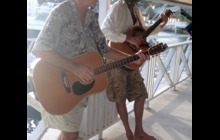
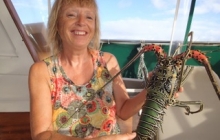
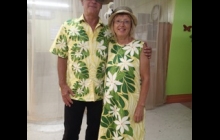
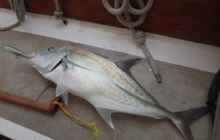

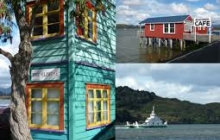


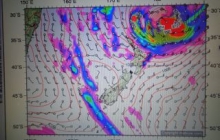
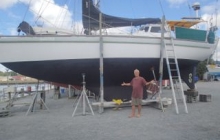





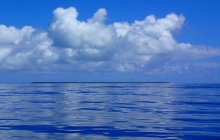
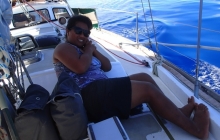
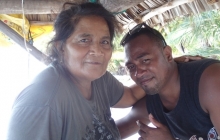
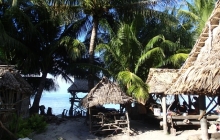
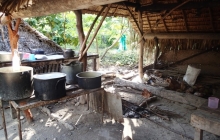
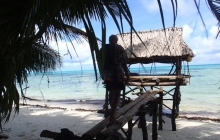
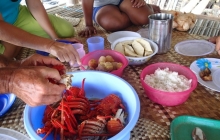


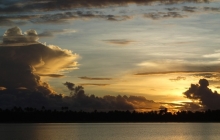

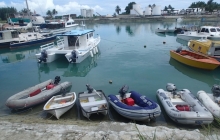










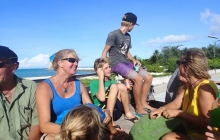

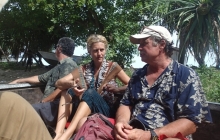

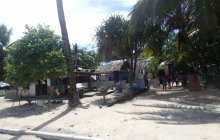

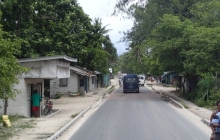
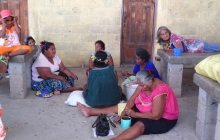
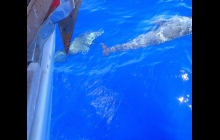


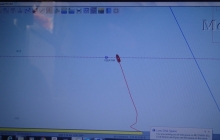
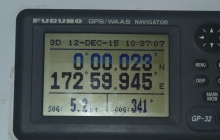
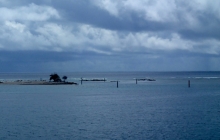
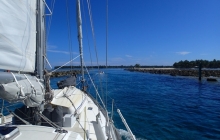
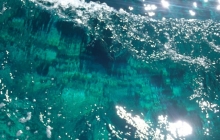

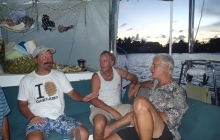



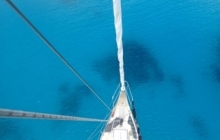



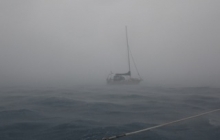
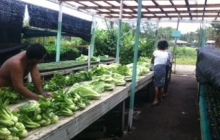


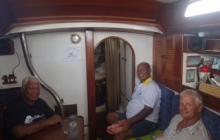
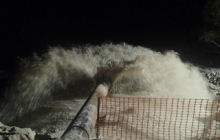
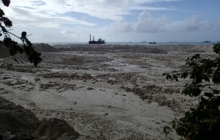


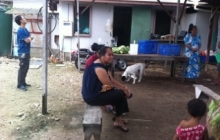


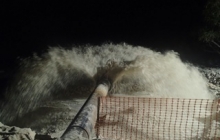

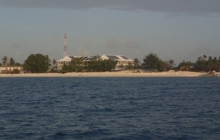
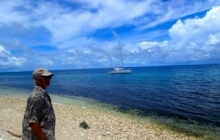


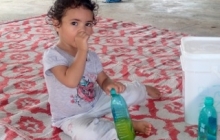

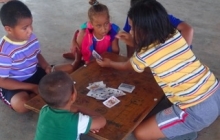

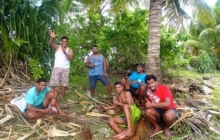

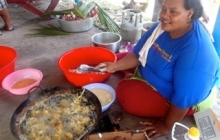
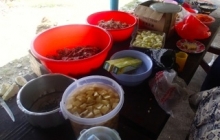
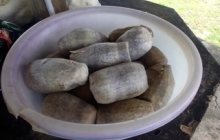

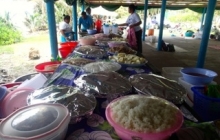

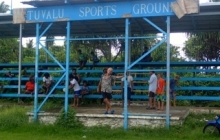
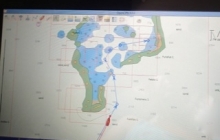

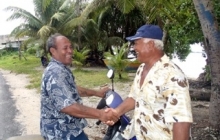
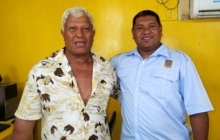
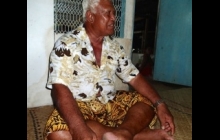

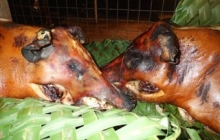
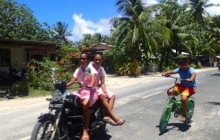
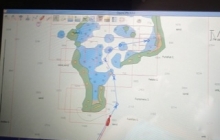
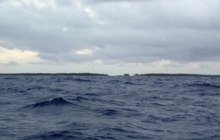
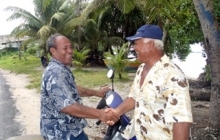

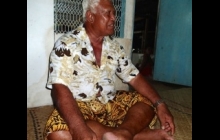
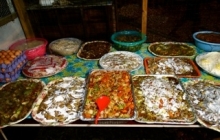

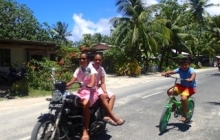
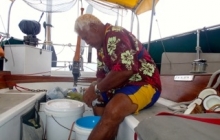

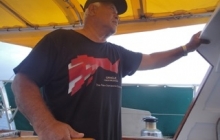
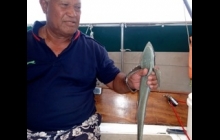
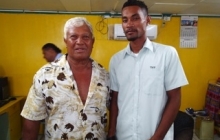
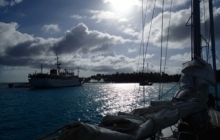
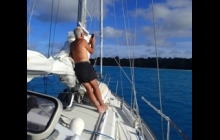
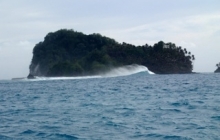

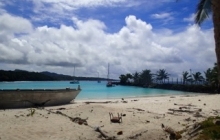
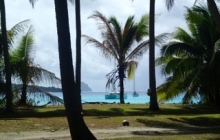




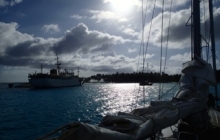

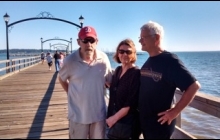
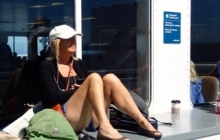

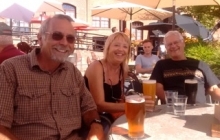
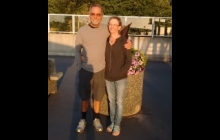
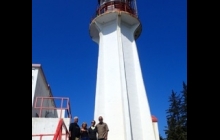
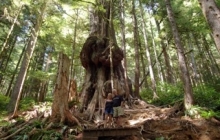


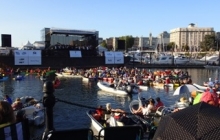
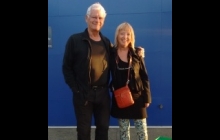
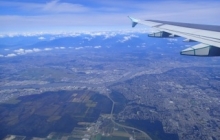

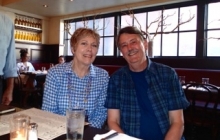
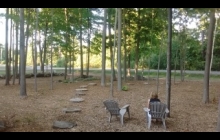
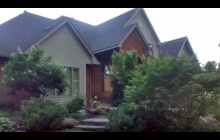
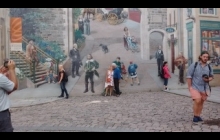
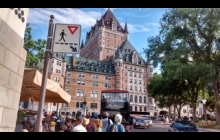



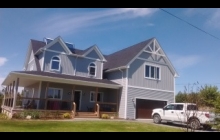
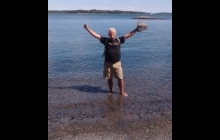
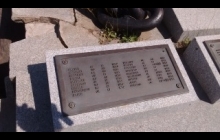
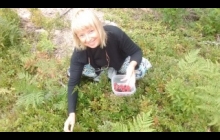
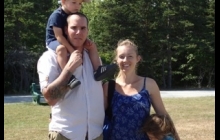
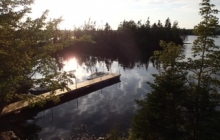
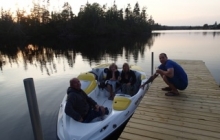
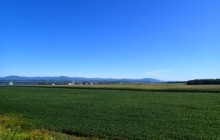
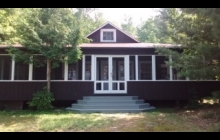
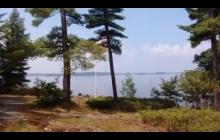
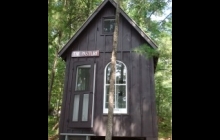
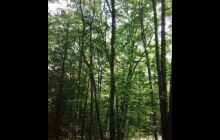

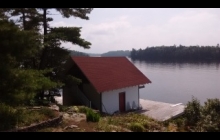
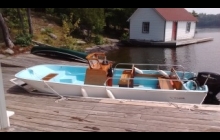
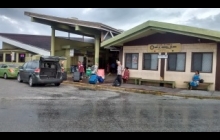
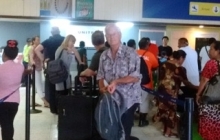
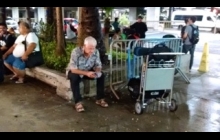
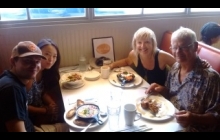
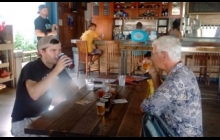
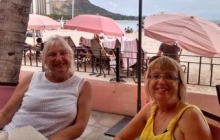
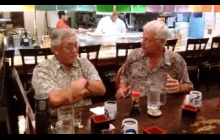
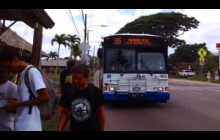

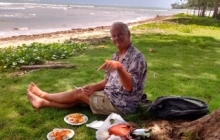
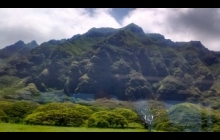
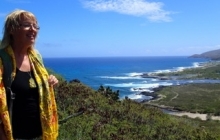
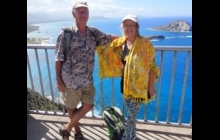
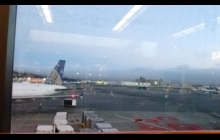


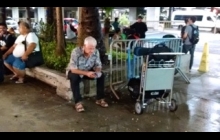
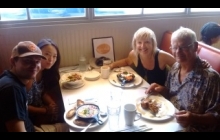
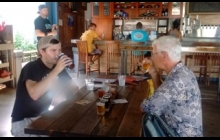
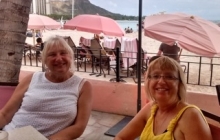
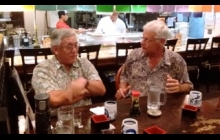

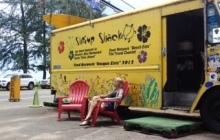
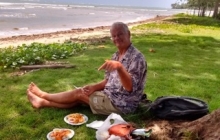
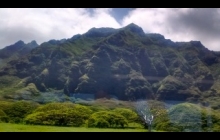
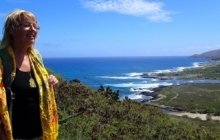
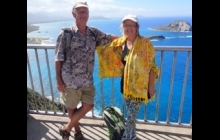
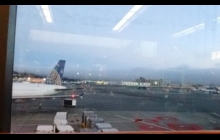


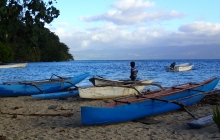


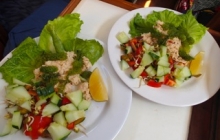






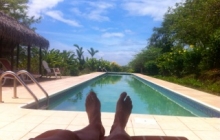
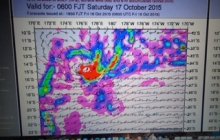
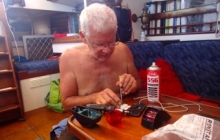
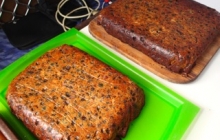
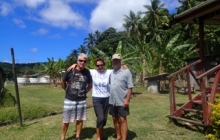
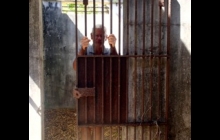
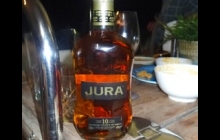
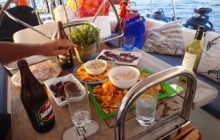
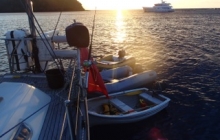


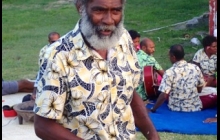




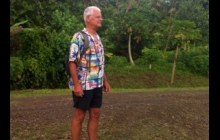

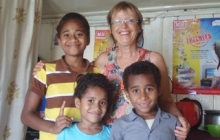

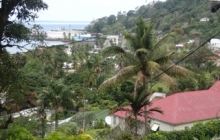
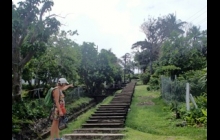

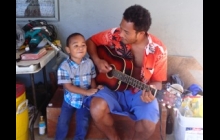
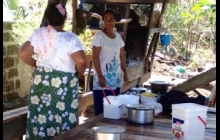
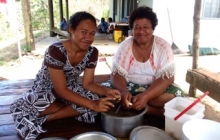
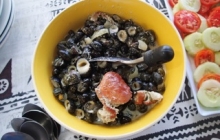

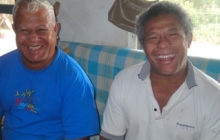
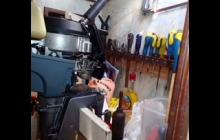

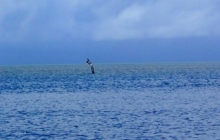
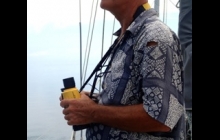

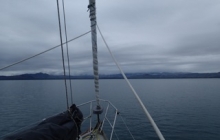
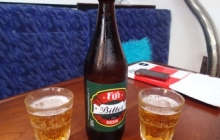
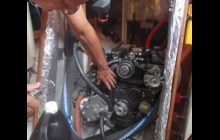
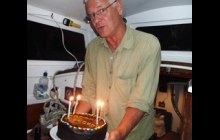
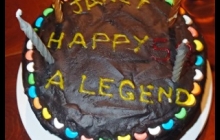
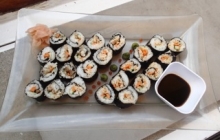
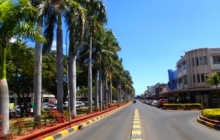
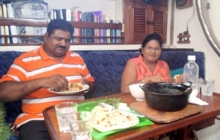
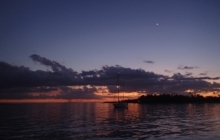
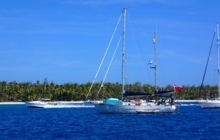
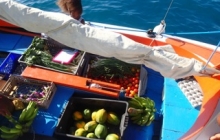
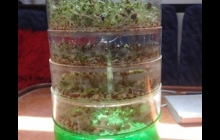
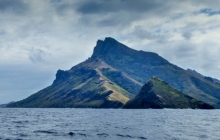

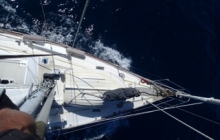

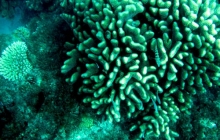

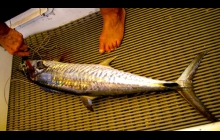

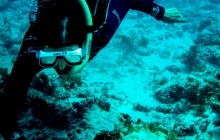
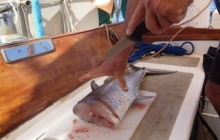
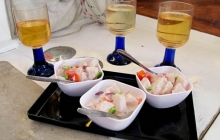
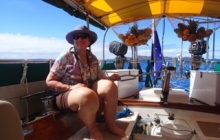





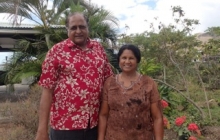
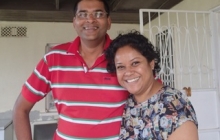
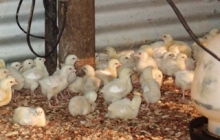
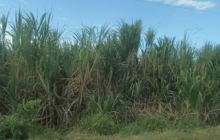
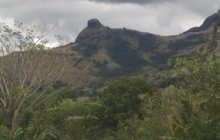

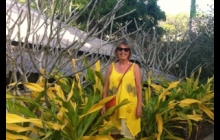
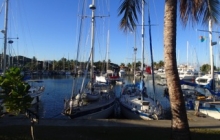


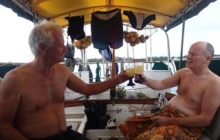

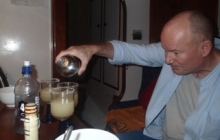
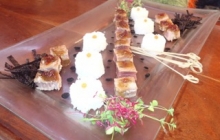

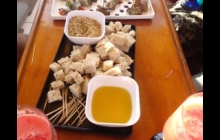
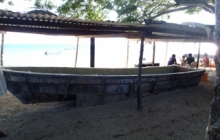
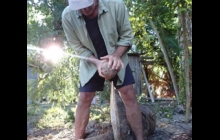
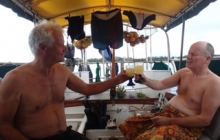
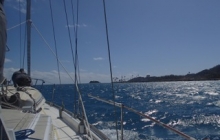
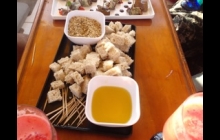


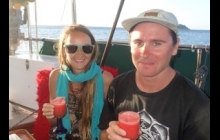
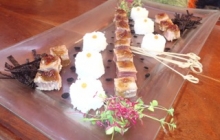




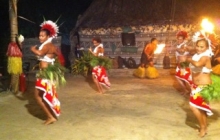

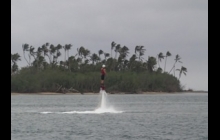

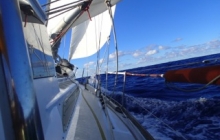
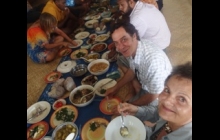
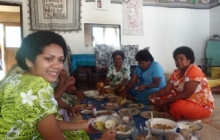
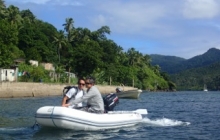

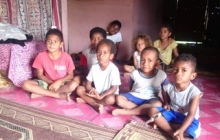

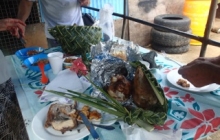
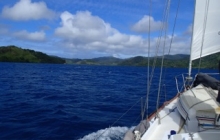





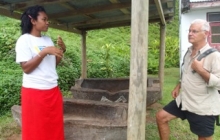
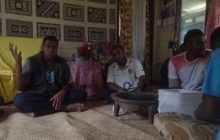
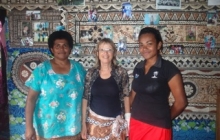

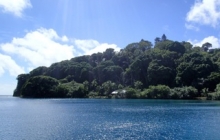
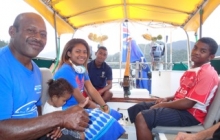
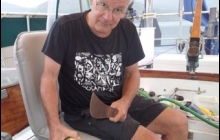
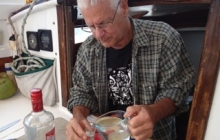
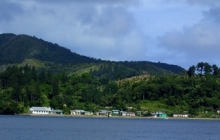

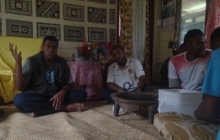


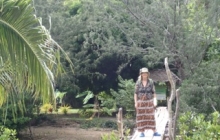

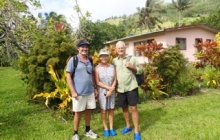
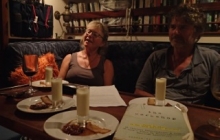


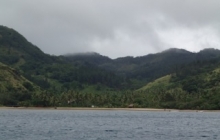
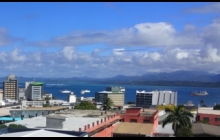

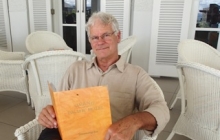
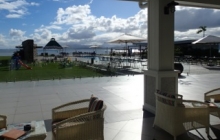
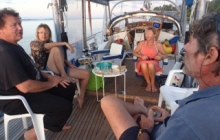

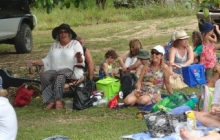
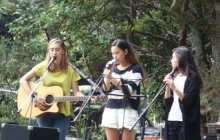

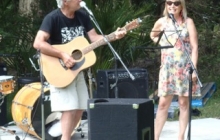
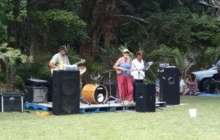

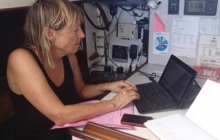


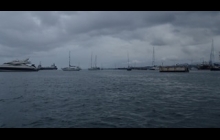
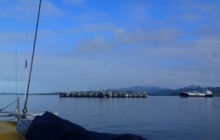
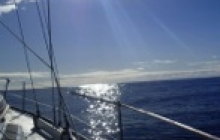

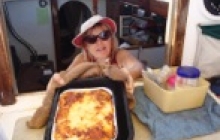
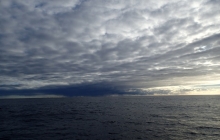
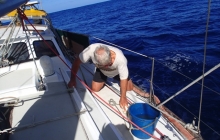

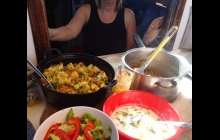

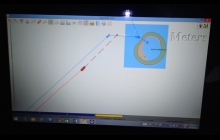


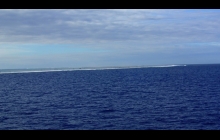
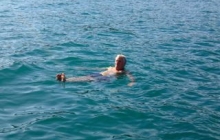



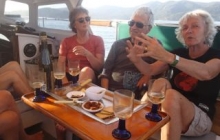
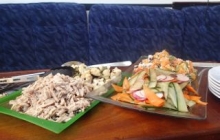



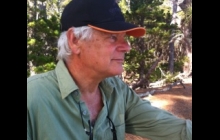

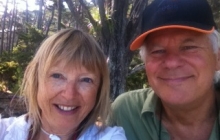
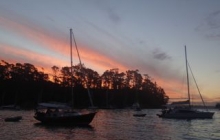

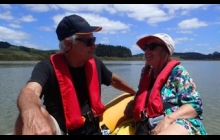



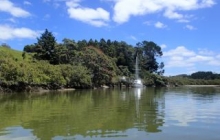
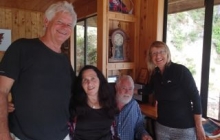
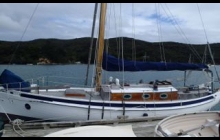

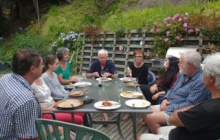

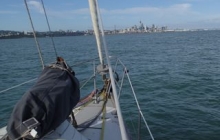

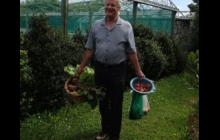
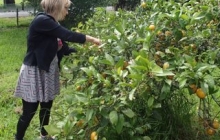

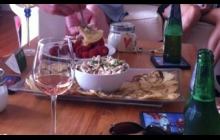



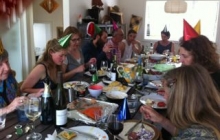



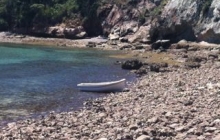
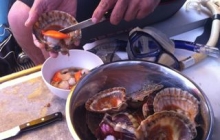
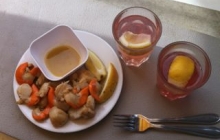
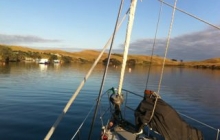
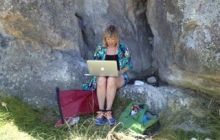
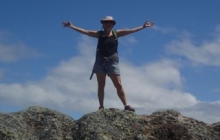
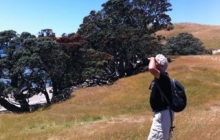


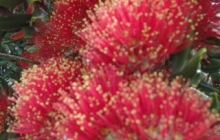


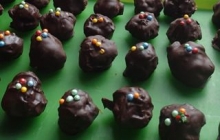




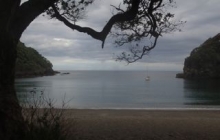

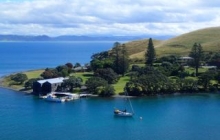


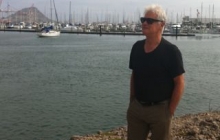

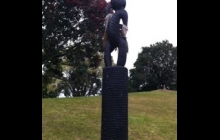
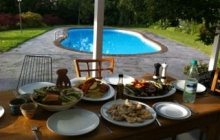
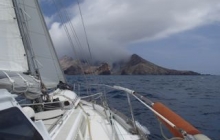
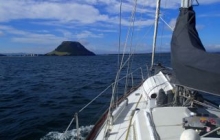


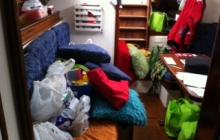
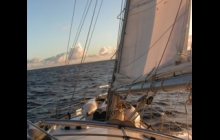
Recovery companies/firm has
Каркасные дома на заказ:
VIP <a href=https://seo
Оклейка авто защитной пленкой
Лизинг грузовых автомобилей
Pages